Upton Sinclair
description: American novelist, writer, journalist, political activist (1878-1968)
211 results
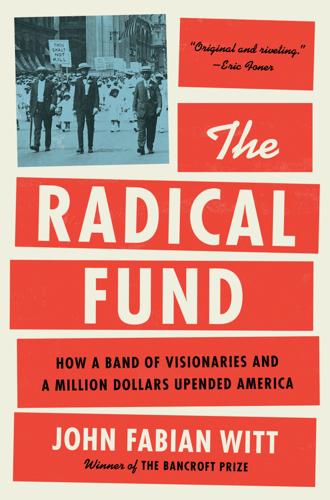
The Radical Fund: How a Band of Visionaries and a Million Dollars Upended America
by
John Fabian Witt
Published 14 Oct 2025
Charles’s younger brother, Hamilton, initially committed to following Charles’s lead, but when Hamilton’s birthday entitled him to his inheritance, he quietly accepted it. “Garland Brothers to Accept Millions,” Boston Daily Globe, Jan. 10, 1922, 8. 4. Upton Sinclair: Upton Sinclair to CG, Dec. 2, 1920; Dec. 29, 1920; Jan. 8, 1921; Jan. 15, 1921; Upton Sinclair to Mrs. CG, Dec. 29, 1920, all in b. 5, JPCC; “Crank No. 1426,” Los Angeles Times, Jan. 29, 1921, 1–14. Sinclair recommended: Upton Sinclair to CG, Jan. 10, 1922, b. 9, f. 13, RNBP. met on the Cape: RNB, “A Memo on Charles Garland,” Feb. 1975, b. 25, f. 1, RNBP. “promote the wellbeing”: Delaware Certificate of Incorporation, Board of Directors Minutes, b. 5, r. 3, AFPSR. 5.
…
,” 8; also “Think Garland Should Use His Million in Good Works,” New York World, Nov. 29, 1920, 6. 15. drop in the bucket… legitimate: “Garland Still Scorns Riches,” New York Sun, June 18, 1921, 6. 16. reached out: Upton Sinclair to CG, Dec. 2, 1920; US to CG, Dec. 29, 1920, both in b. 5, JCP. “weapon”: Woodrow Wilson to Joseph Patrick Tumulty, Oct. 30, 1917, in Papers of Woodrow Wilson, vol. 43, ed. Arthur Link (Princeton University Press, 1983), 467–72. 17. “Dead Hand”: Anthony Arthur, Radical Innocent: Upton Sinclair (Random House, 2007), 177. “invisible”: Adam Smith, Wealth of Nations (W. Strahan & T. Cadell, 1776); bestseller… “National News”: Upton Sinclair, The Brass Check: A Study of American Journalism (Upton Sinclair, 1920), 436–38. 18. “congratulate… honest weekly”: US to CG, Dec. 2, 1920, b. 5, JCP. 19. ready reply & admired The Brass Check: CG to US, Jan. 8, 1921, b. 5, JCP.
…
Martin’s Press, 2009), 36. pamphlets: “Rockefeller Again Heckled by Walsh,” 6; George Creel, “How ‘Tainted’ Money Taints,” Pearson’s, Mar. 1915, 296; Committee of Coal Mine Miners, “The Struggle in Colorado for Industrial Freedom,” 1914, 2. “premeditated fraud”: Creel, “How ‘Tainted’ Money Taints,” 289. “poisoners”: George Creel, “Poisoners of Public Opinion,” Harper’s Weekly, Nov. 7, 1914, 436–38. “Poison Ivy”: Upton Sinclair, The Brass Check: A Study of American Journalism (Upton Sinclair, 1920), 311. a novel: Upton Sinclair, King Coal: A Novel (Macmillan, 1917). 39. “missed”: “Gives Rockefeller Lesson in Finance,” New York Times, Sept. 23, 1915, 1. Plan: Gitelman, Legacy of the Ludlow Massacre, 190. 40. pensions: “Meddlesome and Impudent Philanthropy,” Nashville Tennessean, Nov. 26, 1912, 6.
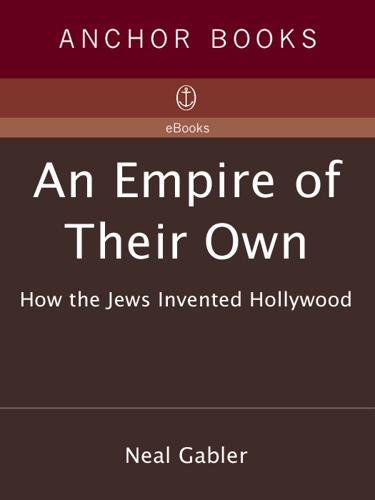
An Empire of Their Own: How the Jews Invented Hollywood
by
Neal Gabler
Published 17 Nov 2010
Arthur Schlesinger, The Politics of Upheaval (Boston, 1960), pp. 118–19. 6 “A quiet, slight figure…” New York Times, September 9, 1934, quoted in Leon Harris, Upton Sinclair: American Rebel (New York, 1975), p. 371. 7 “Keep that Bolshevik away…” Sam Marx, interviewed by author. 8 “I was present, but was not called …” Letter from Sinclair to Lewis Browne in Upton Sinclair, My Life in Letters (Columbia, MO, 1960), p. 265. 9 “He’s had his fill of politics.” Letter from Craig Sinclair to Mrs. John Kling, n.d., in Harris, p. 270. 10 “I don’t think I’m egotistical…” Upton Sinclair, “The Movies and Political Propaganda,” in The Movies on Trial, ed. William J. Perlman (New York, 1936), p. 189. 11 “Humble and obedient…” Upton Sinclair interview, Columbia University Oral History Collection, vol. 2. no. 502, p. 213. 12 “Who knew the smell of money …” Upton Sinclair, The Autobiography of Upton Sinclair (New York, 1962), pp. 274–75. 13 “And what happened then?”
…
“The Conversions of the Jews,” in The Ghetto and Beyond, ed. Peter Isaac Rose (New York, 1969), p. 443. 4 “He has barely got started …” Upton Sinclair, I, Governor of California (Los Angeles, 1934), p. 2, quoted in Lewis A. Fretz, “Upton Sinclair: The Don Quixote of American Reform,” Ph.D. diss., Stanford University, 1970, p. 157 5 He was thought to be running ahead. Arthur Schlesinger, The Politics of Upheaval (Boston, 1960), pp. 118–19. 6 “A quiet, slight figure…” New York Times, September 9, 1934, quoted in Leon Harris, Upton Sinclair: American Rebel (New York, 1975), p. 371. 7 “Keep that Bolshevik away…” Sam Marx, interviewed by author. 8 “I was present, but was not called …” Letter from Sinclair to Lewis Browne in Upton Sinclair, My Life in Letters (Columbia, MO, 1960), p. 265. 9 “He’s had his fill of politics.”
…
For the most colorful accounts, one is referred to Ramsaye, pp. 580–81, 590–93, and Grau, pp. 38–48. 59 “Practically unknown man…” Editorial quoted in Drinkwater, p. 78. For some idea of Laemmle’s wealth, see The Moving Picture World, August 5, 1916, p. 919, where Laemmle announces the purchase of his exchanges by Universal for over $1 million. 60 “Holler the loudest…” Ramsaye, p. 478. 61 “I was working for …”; “My father was…” Quoted in Upton Sinclair, Upton Sinclair Presents William Fox (Los Angeles, 1933), pp. 17, 18–19. This book, dictated to Sinclair by Fox, is the only detailed account of Fox’s life. To its credit, it is refreshingly candid about Fox’s feelings and motivations. 62 “Every penny …” Ibid., p. 25. 63 Saved $50,000. Ibid., p. 31. 64 “Didn’t like the business…” Ramsaye, p. 452. 65 Cleared $40,000.

Swindled: the dark history of food fraud, from poisoned candy to counterfeit coffee
by
Bee Wilson
Published 15 Dec 2008
If Wiley laid much of the groundwork for the 1906 law, the immediate impetus came from a much less probable source—an unheralded novel written by a nervous young socialist named Upton Sinclair. Perhaps unsurprisingly, Sinclair’s name is absent from Wiley’s autobiography. Wiley’s part in the story is not yet finished; we will return to him later in this chapter. But the man of the hour in 1906 was Upton Sinclair. It was because of the unprecedented impact of his novel The Jungle that even the most diehard opponents of government intervention in the food business felt cowed into submission. Sinclair brought the public debate about food to such a pitch of anxiety and disgust that federal legislation was the only answer. Upton Sinclair, Th eodore Roosevelt, and The Jungle The Jungle tells the story of Jurgis, a Lithuanian who comes to America with his family to be a “free man,” and a rich one, but who finds himself instead living in the stockyard area of Chicago, enslaved to horrible and low-paying work as a meat packer.
…
Britain was the first to acquire these two conditions at the same time, which goes some way toward explaining why we British have—over the past two centuries—endured a more debased diet than other nations in Europe. The United States soon followed suit— with the horrors of the New York swill milk scandal in the 1850s and the gruesome jungle of Upton Sinclair’s Packingtown in the early 1900s. This pattern of early endemic adulteration explains something of America’s predicament with food, up to the present day. For these reasons, the book starts in Britain, in 1820, with a German scientist who had the vision and courage to point out just how bad the swindling had become. 1 German Ham and English Pickles With Bentham bewilder, with Buonaparte frighten, With Accum astonish . . .
…
He also interviewed those who knew the ways of Packingtown—workers, doctors, nurses, settlement-house workers—before retreating to a rural cabin to write the book. “I wrote with tears and anguish, pouring into the pages all the pain that life had meant to me.”130 In one of the few things he had in common A poster for the film version of Upton Sinclair’s The Jungle. with Wiley, Sinclair also saw the fight against adulteration as a continuation of the previous generation’s fight against slavery; several prominent readers compared The Jungle to Uncle Tom’s Cabin for its political impact. Sinclair was not writing with any particular axe to grind regarding the American diet.
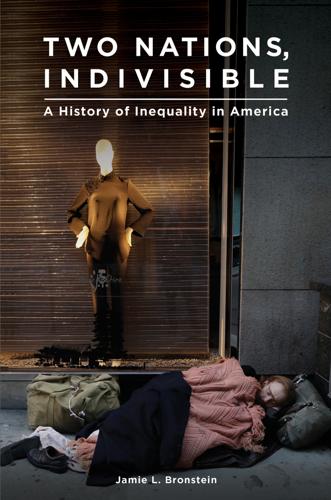
Two Nations, Indivisible: A History of Inequality in America: A History of Inequality in America
by
Jamie Bronstein
Published 29 Oct 2016
B. Mitchell, “Townsend and Roosevelt: Lessons from the Struggle for Elderly Income Support,” Labor History vol. 42 no. 3 (2001) 255–276. 47. Upton Sinclair, I, Governor of California, and How I Ended Poverty: A True Story of the Future (Los Angeles, CA: Poverty League, 1933), 15; see also Rising, “Sinclair’s 1934 Gubernatorial Campaign,” 105. 48. Sinclair, I, Governor of California, 37. 49. Ibid., 43. 50. Ibid., 52. 51. Fay M. Blake, “Upton Sinclair’s EPIC Campaign,” California History vol. 63 no. 4 (1984): 305–312; Rising, “Sinclair’s 1934 Gubernatorial Campaign,” 116. 52. Daniel Hanne, “ ‘Ham and Eggs’ Left and Right: The California Scrip Pension Initiatives of 1938 and 1939,” Southern California Quarterly vol. 80 no. 2 (1998): 183–230. 53.
…
After four years of high unemployment, poverty, and suffering under President Herbert Hoover, the nation was ready to experiment simultaneously with banking regulation, large-scale public works employment, agricultural restrictions, and industrial codes. Activists like Francis Townsend, whose ideas shaped Social Security, and politicians and political candidates like Louisiana governor Huey Long (Share Our Wealth) and California gubernatorial candidate Upton Sinclair (End Poverty in California) pushed Franklin Delano Roosevelt to pursue a more radical Second New Deal. The Republican Party, the business community, and the Supreme Court offered their resistance. While the New Deal pioneered some of the programs that helped compress inequality as never before in the following two decades, President Truman’s administration missed the opportunity to pass the Full Employment Act (1944), which would have made employment a right, and designated the government the employer of last resort.
…
Extended families stretched their resources by crowding into single homes or apartments.14 Over the course of the twentieth century, the opportunities for married women to contribute to the family economy without going out to work dwindled; “among disadvantaged working-class families … male employment became less secure, and the decline in household production left a gap in the family budget that was less easily filled.”15 Muckraking journalists exposed many of the shortcomings of American life. Some were more concerned with political corruption than with corporate corruption, but some, including journalists Upton Sinclair and Charles Edward Russell, became avowed socialists after learning about the conditions of the urban poor.16 In 1912, the Commission on Industrial Relations convened to study the problem of American unskilled workers, noting the psychological setbacks caused by seasonal unemployment.17 Progressives also studied the plight of working women; the Russell Sage Foundation’s studies show that women in factories worked long hours, and that women’s and children’s work at home was completely unregulated.
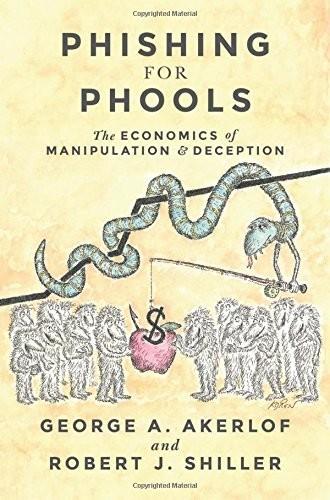
Phishing for Phools: The Economics of Manipulation and Deception
by
George A. Akerlof
,
Robert J. Shiller
and
Stanley B Resor Professor Of Economics Robert J Shiller
Published 21 Sep 2015
We might add many postscripts to this chapter regarding issues we have not covered; one topic stands out as especially necessary of mention. This chapter has mainly focused on lobbying of the Congress. Quite possibly of yet greater importance is the lobbying of the regulatory agencies, not to mention lobbying of state and local governments. SIX Phood, Pharma, and Phishing In 1906 the upstart novelist Upton Sinclair intruded on the public’s peace of mind. He wrote a novel, The Jungle, based on the meatpacking houses of Chicago. His intent was to expose the immigrant wage slavery of the early twentieth century, as Harriet Beecher Stowe’s Uncle Tom’s Cabin a half century earlier had exposed African American slavery (and was a major precipitator of the Civil War).1 But The Jungle created an uproar of an unexpected type, as it led to the discovery by middle-class housewives that the steak they were serving for dinner might come from tubercular cattle.2 Or tidbits from poisoned rats could be in the sausage, or from human remains in their “Durham’s Pure Leaf” lard.3 The demand for the packers’ meat fell by half and their minions in the Congress passed the Federal Meat Inspection Act of 1906,4 whose provisions have made the problems reported by Sinclair pretty much a thing of the past.
…
The League inspected working conditions, as Kelley had been doing for the state of Illinois, and it awarded its “White Label” to the products that passed its inspections.19 That label further vouched for the safety of the product itself. Buying White Label would thus kill two birds: commitment to civil society and safety for the buyer’s family. In chapter 6, we saw another example of this symbiosis between concerns for workers’ conditions and for product safety. Recall that Upton Sinclair had set out in The Jungle to expose the wage-slave labor of the Chicago meatpacking houses. But the public was especially shocked by the book’s exposé of what was going into their own stomachs. To this day, the “shopping for a better world” movement still underlies one wing of consumer activism.
…
Jason Linkins, “Wall Street Cash Rules Everything around the House Financial Services Committee, Apparently,” Huffington Post, July 22, 2013, accessed May 22, 2015, http://www.huffingtonpost.com/2013/07/22/wall-street-lobbyists_n_3635759.html. 47. US Internal Revenue Service, “Tax Gap for Tax Year 2006: Overview,” Table 1, Net Tax Gap for Tax-Year 2006. January 6, 2012, accessed November 18, 2014, http://www.irs.gov/pub/irs-soi/06rastg12overvw.pdf. Chapter Six: Phood, Pharma, and Phishing 1. Anthony Arthur, Radical Innocent: Upton Sinclair (New York: Random House, 2006), Kindle locations 883–86 out of 7719; also 912–16. 2. When Sinclair was threatened with a lawsuit by J. Ogden Armour, of the meatpacking firm, he replied with a letter to the New York Times. Sinclair wrote that he had seen: The selling for human food of the carcasses of cattle and swine which have been condemned for tuberculosis, actinomycosis, and gangrene; the converting of such carcasses into sausage and lard; the preserving of spoiled hams with boric and salicylic acid; the coloring of canned and potted meats with aniline dyes; the embalming and adulterating of sausages—all of these things mean the dealing out to hundreds and thousands of men, women, and children of a sudden, horrible and agonizing death.
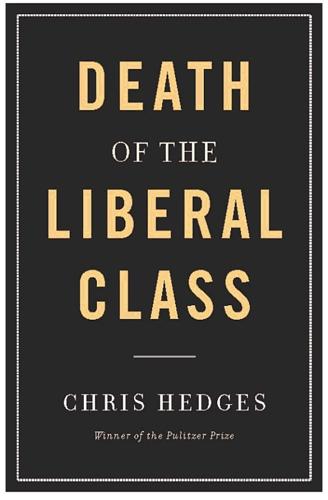
Death of the Liberal Class
by
Chris Hedges
Published 14 May 2010
The great muckraking journalists, artists, and progressives who had used their talents to expose abuses of the working class joined the war effort. Twelve thousand people, roused by German attacks on American cargo vessels and fiery denunciations in the press, rallied on March 22, 1917, in Madison Square Garden to call for war at a mass meeting organized by the American Rights Committee. William English Walling, Charles Edward Russell, Upton Sinclair, and nearly all other intellectual leaders in the Socialist Party, abandoning their opposition, issued a call for war the next day. The antiwar movement crumbled, with widespread defections including stalwarts such as Governor Arthur Capper of Kansas announcing on March 24 that the United States had to fight to defend itself against Germany’s “murderous assaults on human life and human rights.”2 Preachers in the nation’s most prominent pulpits blessed the call to arms, and the few voices that continued to resist the intoxication of battle were attacked.
…
He later was mixed up in the Teapot Dome oil scandal and admitted before a 1924 Senate investigation that he had accepted a check for $5,000 to convince Secretary of the Navy Josephus Daniels, whom he had worked with during the war, to lease two government-owned oil fields to private oil interests. He ran against Upton Sinclair in the 1934 Democratic primary for governor of California and lost. Franklin Roosevelt, who had had enough of Creel’s arrogance during World War I, when Roosevelt had served as Assistant Secretary of the Navy, rejected Creel’s requests to work in the Office of War Information during World War II.
…
She went on to write, in Peace and Bread in Time of War, that “this concerted attempt at misrepresentation on the part of newspapers of all shades of opinion was quite new to my experience.”18 Voices of dissent were silenced under the onslaught. Appeal to Reason, a socialist journal founded in 1897 that provided an outlet for writers such as Jack London, Upton Sinclair, Mary “Mother” Jones, and Debs, had by 1902 the fourth highest circulation at 150,000 of any weekly in the nation. It opposed the war—not unusual for a publication at the start of the war—but its attempt to hold to its antiwar stance soon saw it come under tremendous pressure. The Espionage Act, making it an offence to publish material that undermined the war effort, effectively censored its content.
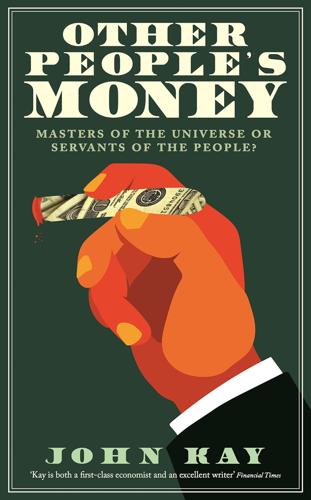
Other People's Money: Masters of the Universe or Servants of the People?
by
John Kay
Published 2 Sep 2015
At the beginning of the twentieth century the power of the robber barons was abruptly checked. The ‘muckrakers’ – hostile journalists – exposed some of the excesses of financial capitalism directed towards industrial monopoly. Ida Tarbell engaged in a sustained campaign against Rockefeller’s Standard Oil.29 Upton Sinclair’s novel The Jungle (1906), which described Midwest meat-packing plants, is still a literary classic.30 The term ‘muckraker’ was coined – not disapprovingly – by Theodore Roosevelt, a Republican who had unexpectedly become president following the assassination in 1901 of the benignly probusiness William McKinley.
…
And that was what happened in the global financial crisis. The social tensions that had been suppressed when consumption was growing faster than incomes were no longer contained. Public opinion turned against banking and finance, reflected in the Occupy movement and the surge in popularity of fringe political movements. A century after Upton Sinclair and Ida Tarbell the tradition of the muckraker was revived. A new generation of journalists sought to expose corporate and – especially – financial malpractice. When the internet journalist Matt Taibbi described Goldman Sachs as ‘a giant vampire squid, sucking money from wherever it finds it’,45 the description quickly went viral.
…
Paradoxically, the Jackson Hole attendees who were seduced by the explanatory power of probabilistic models of rational behaviour were themselves in the grip of a conviction narrative – none more so than Chairman Greenspan himself, a one-time associate of Ayn Rand. The psychologist David Tuckett had anticipated their response to Rajan’s challenge: ‘The doubts they [sceptics] raise about the new story need to be refuted and so are mocked and maligned through dismissal.’34 The great muckraker Upton Sinclair had expressed a deep insight into the relationship between the world of ideas and the world of practical men: ‘It is difficult to get a man to understand something, when his salary depends on his not understanding it.’35 Chapter 3 will describe another idea central to financialisation: the perceived need for liquidity.
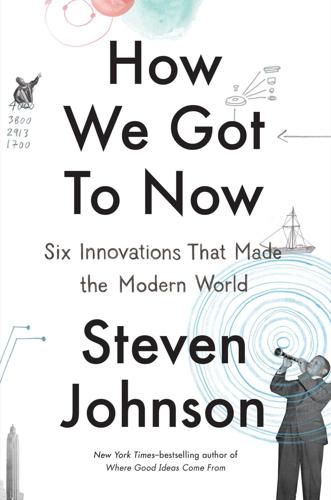
How We Got to Now: Six Innovations That Made the Modern World
by
Steven Johnson
Published 28 Sep 2014
The Chicago stockyards that emerged in the last two decades of the nineteenth century were, as Upton Sinclair wrote, “the greatest aggregation of labor and capital ever gathered in one place.” Fourteen million animals were slaughtered in an average year. In many ways, the industrial food complex held in such disdain by modern-day “slow food” advocates begins with the Chicago stockyards and the web of ice-cooled transport that extended out from those grim feedlots and slaughterhouses. Progressives like Upton Sinclair painted Chicago as a kind of Dante’s Inferno of industrialization, but in reality, most of the technology employed in the stockyards would have been recognizable to a medieval butcher.
…
By the early 1870s, the city’s water supply was so appalling that a sink or tub would regularly be filled with dead fish, poisoned by the human filth and then hoovered up into the city’s water pipes. In summer months, according to one observer, the fish “came out cooked and one’s bathtub was apt to be filled with what squeamish citizens called chowder.” Workmen make progress on the Metropolitan Line underground railway works at King’s Cross, London. Upton Sinclair’s novel The Jungle is generally considered to be the most influential literary work in the muckraking tradition of political activism. Part of the power of the book came from its literal muckraking, describing the filth of turn-of-the-century Chicago in excruciating detail, as in this description of the wonderfully named Bubbly Creek, an offshoot of the Chicago River: The grease and chemicals that are poured into it undergo all sorts of strange transformations, which are the cause of its name; it is constantly in motion, as if huge fish were feeding in it, or great leviathans disporting themselves in its depths.
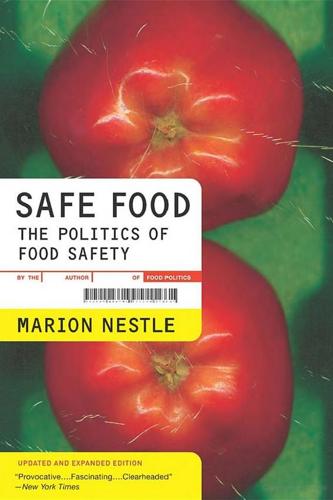
Safe Food: The Politics of Food Safety
by
Marion Nestle
Published 1 Jan 2010
American food safety advocates struggled to be heard but generated little public interest or congressional action. I wrote Safe Food to explain the political history of our fragmented and ineffective food safety system and how politics gets in the way of efforts to improve the system. Having no illusions that the book would do what Upton Sinclair’s The Jungle accomplished in 1906, I hoped that it would at least generate some creative thinking about food safety problems and their solutions. I spent the next few years dealing with invitations to speak about the health implications of food marketing discussed in my earlier book, Food Politics.
…
In 1890, it passed a Meat Inspection Act that authorized inspection of salt pork, bacon, and pigs intended for export.39 In addition to popular pressures to clean up meat production, Dr. Harvey Wiley (who headed the USDA’s Bureau of Chemistry, which later became the FDA) relentlessly promoted reform laws to improve the safety of other foods. Nevertheless, federal involvement in food safety remained minimal.40 This complacency ended abruptly in 1906 when Upton Sinclair published his dramatic exposé of the meat industry, The Jungle. Two years earlier, the editor of a Midwestern populist weekly had recruited Sinclair to do some investigative reporting on conditions in the Chicago stockyards. After a seven-week stay, Sinclair wrote up his findings, not—as might be expected—as an investigative report, but rather as a serialized work of fiction, chapter by chapter, in 1905.
…
At this point, both consumer and industry groups charged that the USDA was deliberately choosing to ignore problems with discretionary inspection. Congress held hearings to review such complaints. At the hearings, meat inspectors raised vehement objections. With a graphic description worthy of Lafcadio Hearn or Upton Sinclair, Delmer Jones, the president of the inspectors’ union, explained why his group believed that daily visual inspections of meat plants must continue. The problem, he said, is no control by industry of product that falls on the floor. . . . Product becomes a sponge when it falls to the floor. Many of the products are ready to eat.
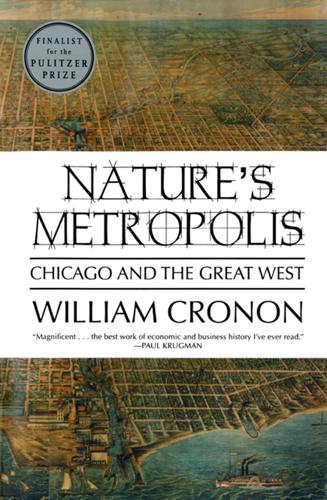
Nature's Metropolis: Chicago and the Great West
by
William Cronon
Published 2 Nov 2009
Although the butchers had used public health as a battle cry since the start of their war with the packers, their obvious self-interest (and the fact that the same brush could easily tar them as well) muted the effectiveness of their criticisms. Public fears about the health hazards of dressed beef and its by-products did not finally explode until 1906, when Upton Sinclair published his muckraking novel The Jungle and Congress passed the Meat Inspection and Pure Food and Drug Acts, which subsequently imposed much stricter inspection standards on the packers and their products.174 Waste, then, was one of the symbolic paradoxes of meat-packing in Chicago. For those like Upton Sinclair who saw in the city all that was most evil in capitalism, Packingtown represented the decline of corporate morality and the end of an earlier, more familiar and trustworthy way of life.
…
He described one young woman who looked on quite cooly, standing “in a patch of sunlight, the red blood under her shoes, the vivid carcasses tacked round her, a bullock bleeding its life away not six feet away from her, and the death factory roaring all round her. She looked curiously, with hard, bold eyes, and was not ashamed.”4 Her indifference seemed to Kipling the most frightening thing he saw at the stockyards, and made him worry about the effect of so mechanical a killing house on the human soul. As Upton Sinclair would remark in the most famous passage ever written about the place, “One could not stand and watch very long without becoming philosophical, without beginning to deal in symbols and similes, and to hear the hog-squeal of the universe.”5 Kipling’s young woman to the contrary, few who heard that squeal, or who saw the vast industrial landscape devoted to its exploitation, could avoid wondering what it might signify about animals, death, and the proper human relationship to both.
…
For one, it undoubtedly changed the rate and character of pollution entering the Chicago River from the packing plants. Packingtown remained one of the smelliest and most environmentally degraded neighborhoods in all of Chicago, and the water that flowed from its sewers was extraordinarily foul. Upton Sinclair could still describe Bubbly Creek in 1906 as “a great open sewer a hundred or two feet wide” in which grease and chemicals underwent “all sorts of strange transformations,” so it was “constantly in motion, as if huge fish were feeding in it, or great leviathans were disporting themselves in its depths.”170 Visitors and residents assaulted by the smell of the place could hardly have believed that it represented any kind of improvement over the past, but in a sense it did.
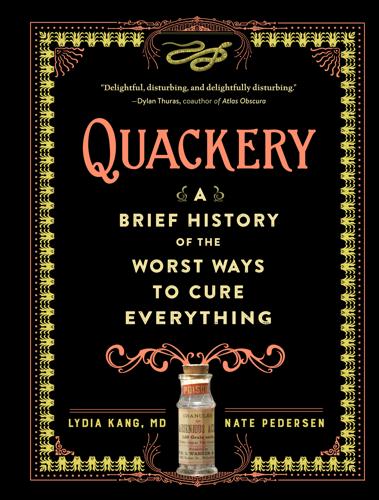
Quackery: A Brief History of the Worst Ways to Cure Everything
by
Lydia Kang
and
Nate Pedersen
Published 16 Oct 2017
And therein lies what makes this particular brand of quackery so dangerous: The problem with fasting, as opposed to say, neurosurgery, is that anyone can do it. Plenty of unqualified nonmedical professionals offer their opinions and advice. Even respectable writers get in on the game. One of fasting’s more enthusiastic adherents was none other than Upton Sinclair, author of The Jungle and famously gullible patient, who threw his full weight behind a variety of twentieth-century quack cures (see also Radionics, page 303). Sinclair’s 1911 book, The Fasting Cure, detailed his personal experiments in not eating. Not content with merely describing his own experiences, Sinclair also offered general advice to the hundreds of people who wrote to him seeking his medical opinion—as a journalist—on whether fasting would help cure them.
…
“I was so close to dying, you wouldn’t believe it. But, thankfully, I heard about this new cure called radionics. They hooked me up to a machine, and poof, my cancer was gone!” That’s powerful stuff and quickly builds a word-of-mouth marketing campaign. The cult of radionics catapulted into the national spotlight when Upton Sinclair became a believer. Sinclair, author of the classic novel exposé of the meatpacking industry The Jungle, was a household name when he lent his credibility to radionics by writing an article entitled “The House of Wonders” for Pearson’s Magazine in June 1922. In the article, Sinclair praises and promotes Abrams and his methods: I decided to go to San Francisco and investigate.
…
Conventional medicine, meanwhile, obviously uses radio waves for communicating with dispatchers and paramedics. But many don’t realize that radio frequency–driven heat energy is used to ablate or burn away problematic tissues. It can cure some types of heart arrhythmias, tumors, and varicose veins. Perhaps somewhere, poor Upton Sinclair is feeling a little vindicated for his enthusiasm over the radio wave craze. 28 The King’s Touch Of Scrofula, Macbeth, Kingly Touching Ceremonies, a Miracle Horse, Medicinal Coins, and the Decayed Arm of Saint Louis The medieval era was an ugly time to be alive. Without the benefit of modern medicine, all sorts of gruesome and disfiguring diseases rampaged their way through the European populace.
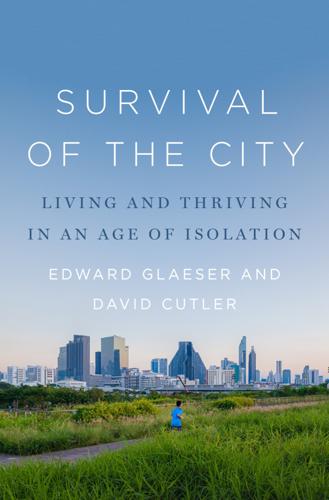
The Survival of the City: Human Flourishing in an Age of Isolation
by
Edward Glaeser
and
David Cutler
Published 14 Sep 2021
French Academy of Sciences: Farley and Geison, “Science, Politics and Spontaneous Generation in Nineteenth-Century France: The Pasteur-Pouchet Debate.” Pasteur correctly grasped: Ullmann, “Louis Pasteur.” Nabisco’s iconic bakery: Grove, “Cookie Capital in the Universe of Cookie-Making, the Chicago Area Ranks as a Sweet, Hot, Big, Gooey Chocolate Chip.” Upton Sinclair: Lohnes, “The Jungle.” “I aimed for the public’s”: Beeston, “Book Club: The Jungle by Upton Sinclair.” the Pure Food and Drug Act: Lopez, “The War on Drugs, Explained.” Yet even in 2008: “Three More Hospitalised in Milk Scandal,” The Age. the average textile mill: Ronderos, Stabilization of the U.S. Manufacturing Sector and Its Impact on Industrial Space, 29. 570 square feet: Ronderos. 675,000 people died: Johnson and Mueller, “Updating the Accounts: Global Mortality of the 1918–1920 ‘Spanish’ Influenza Pandemic,” 111.
…
Beech, Hannah. “Singapore Seemed to Have Coronavirus Under Control, until Cases Doubled.” The New York Times, April 20, 2020. www.nytimes.com/2020/04/20/world/asia/coronavirus-singapore.html. Beeston, Richard. “Book Club: The Jungle by Upton Sinclair.” The Times (London), February 12, 2011. www.thetimes.co.uk/article/book-club-the-jungle-by-upton-sinclair-bcnlq6p7xkm. Belkin, Douglas, Kris Maher, and Deanna Paul. “Clout of Minneapolis Police Union Boss Reflects National Trend.” The Wall Street Journal, July 7, 2020. www.wsj.com/articles/robert-krolls-rise-from-barroom-brawler-to-minneapolis-police-union-boss-11594159577.
…
As we discussed in chapter 4, Nabisco’s bestsellers, like Oreos and Newtons, were some of the first examples of mass-produced precooked food. Nabisco provided both jobs for industrial bakers and food for urban eaters around the world. At about the same time that Nabisco was pushing its Uneedas and Oreos, Upton Sinclair published his blockbuster expose The Jungle, a fictional account of Chicago’s meatpacking industry. Sinclair intended to build sympathy for the labor movement, but as he himself later wrote, “I aimed for the public’s heart, and by accident hit it in the stomach.” His disgusting depictions of meatpacking built enthusiasm for the Meat Inspection Act and the Pure Food and Drug Act which were both passed in 1906.
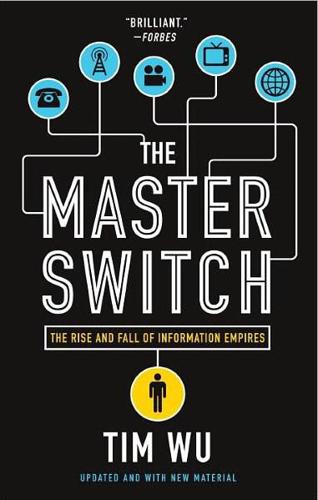
The Master Switch: The Rise and Fall of Information Empires
by
Tim Wu
Published 2 Nov 2010
Heinemann, 1931, reprinted 1978), 63; see generally Neal Gabler, An Empire of Their Own: How the Jews Invented Hollywood (New York: Crown Publishers, 1988). 9. Drinkwater, Carl Laemmle, 64. 10. Ibid., 65. 11. Laemmle declared his film company “independent” in The Sunday Telegram, April 18, 1909, as described in Drinkwater, Carl Laemmle, 67. 12. Drinkwater, Carl Laemmle, 69–70. 13. This observation is drawn from Upton Sinclair, Upton Sinclair Presents William Fox (Los Angeles: self-published, 1933), 39. 14. One excellent history of the Warner brothers in Hollywood can be read in Cass Warner Sperling, Cork Millner, and Jack Warner, Hollywood Be Thy Name: The Warner Brothers Story 2nd ed. (Lexington: University Press of Kentucky, 1998). 15.
…
And he made a personal pledge he had no obvious way of honoring: to supply films to any who joined his cause, an “ironclad promise to give you the best Films and the best service at all times in spite of Hades itself.”12 Unfortunately for him, most of Laemmle’s peers, lacking the appetite to fight the Trust, either accepted the rules or gave up the business. In 1910, the Trust began to consolidate the film exchanges by systematically buying them out, acquiring, according to Upton Sinclair, 119 of the 120 major exchanges.13 Among those deciding to throw in the towel were three brothers, Jack, Sam, and Harry Warner. Harry Warner planned to become a grocer, and so, following an alternative course of history, Warner Bros. might today be a supermarket chain.14 Laemmle, however, did have a few allies, among them very useful friends overseas.
…
The content varied, but the fundamental idea was to offer a forum for otherwise unheard voices, perhaps the most famous of these being that of Milo Radulovich, a U.S. military officer victimized by Joe McCarthy’s Communist witch hunt. Conceived in a crusading spirit going back at least as far as Upton Sinclair, the show certainly didn’t represent a revolutionary mission for journalists, or for the media for that matter. Yet it was a novelty for network television, and one that would change the face of the medium completely. Friendly would eventually abandon the networks to become a founding advocate of public broadcasting, and by the late 1960s, he was in the vanguard with Smith and others evangelizing for cable.9 Smith and Friendly were both residents of an American city critically in need of cable TV: New York, or more precisely, Manhattan.
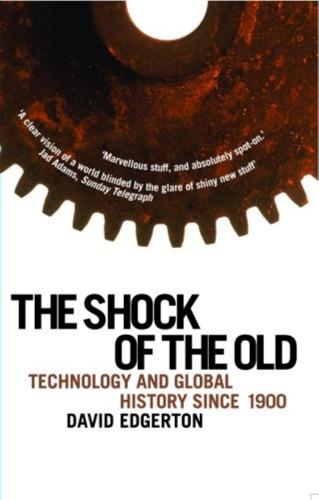
The Shock of the Old: Technology and Global History Since 1900
by
David Edgerton
Published 7 Dec 2006
He had the odd sense of ‘having strayed into the world of those romancers who forecast the future; a slaughterhouse of tasteful architecture set in a grove of lemon trees and date palms, suggested the dreamy ideal of some reformer whose palate shrinks from vegetarianism’.14 Advanced thinkers of the time, such as Gissing’s friend, H. G. Wells, were attracted to vegetarianism and a vegetarian future. On the other side of the Atlantic, another writer was to picture a very different kind of slaughterhouse. Upton Sinclair, in his great socialist novel of 1906, The Jungle, described the booming, corrupt, business-dominated city of Chicago. Among the giant enterprises he discussed were the great meatpackers, a world away from Europe’s most modern municipal abattoirs (another, mentioned with approval, was the International Harvester factory).
…
The killing rate in the frigorífico was extraordinary, especially if we remember it was done by stunning with a pole-axe and then cutting the throat with a knife. Through much of the twentieth century Uruguay slaughtered 1 million head of cattle per annum, mostly in the four plants. In the 1930s the Anglo in Fray Bentos dispatched 200 an hour.23 According to Upton Sinclair, one Chicago plant was already killing twice that thirty years earlier. Fifteen to twenty beef cattle were stunned with a pole-axe every minute, and then killed: 400 to 500 an hour, around 4,000 a day.24 These giant meatpackers were unknown in the Old World; they were found only in the River Plate, the USA and Oceania.
…
Waterman, Freezing Fish. 13. On related matters, see Paul R. Josephson, Industrialized Nature: Brute Force Technology and the Transformation of the Natural World (New York: Shearwater, 2002). 14. George Gissing, By the Ionian Sea (London: Century Hutchinson, 1986), pp. 153–4 (first published 1901). 15. Upton Sinclair, The Jungle (Harmondsworth: Penguin Classics Edition, 1974), pp. 328–9 (first published New York, 1906). 16. Ibid., pp. 44, 45. 17. Ibid., pp. 376–7. 18. See Hans-Liudger Dienel, Linde: History of a Technology Corporation, 1879–2004 (London: Palgrave, 2004). 19. The lorry-mounted refrigeration unit was developed in the 1940s by an African-American inventor, Fred Jones, and led to the creation of the enormous Thermo King company. 20.
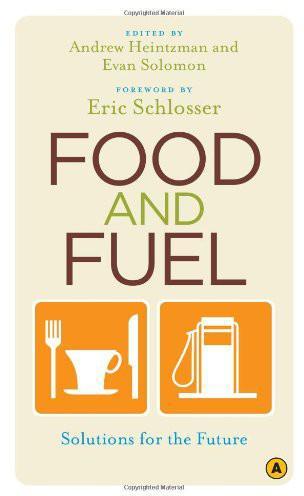
Food and Fuel: Solutions for the Future
by
Andrew Heintzman
,
Evan Solomon
and
Eric Schlosser
Published 2 Feb 2009
The potential negative impact of a $2.5-billion loss in cattle exports will translate into a $2-billion loss in GDP, a $5.7-billion decline in total output and 75,000 jobs lost.1 BSE made the front page not because efforts to prevent the entry and transmission of BSE had been too little, too late, and not because of the potential human health risks — but largely because of the enormous disruption caused to Canada’s cattle markets and regional economies. In fact, BSE was not diagnosed until over three months after the cow had been condemned as unfit for human consumption and slaughtered. Meanwhile, the carcass had already been rendered into livestock feed. Consumers have been questioning food safety for over a century. From Upton Sinclair’s The Jungle in 1906 — an exposé of unsanitary food handling in Chicago’s meat-packing plants — to Eric Schlosser’s Fast Food Nation in 2001, the livestock and meat-packing industries have lent themselves to alarming accounts. A century ago, the prevalence of bovine tuberculosis spurred the establishment of government-sanctioned meat inspection, while today meat is associated with a new set of diseases.
…
Cattle producers are afraid to look for it but equally afraid that no one is looking for it, betting the farm whether they like it or not. Meanwhile consumers rely on government inspection to ensure that their meat is safe. Meat Inspection Canada’s Meat and Canned Foods Act became law in 1907, one year after publication of The Jungle, Upton Sinclair’s sensational exposé of unsanitary food handling practices in Chicago’s meat-packing plants.32 Canada’s Meat Inspection Service was created as an agency of the Department of Agriculture. Any plant wishing to ship its products across provincial or international boundaries was obliged to meet federal inspection standards.
…
Gary Little, “BSE Surveillance in Canada,” CAHNet Bulletin, Canadian Animal Health Network Edition 8, (Winter 2003): 3; and Alberta Auditor General, Report of the Auditor General on the Alberta Government’s BSE-Related Assistance Programs (July 27, 2004): 49. 30. “Farmers Not Meeting BSE Test Quotas,” Lethbridge Herald, August 5, 2004, 1. 31. Alberta Auditor General, Report on Alberta Government’s BSE-Related Assistance Programs, 48. 32. Upton Sinclair, The Jungle. (New York: Bantam Books, 1906; Bantam Classics Edition, 1981). For an account of the effect of Sinclair’s novel in Canada, see Ian MacLachlan, Kill and Chill: Restructuring Canada’s Beef Commodity Chain (Toronto: University of Toronto Press, 2001), 128–31. 33. U.K. Food Standards Agency, Report on the Review of Scientific Committees (2002), http://www.food.gov.uk/multimedia/pdfs/CommitteesReview.pdf. 34.
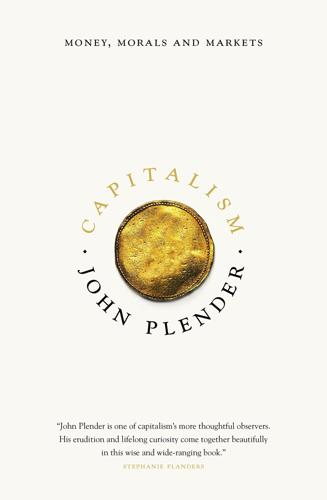
Capitalism: Money, Morals and Markets
by
John Plender
Published 27 Jul 2015
Equally critical of American materialism is Sinclair Lewis’s 1920s satirical novel Babbitt, about a successful realtor who undergoes a mid-life crisis, goes bohemian and subsequently returns to the bourgeois fold. Yet US literature also produced one of the few great novels that look at a particular business in depth, in the shape of Herman Melville’s Moby-Dick. This tells you all you need to know (and more) about the catching and butchering of whales. And then there is Upton Sinclair, whose description of the Chicago slaughterhouses in the campaigning anti-business novel The Jungle was instrumental in bringing about the 1906 Pure Food and Drug Act, and whose novel The Moneychangers demonises Wall Street in a way that has taken on a new resonance in the light of the financial debacle of 2007–09.
…
Scott Fitzgerald) 1 Great Illusion, The (Norman Angell) 1 Great Inflation (1970s) 1 Great Moderation 1, 2 Great Recession (2007–09) 1, 2, 3, 4, 5, 6, 7, 8 Greece (modern) 1, 2, 3, 4, 5 Greeks (ancient) 1, 2, 3 Green, David 1 Greenspan, Alan 1, 2, 3, 4, 5, 6, 7, 8 Greenwood, Robin 1 Grekova, Irina 1 Grice, Dylan 1 Griesinger, Georg August 1 Gulf of Mexico oil spill (2010) 1 Gusinsky, Vladimir 1 Gutenberg, Johannes 1 Haldane, Andrew 1, 2, 3, 4 Hamilton, Alexander 1, 2 Hamlet (Shakespeare) 1 Hammurabi 1, 2 Handel, George Frideric 1 Hard Times (Dickens) 1, 2, 3 Haydn, Joseph 1 Hayek, Friedrich 1 Healey, Denis 1 healthcare 1 Heaney, Seamus 1 Hegel 1, 2 Hinduism 1, 2 Hirsch, Fred 1 Hirschman, Albert O. 1 Hirst, Damien 1, 2 Holmes, Oliver Wendell 1 Hoover, Herbert 1 Hotel Manager, The (Irina Grekova) 1 Hudson, George 1 Hugh of Saint Victor 1, 2 Hughes, Robert 1, 2, 3 Hume, David 1, 2, 3 Hutcheson, Archibald 1 hyperinflation 1 IBM 1 Iceland 1 Impressionists 1 income tax 1 incorporation 1, 2 India 1, 2 indirect taxes 1 industrial shrinkage 1 industrial revolution 1, 2, 3, 4, 5, 6, 7, 8 inequality 1 Inferno (Dante) 1 inflation 1 institutional investors 1 intellectual property 1 International Monetary Fund 1 investment banking 1 Ireland 1, 2, 3 irrational exuberance 1 Islam 1 Italy 1, 2 art 1, 2 banking 1, 2 public debt 1, 2 taxation 1, 2 Ives, Charles 1 Jackson, Andrew 1, 2 Jackson Hole, Wyoming 1 James, Henry 1 Japan 1, 2 banks 1 bubble (1980s) 1, 2 industrialisation 1, 2 investment in China 1 manufacturing 1 Jefferson, Thomas 1, 2, 3 Jobs, Steve 1 Johnson, Ben 1 Johnson, Dr Samuel 1, 2, 3, 4, 5, 6, 7, 8 Johnson, Luke 1 joint stock companies 1 Joseph II, Emperor of Austria 1 JP Morgan 1 JPMorgan Chase 1 Judt, Tony 1 Jungle, The (Upton Sinclair) 1 Kafka, Franz 1 Kant, Immanuel 1 Katz, Richard 1 Kay, John 1, 2, 3 Kennedy, Paul 1 Kerr, Alex 1 Kerviel, Jérôme 1, 2 Keynes, John Maynard 1, 2, 3, 4, 5, 6 art 1, 2, 3, 4 debt 1, 2, 3, 4 family background and education 1, 2 gold standard 1, 2 speculation (participation) 1 speculation (views) 1, 2 Kindleberger, Charles 1, 2 King, Mervyn 1, 2 Knight, Eric 1 Knights Templar 1 knowledge 1 Koons, Jeff 1, 2 Krugman, Paul 1 Kuttner, Robert 1, 2 Kynaston, David 1 L’Argent (Zola) 1 L’Esprit Des Lois (Montesquieu) 1, 2 La Rochefoucauld 1 Laffer, Arthur 1 Lambert, Richard 1 Lanchester, John 1 Law, John 1 law of comparative advantage 1 Lawrence, D.
…
L. 1, 2 Menlo Park 1 Merchant of Venice (Shakespeare) 1, 2, 3 Meriwether, John 1 Merton, Robert 1 Michelangelo 1, 2 Micklethwait, John 1 Midas myth 1, 2, 3 Milton, John 1 Minsky, Hyman 1, 2 Miró, Joan 1 Mississippi Bubble 1, 2 Misunderstanding Financial Crises (Gary B. Gorton) 1 Moby-Dick (Herman Melville) 1 Molière 1, 2 Moll Flanders (Daniel Defoe) 1 Mond, Alfred 1, 2 money motive 1 Moneychangers, The (Upton Sinclair) 1 Montesquieu 1, 2, 3, 4, 5, 6, 7 Moore, G. E. 1 morbidity syndrome 1 More, Thomas 1, 2 Morgan, John Pierpont 1 Mozart 1, 2 Mussolini 1 Mutual Assured Production (Richard Katz) 1 Mynors, Humphrey 1 Napoleonic Wars 1 Nash, Ogden 1, 2 Native Americans 1 Nazi Germany 1 Netherlands 1 New Deal 1, 2 New Testament 1 Newton, Isaac 1, 2, 3 Nicholas Nickleby (Dickens) 1, 2, 3 Nigeria 1 Norquist, Grover 1 North, Roger 1 North and South (Mrs Gaskell) 1 North Korea 1 Northern Rock (UK) 1 Novalis 1 Nuffield, Lord 1 Obama, Barack 1, 2 Occupy movement 1, 2 oil states 1 da l’Osta, Andrea 1, 2 outsourcing 1, 2 paper currency 1 Parker, Dorothy 1 Pascal, Blaise 1, 2 Past and Present (Thomas Carlyle) 1 Paulson, John 1 Peasants’ Revolt (England) 1 pension funds 1 Pepys, Samuel 1 Peruzzi family 1 perverse incentives 1, 2 Petronius 1 Picasso 1, 2 Piketty, Thomas 1 Pitt, William the Elder 1 Pitt, William the Younger 1 Plato 1, 2, 3 Political Discourses (Hume) 1 Politics (Aristotle) 1, 2, 3, 4, 5 poll taxes 1 Pope, Alexander 1, 2, 3, 4, 5 Portugal 1 positional goods 1 Poussin, Nicolas 1 Prell, Michael 1 Priestley, Joseph 1 printing 1 Proposition 1 (California) 2 Protestant Ethic and the Spirit of Capitalism (Weber) 1 Prussia 1, 2, 3 public sector debt 1 R.
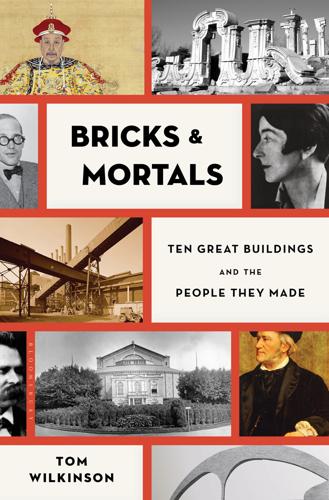
Bricks & Mortals: Ten Great Buildings and the People They Made
by
Tom Wilkinson
Published 21 Jul 2014
His cars helped free Americans, but his factories enslaved them. He venerated the past and yet helped dig its grave. He straddled the worlds of rural idiocy and industrial slavery, a crackpot colossus with a quenchless thirst for snake oil and an unerring instinct for the lowest common denominator (Upton Sinclair said his pronouncements were ‘shrewdly addressed to the mind of the average American, which he knew perfectly because he had had one for forty years’2). He insisted on sexual propriety in his workers but had a long affair with a much younger woman. A sentimental lover of children, he persecuted his own son even when the latter was on his deathbed.
…
They spent it as fast as they could in order to improve themselves.’4 This attitude caused uproar, but it also made Ford the richest man in the world. In order to achieve his aim of cheap cars for all, between 1908 and 1927 Ford offered only one ultra-standardised product, the Model T, which, he famously remarked, was available in ‘any colour, as long as it’s black’. Upton Sinclair, author of a tendentious novella about Ford called The Flivver King (flivver was one of the Model T’s many nicknames), shared the popular disdain for the car’s looks: It was an ugly enough little creation he had decided upon; with its top raised it looked like a little black box on wheels.
…
Quintin Hoare (London, 1998), 93. 21 Karal Ann Marling (ed.), Designing Disney’s Theme Parks: The Architecture of Reassurance (New York, 1997), 180. Chapter 7: Highland Park Car Factory, Detroit 1 Louis-Ferdinand Céline, Voyage au bout de la nuit, (Paris, 1962), 223. Author’s translation. 2 Upton Sinclair, The Flivver King (Chicago, 2010), 16. 3 Steven Watts, The People’s Tycoon: Henry Ford and the American Century (New York, 2005), 384. 4 Ibid. 118. 5 Sinclair, The Flivver King, 22. 6 Watts, 156–7. 7 Céline, 225–6. Author’s translation. 8 Federico Bucci, Albert Kahn: Architect of Ford (Princeton, 1993), 175. 9 Charles Fourier, Selections from the Works of Charles Fourier, trans.

The Age of Stagnation: Why Perpetual Growth Is Unattainable and the Global Economy Is in Peril
by
Satyajit Das
Published 9 Feb 2016
Traditional sources of protein, such as wild cod and salmon, are becoming scarce. With most wild fisheries fully or over-exploited, demand is now met by fish farms, which require grain and soybeans as feed. Fishmeal is another source of feed, placing additional pressure on oceanic fisheries. The revelations about Chicago's meatpacking industry in Upton Sinclair's 1906 novel The Jungle caused public outrage about industrial food production methods. Despite subsequent regulatory safeguards, modern large-scale food production, which emphasizes efficiency and quantity over quality, has side effects. Liquid manure threatens water quality, contributing to rising nitrate levels in near-surface groundwater.
…
Clients, known internally as “muppets,” were encouraged to invest in securities or products that Goldman wanted to dispose of at a profit. They frequently did not understand the risk of the complex transactions. During a 2010 US Senate hearing on investment banking practices in the lead-up to the GFC, Goldman executives illustrated Upton Sinclair's observation: “It is difficult to get a man to understand something, when his salary depends on his not understanding it.”7 The following exchange occurred during the hearing: Senator Levin: “Don't you also have a duty to disclose an adverse interest to your client? Do you have that duty?” Dan Sparks (head of Goldman Sach's mortgage trading): “About?”
…
Ralph Mannheim, Der Fuehrer: Hitler's Rise to Power, Houghton Mifflin, 1944, excerpted in Fritz Ringer, The German Inflation of 1923, Oxford University Press, 1969, p. 170. 2 See Michael Mackenzie, Dan McCrum, and Stephen Foley, “Bond Markets: A False Sense of Security,” Financial Times, 18 November 2012. 3 See Ralph Atkins and Martin Sandbu, “FT Interview Transcript: Jens Weidmann,” Financial Times, 13 November 2011. 4 See Ben McLannahan, “Japan Bonds Swing Wildly after BoJ Move,” Financial Times, 5 April 2013. 5 John Maynard Keynes, quoted in Robert Sidelsky, John Maynard Keynes: The Economist as Saviour 1920-1937, Macmillan, 1992, p. 62. 6 Greg Smith, “Why I Am Leaving Goldman Sachs,” New York Times, 14 March 2012. 7 Upton Sinclair, I, Candidate for Governor: And How I Got Licked, University of California Press (1935) 1994, p. 109. 8 “Wall Street and the Financial Crisis: The Role of Investment Banks,” Senate Hearing 111-674, vol. 4, 27 April 2010. www.gpo.gov/fdsys/pkg/CHRG-111shrg57322/html/CHRG-111shrg57322.htm. 9 Matt Taibbi, “The Great American Bubble Machine,” Rolling Stone, 5 April 2010. 10 Liam Vaughan and Jesse Westbrook, “Barclays Big-Boy Breaches Mean Libor Fixes Not Enough,” Bloomberg, 29 June 2012. www.bloomberg.com/news/articles/2012-06-29/barclays-big-boy-breaches-mean-libor-fixes-not-enough. 11 Martin Arnold, “HSBC Shares Drop after Full-Year Profits Fall,” Financial Times, 23 February 2015. 12 Ferdinand Pecora, Wall Street under Oath, Simon & Schuster, 1939, p. 130. http://books.google.com.au/books?
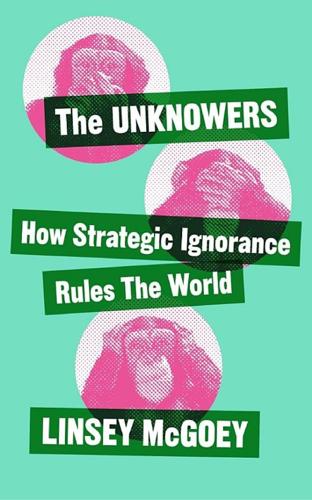
The Unknowers: How Strategic Ignorance Rules the World
by
Linsey McGoey
Published 14 Sep 2019
He was inspired particularly by Rousseau, who, as Bastiat put it, ‘never spoke more truly than when he said: It takes a great deal of scientific insight to discern the facts that are closest to us.’17 George Orwell reiterated the point when he famously observed, ‘To see what is in front of one’s nose needs a constant struggle.’ These are compelling but also obvious points in a way: we know that people struggle to accept inconvenient facts, and we also have a good idea of why (Upton Sinclair’s adage applies: ‘it is difficult to get a man to understand something, when his salary depends on his not understanding it’). What we don’t really know is how. How do some people ‘get away’ with sustained ignorance when others on lower rungs of a social ladder are treated as more ignorant than the elite?
…
Just over a century ago, neither the US nor the UK imposed rules on pharmaceutical companies to prove their products were safe. It wasn’t illegal to make false claims about drug safety, something that shifted in the US in the early decades of the twentieth century, when a series of federal laws gradually strengthened federal drug and food regulation. A turning point was the journalist Upton Sinclair’s novel The Jungle. Published in 1905 and funded by an advance from a socialist weekly newspaper, Sinclair spent seven weeks living undercover around the stockyards of Packington, Chicago, observing the work and lives of meat-packers – labourers who hailed from diverse ethnic groups, were irregularly employed and paid next to nothing for working in gruelling conditions.6 Sinclair hoped to foster public sympathy for the conditions of immigrant meat-packers: his audience was outraged, but not on the behalf of immigrants: their reaction centred far more on the gross health violations he revealed in Chicago’s meat plants.
…
‘Drug firms hiding negative research are unfit to experiment on people’ (The Guardian, August 14). See also Peter C. Gøtzsch, 2012. ‘Big pharma often commits corporate crime, and this must be stopped.’ BMJ 2012;345:e8462 5 Harold Evans, 2012. ‘Thalidomide’s big lie overshadows corporate apology’ (Reuters, July 12). 6 Michael Brewster Folsom, 1979. ‘Upton Sinclair’s escape from The Jungle: The narrative strategy and suppressed conclusion of America’s first proletarian novel.’ Prospects, 4: 237–266. doi:10.1017/S0361233300002891. 7 Andrew Ward, 2015. ‘Frances Kelsey, drug regulator who barred Thalidomide, 1914–2015’ (Financial Times, August 14). 8 Leila McNeill, 2017.
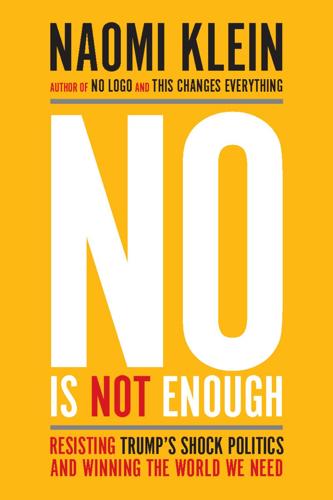
No Is Not Enough: Resisting Trump’s Shock Politics and Winning the World We Need
by
Naomi Klein
Published 12 Jun 2017
When Utopia Lends a Hand Gilded Age strikers: “cooperative commonwealth” Alex Gourevitch, From Slavery to the Cooperative Commonwealth: Labor and Republican Liberty in the Nineteenth Century (New York: Cambridge University Press, 2015), http://projects.iq.harvard.edu/files/history-culture-society-workshop/files/introduction_and_chapter_4.pdf. Robin D.G. Kelley: “black-led biracial democratic, populist, and radical movements” Robin D.G. Kelley, “Births of a Nation,” Boston Review, March 6, 2017, http://bostonreview.net/race-politics/robin-d-g-kelley-births-nation. Upton Sinclair: 900,000 votes Upton Sinclair, I, Candidate for Governor: And How I Got Licked (Los Angeles: University of California Press, 1934), x. Milan Kundera: “the struggle of man against power is the struggle of memory against forgetting” Milan Kundera, The Book of Laughter and Forgetting (New York: Harper Perennial Modern Classics, 1999), 4.
…
A similar utopian fervor in the late sixties and early seventies—emerging out of the countercultural upheaval, when young people were questioning just about everything—laid the groundwork for feminist, lesbian and gay, and environmental breakthroughs. The New Deal, it is always worth remembering, was adopted by President Roosevelt at a time of such progressive and Left militancy that its programs—radical by today’s standards—appeared at the time to be the only way to prevent full-scale revolution. And this was no idle threat. When Upton Sinclair, the muckraking author of The Jungle, ran for governor of California in 1934, it was something like the Bernie Sanders campaign of its day. Sinclair was a champion of a more left-wing version of the New Deal, arguing that the key to ending poverty was full state funding of workers’ cooperatives.
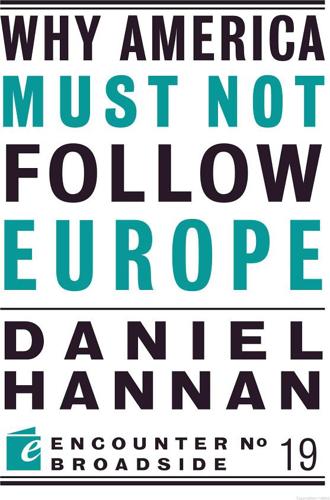
Why America Must Not Follow Europe
by
Daniel Hannan
Published 1 Mar 2011
But an entire political class has grown up believing not just in the economic superiority of Euro-corporatism but in its moral superiority. After all, if the American system were better – if people and businesses could thrive without government supervision – there would be less need for politicians. As Upton Sinclair once observed, “It is difficult to get a man to understand something when his job depends on not understanding it.” Nonetheless, the economic data are pitilessly clear. For the past 40 years, Europeans have fallen further and further behind Americans in their standard of living. In 1974, Western Europe, defined as the 15 members of the EU prior to the admission of the former Communist countries in 2004, accounted for 36 percent of world GDP.
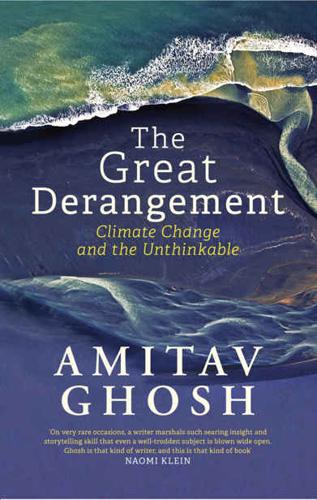
The Great Derangement: Climate Change and the Unthinkable
by
Amitav Ghosh
Published 16 Jan 2018
she asks, ‘and if a writer dwells upon that solely or principally is he not in danger of being an egotist?’ In a perceptive discussion of Updike’s review, the critic Rob Nixon points out that Munif is ‘scarcely alone in working with a crowded canvas and with themes of collective transformation’; Émile Zola, Upton Sinclair, and many others have also treated ‘individual character as secondary to collective metamorphosis’. Indeed, so numerous are the traces of the collective within the novelistic tradition that anyone who chose to look for them would soon be overwhelmed. Such being the case, should Updike’s view be summarily dismissed?
…
Kenneth Pomeranz, ‘The Great Himalayan Watershed: Water Shortages, Mega-Projects, and Environmental Politics in China, India, and Southeast Asia’, 19 (published in French as ‘Les eaux de l’Himalaya: Barrages géants et risques environnementaux en Asia contemporaine’, in Revue d’histoire modern et contemporaine 62, no. 1 [January–March 2015]: 6–47); for Mao’s ‘War against Nature’, see Judith Shapiro, Mao’s War against Nature: Politics and the Environment in Revolutionary China (Cambridge: Cambridge University Press, 2001). 161 ‘world [they] depict’: Franco Moretti, The Bourgeois, 89. 162 ‘the official order’: Arran E. Gare, Postmodernism and the Environmental Crisis (London: Routledge, 1995), 16. 162 perspective of the Anthropocene: As Stephanie LeMenager points out, even Upton Sinclair, a committed socialist and ‘one of the most ideologically driven American novelists’, ends up romanticizing the gasoline-powered culture of cars. See Stephanie LeMenager, Living Oil, 69. 162 ‘becomes a commodity’: Guy Debord, The Society of the Spectacle, 3rd ed. (New York: Zone Books, 1994), 59. 165 ‘with us always’: Roger Shattuck, The Banquet Years, 25. 165 predecessor obsolete: Bruno Latour, We Have Never Been Modern, loc. 1412. 165 ‘wrong side of history’: http://www.slate.com/blogs/lexicon_valley/2014/04/17/the_phrase_the_wrong_side_of_history_around_for_more_than_a_century_is_getting.html. 168 vulnerable to climate change: Cf.

The Raging 2020s: Companies, Countries, People - and the Fight for Our Future
by
Alec Ross
Published 13 Sep 2021
Organized labor in the United States peaked: “Union Members Summary,” US Bureau of Labor Statistics, January 22, 2020, https://www.bls.gov/news.release/union2.nr0.htm; Mayer, Union Membership Trends in the United States, https://core.ac.uk/download/pdf/144981482.pdf. Both trends are the direct result: Anna Stansbury and Lawrence Summers, “Declining Worker Power and American Economic Performance,” BPEA Conference Draft, Spring 2020. The writer Upton Sinclair summarized: Upton Sinclair, The Jungle (New York: Doubleday, Page & Co., 1906), chap. 10. An estimated one million rounds of ammunition: Evan Andrews, “The Battle of Blair Mountain,” History.com, September 1, 2018, https://www.history.com/news/americas-largest-labor-uprising-the-battle-of-blair-mountain. spent $1 million: Lynch, “How Did Workers Win the Right to Form a Union and Go on Strike?
…
As workers moved from the farm to the factory, port, mill, and mine, they encountered conditions that bordered on hellish. Laborers were frequently injured and sometimes killed by the machines they operated. Overcrowded sweatshops left workers vulnerable to disease and fires. For most people, wages were low, days were long, and the work itself was dirty, dangerous, and demanding. The writer Upton Sinclair summarized the plight of industrial workers in his novel The Jungle. Such were the cruel terms upon which their life was possible, that they might never have nor expect a single instant’s respite from worry, a single instant in which they were not haunted by the thought of money.… In addition to all their physical hardships, there was thus a constant strain upon their minds; they were harried all day and nearly all night by worry and fear.
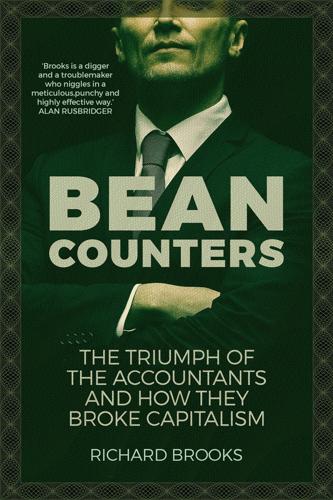
Bean Counters: The Triumph of the Accountants and How They Broke Capitalism
by
Richard Brooks
Published 23 Apr 2018
The part played by the change of the major investment, or merchant, banks from partnerships to companies is explained more in Kay, Other People’s Money. 22. Evidence of Lord Stevenson to Parliamentary Commission on Banking Standards, 4 December 2012. 23. Figures from Ian Fraser, ‘KPMG and the HBOS Whistleblower’, Sunday Herald, 18 December 2011. 24. Galbraith, The Great Crash. 25. From Upton Sinclair, I, Candidate for Governor: And how I got Licked, Upton Sinclair, 1934. 26. Robert Half, CEO tracker survey, April 2016, https://www.roberthalf.co.uk/news-insights/reports-guides/cfo-insights/robert-half-ftse-100-ceo-tracker; accessed 5 March 2017. 27. Stuart Pfeifer, ‘Former KPMG Partner Sentenced for Insider Trading’, Los Angeles Times, 24 April 2014. 28.
…
Galbraith could have been prophesying accountancy a few decades later, now led by men of business rather than watchdogs of business.24 Another American writer of the same time caught the likely cause of the bean counters’ blindness to looming danger even more starkly. ‘It is difficult to get a man to understand something’, wrote Upton Sinclair, ‘when his salary depends upon his not understanding it.’25 Given that they were lucratively advising on the financial concoctions that would detonate the crisis, it certainly wouldn’t have paid the early-twenty-first-century bean counters to understand the destructive power within them. MEN, AND A FEW WOMEN, OF THE WORLD The Big Four’s bean counters are drawn from a pool of high educational achievers, dozens of graduates applying for each ‘fast-stream’ job that might eventually lead to partner status.
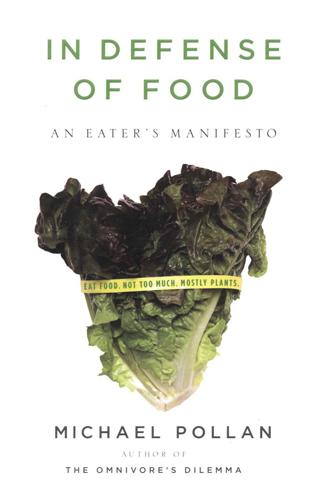
In defense of food: an eater's manifesto
by
Michael Pollan
Published 15 Dec 2008
Too bad the same cannot be said of an unknown number of margarine eaters. By now we have become so inured to fake foods that we forget what a difficult trail margarine had to blaze before it and other synthetic food products could win government and consumer acceptance. At least since the 1906 publication of Upton Sinclair’s The Jungle, the “adulteration” of common foods has been a serious concern of the eating public and the target of numerous federal laws and Food and Drug Administration regulations. Many consumers regarded “oleomargarine” as just such an adulteration, and in the late 1800s five states passed laws requiring that all butter imitations be dyed pink so no one would be fooled.
…
As soon as you do, accountability becomes once again a matter of relationships instead of regulation or labeling or legal liability. Food safety didn’t become a national or global problem until the industrialization of the food chain attenuated the relationships between food producers and eaters. That was the story Upton Sinclair told about the Beef Trust in 1906, and it’s the story unfolding in China today, where the rapid industrialization of the food system is leading to alarming breakdowns in food safety and integrity. Regulation is an imperfect substitute for the accountability, and trust, built into a market in which food producers meet the gaze of eaters and vice versa.
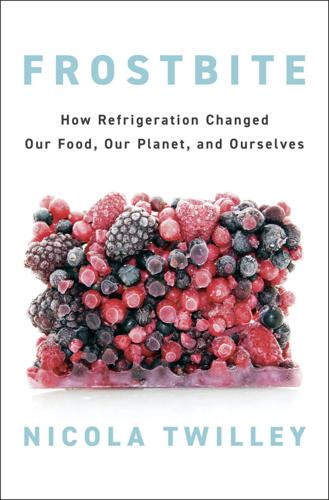
Frostbite: How Refrigeration Changed Our Food, Our Planet, and Ourselves
by
Nicola Twilley
Published 24 Jun 2024
Instead, his motivation sprang from a much less lofty place: a mania for saving money. By way of illustration, Louis explained that one of the places Swift most liked to visit was Bubbly Creek, the notoriously fetid open sewer that conveyed blood and entrails from the Union Stock Yards into the Chicago River. Upton Sinclair’s novel The Jungle, a fictionalized account of working in the city’s meat-packing plants, offers an explanation of how the sewer came by its moniker: “The grease and chemicals that are poured into it undergo all sorts of strange transformations, which are the cause of its name; it is constantly in motion, as if huge fish were feeding in it, or great leviathans disporting themselves in its depths.
…
Meat that had turned gray could have its rosy blush restored through the application of salicylic acid; promotional materials for sulfur- and formaldehyde-laced Freezine boasted that meat could be “exposed for sale…more of the preparation applied, and still look good to the eye.” The industrialization of meat slaughter and processing also led to some sanitary corner cutting, famously exposed by Upton Sinclair in his 1906 novel The Jungle. Sinclair intended the book as a labor rights manifesto, but with its graphic descriptions of diseased animals and filthy conditions in Chicago’s Union Stock Yards, it was read as a call to action on food safety. Even the Poultry, Butter and Egg Association’s Dowie admitted that, on occasion, the iced, dressed chickens he received for sale were not perfectly fresh.
…
Libecap, “The Rise of the Chicago Packers and the Origins of Meat Inspection and Antitrust” (Working Paper No. 29, National Bureau of Economic Research, September 1991); and Mary Yeager Kujovich, “The Refrigerator Car and the Growth of the American Dressed Beef Industry,” Business History Review 46 (1970): 460–82. To understand how cities were supplied with meat, I consulted Upton Sinclair, The Jungle (New York: Doubleday, Page, 1906); Diane Purkiss, English Food: A Social History of England Told through the Food on Its Tables (Glasgow: William Collins, 2022); George Dodd, The Food of London: A Sketch of the Chief Varieties, Sources of Supply, Probable Quantities, Modes of Arrival, Processes of Manufacture, Suspected Adulteration, and Machinery of Distribution (London: Longman, Brown, Green, and Longmans, 1856); Steel, Hungry City; Catherine McNeur, Taming Manhattan: Environmental Battles in the Antebellum City (Cambridge, MA: Harvard University Press, 2014); Julius Friedrich Sachse, The Wayside Inns on the Lancaster Roadside between Philadelphia and Lancaster (United States: Press of the New Era Printing Company, 1912); Richard Perren, “The North American Beef and Cattle Trade with Great Britain, 1870–1914,” Economic History Review 24, no. 3 (August 1971): 430–44; Helen Watkins, “Fridge Space: Journeys of the Domestic Refrigerator” (PhD diss., University of British Columbia, 2008); and Charles Dickens, Great Expectations (1861; Project Gutenberg, 1998).
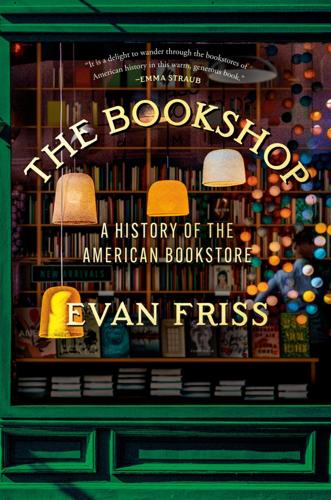
The Bookshop: A History of the American Bookstore
by
Evan Friss
Published 5 Aug 2024
Christopher Morley was a friend of the store. He and Shay went out for “spaghetti and spumoni ice cream.” And for at least one week, Shay turned his front window into a display of works by Morley, “the booksellers’ guardian angel.” Sinclair Lewis, Sherwood Anderson, William Rose Benét, Floyd Dell, John Dos Passos, Theodore Dreiser, and Upton Sinclair also visited. We know, because they and more than one hundred other writers (plus sixteen booksellers) signed the door that separated Shay’s office from the shop floor. (Allegedly, Shay installed the door so that people couldn’t see him drinking.) The door became an author’s “Magna Carta,” with writers wanting to sign it.
…
The Rand School was the educational nucleus of the movement, offering courses on the history and theory of Socialism, composition, and public speaking, as well as a Sunday school for kids. Leading thinkers, writers, activists, and authors, Socialists or otherwise, taught classes and gave evening lectures, including W. E. B. Du Bois, William Butler Yeats, Jack London, Charlotte Perkins Gilman, Carl Sandburg, Bertrand Russell, Elizabeth Gurley Flynn, Upton Sinclair, Clarence Darrow, Helen Keller, John Dewey, H. G. Wells, and Diego Rivera. By 1918, more than five thousand students, mostly workers in their twenties, many of them Jewish immigrants, attended class in the People’s House, a handsome building of chunky brownstone and bricks with its name emblazoned in oversize letters on the fifth story.
…
Lawson came to DC by way of Mississippi, where she wrote comic books introducing Black voters to local politics. Working for Drum & Spear Press was a natural evolution. Lawson grew up in Alabama and its segregated libraries. A counterculture shop called Gene Crutcher Books (the “City Lights of Birmingham”) served as her “intellectual oasis.” There, a teenage Lawson was introduced to James Baldwin, Upton Sinclair, and Lenny Bruce. The desire to forge an African connection ran so deep that Lawson was part of a team that established a Drum & Spear office in Dar es Salaam, Tanzania. Remarkably, a bookstore with just a few staffers and a small footprint in the nation’s capital was now engaged in a transcontinental publishing venture.
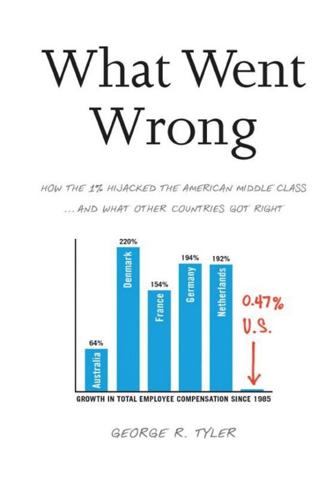
What Went Wrong: How the 1% Hijacked the American Middle Class . . . And What Other Countries Got Right
by
George R. Tyler
Published 15 Jul 2013
Rising income disparities gave voice to collectivists; Jean-Jacques Rousseau, for example, who published Discourse on the Origin of Inequality in 1755, and Karl Marx, whose dense Communist Manifesto was published nearly a century later. Mainstream critics sought to temper the increasingly evident excesses of poverty, wage suppression, and the amorality endemic with laissez-faire capitalism, as popularized by Charles Dickens and others, and later, by American writers such as Upton Sinclair and John Steinbeck. It was a battle first waged in England, featuring the Chartist laborers’ uprisings in 1838–1848 promising class warfare.41 Forced by public opinion to acknowledge the validity of long-suppressed employee grievances, Parliament launched study commissions and soon crafted a middle ground between conservatives like Thomas Carlyle and socialists like John Stuart Mill that became a continent-wide template.
…
Roosevelt helped guide this rejuvenation of traditional American values and thereby became a transformational president: “Franklin Roosevelt was one of those rare individuals who had a significant impact on history, but his leadership explains less about the changes the United States underwent in the 1930s than does a fundamental shift in the values of the American people.”5 Building on reformers including President Theodore Roosevelt, Ida Tarbell, and Upton Sinclair, the recrafting of American capitalism by Franklin D. Roosevelt placed the US economy on a trajectory toward family capitalism. In calling on the “angels” in each of us, Roosevelt reawakened the frontier mindset of Americans to look beyond their own lives to broader concerns, such as the value added to society by expansive public education.
…
With an appealing ideology credentialed by the charismatic President Reagan, and made even more appealing by campaign donations, Ayn Rand’s Washington men found ready acolytes to Reaganomics among members of Congress. And their outmanned opponents in unions and other groups quickly learned the truth of the Upton Sinclair proverb: “It is difficult to get a man to understand something when his salary depends upon his not understanding it.” The New Norm: “Savage Cost Cutting” “It is a good time to be a corporate insider, particularly at major financial companies. First you report productivity gains and ‘operating profits’—not by making smart investments in productive assets, but instead … at industrial firms, by cutting the number of workers per unit of capital.”32 That was mutual fund manager John P.
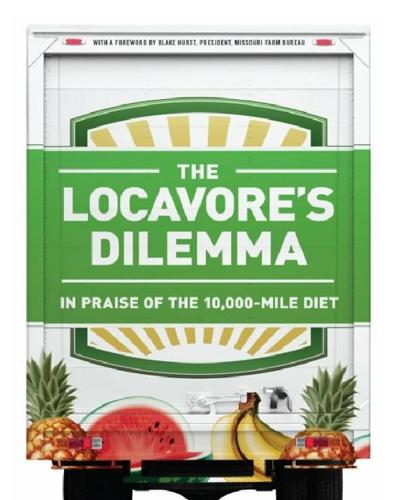
The Locavore's Dilemma
by
Pierre Desrochers
and
Hiroko Shimizu
Published 29 May 2012
Perhaps the best historical case to illustrate the economic benefits of both types of economies of scale is the Chicago meat-packing district in the second half of the 19th century, a subject to which we will now devote a few lines.26 Although self-styled reformers maligned the meat packers for their alleged sins of collusion and greed—long before Upton Sinclair’s 1906 novel The Jungle indicted them for alleged unsanitary practices27—a case can be made that the real source of the industry’s success and its true economic impact has been mischaracterized by contemporary critics who were essentially local food activists. The main argument on behalf of the packers, as stated in 1908 by the pastor George Powell Perry, was that it was a common mistake “to attribute the financial success of some of these moneyed corporations to cheat and chicanery in business methods” for “to say that all this phenomenal accumulation of wealth has resulted from shrewd trickery that enabled a few to cheat their fellows of their dues is a false representation of the true workings of a system of savings that has done as much as anything else to make possible the extraordinary prosperity of our nation during the past century.”
…
The implicit message was that America should “reform its slaughterhouses and packaging methods and, most important, that it introduce a reliable system of microscopic examination for exported pork” in order to prevent the spread of trichinae—parasitic nematodes or roundworms, the reason for the widespread advice to cook pork thoroughly. (Again, this trade conflict began nearly three decades before Upton Sinclair published The Jungle.) As was widely known at the time, though, trichinosis was also a significant problem in Germany, as it had claimed at least 513 lives before 1880.49 Slightly more than four decades later, American exports of apples to the United Kingdom were blocked after arsenic-based pesticides had been discovered on some fruit.
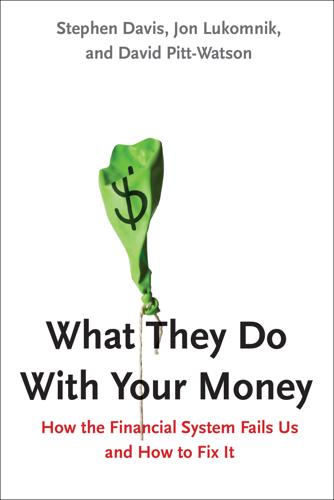
What They Do With Your Money: How the Financial System Fails Us, and How to Fix It
by
Stephen Davis
,
Jon Lukomnik
and
David Pitt-Watson
Published 30 Apr 2016
But the formulaic way in which bankers are paid and the correlation between company size and compensation give little incentive for prudence. Economic ADHD is built into the structures of institutions whose very purpose is to be safe and prudent and whose business model is leveraged and fragile. As the writer Upton Sinclair famously said, “It is difficult to get a man to understand something when his salary depends upon his not understanding it.”33 Agency Capitalism Most of us experience ownership in straightforward terms. If you want a new jacket and can afford it, you go to the store and buy it. Larger purchases may be more complicated, but your essential relationship to the thing you bought remains the same.
…
In the United Kingdom, for example, it was RBS, which had embarked on rapid acquisition, and HBOS and Northern Rock, which had been aggressive in the market place, who found themselves in greatest trouble. 32. “Governing Banks” (Global Governance Forum/International Finance Corporation, 2010). 33. Upton Sinclair, “I, Candidate for Governor: And How I Got Licked” (University of California Press, 1994). (Originally printed 1936.) 34. Ronald J. Gilson and Jeffrey N. Gordon, “The Agency Costs of Agency Capitalism: Activist Investors and the Revaluation of Governance Rights,” March 11, 2013, Columbia Law Review, 2013, ECGI—Law Working Paper no. 197, Columbia Law and Economics Working Paper no. 438, Rock Center for Corporate Governance at Stanford University Working Paper no. 130, http://papers.ssrn.com/sol3/papers.cfm?
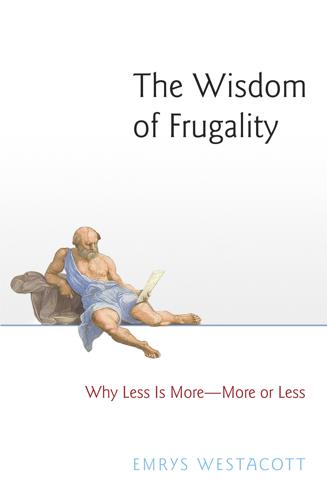
The Wisdom of Frugality: Why Less Is More - More or Less
by
Emrys Westacott
Published 14 Apr 2016
People who are dependent on the favor of others will almost inevitably be anxious about how they are viewed by their patrons. This anxiety is unpleasant in itself and constrains what they feel comfortable doing or saying. Ultimately it is likely to affect—one might well say infect—their thinking. As Upton Sinclair famously observed, “It is difficult to get a man to understand something, when his salary depends on his not understanding it.”52 Thus when Epicurus says that “the greatest fruit of self-sufficiency is freedom,” he primarily has in mind freedom from any such inhibitions or anxieties, a condition he views as both conducive to moral integrity and necessary for peace of mind.
…
Stephen E. Whicher (Boston: Houghton Mifflin, 1957), p. 78. 48. Marcus Aurelius, Meditations, III, p. 28. 49. Ibid., p. 27. 50. Seneca, “Consolation of Helva,” in The Stoic Philosophy of Seneca, p. 117. 51. Epicurus, “Fragments,” in The Stoic and Epicurean Philosophers, p. 51. 52. Upton Sinclair, I, Candidate for Governor: And How I Got Licked (Berkeley: University of California Press, 1994). 53. See Mihaly Csikszentmihalyi, Flow: The Psychology of Optimal Experience (New York: Harper & Row, 1990). 54. The term “frugal zealot” is taken from Dacyczyn, author of The Complete Tightwad Gazette. 55.
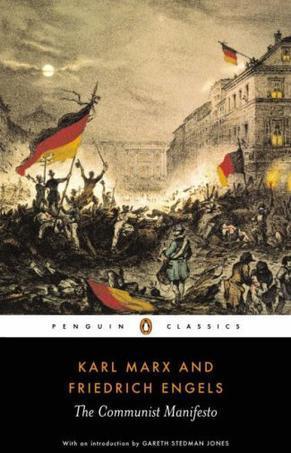
The Communist Manifesto
by
Karl Marx
and
Friedrich Engels
Published 1 Aug 2002
Somerset Maugham, 0-553-21392-X THE BALLAD OF THE SAD CAFE AND OTHER STORIES, Carson McCullers, 0-553-27254-3 THE HEART IS A LONELY HUNTER, Carson McCullers, 0-553-26963-1 THE MEMBER OF THE WEDDING, Carson McCullers, 0-553-25051-5 BILLY BUDD, SAILOR AND OTHER STORIES, Herman Melville, 0-553-21274-5 MOBY-DICK, Herman Melville, 0-553-21311-3 ON LIBERTY and UTILITARIANISM, John Stuart Mill, 0-553-21414-4 THE ANNOTATED MILTON, John Milton, 0-553-58110-4 THE SCARLET PIMPERNEL, Baroness Emmuska Orczy, 0-553-21402-0 COMMON SENSE, Thomas Paine, 0-553-21465-9 THE DIALOGUES OF PLATO, Plato, 0-553-21371-7 THE TELL-TALE HEART AND OTHER WRITINGS, Edgar Allan Poe, 0-553-21228-1 CYRANO DE BERGERAC, Edmond Rostand, 0-553-21360-1 IVANHOE, Sir Walter Scott, 0-553-21326-1 THE COMPLETE WORKS OF SHAKESPEARE (25 vols.), William Shakespeare PYGMALION and MAJOR BARBARA, George Bernard Shaw, 0-553-21408-X FRANKENSTEIN, Mary Shelley, 0-553-21247-8 THE JUNGLE, Upton Sinclair, 0-553-21245-1 THE WEALTH OF NATIONS, Adam Smith, 0-553-58597-5 ONE DAY IN THE LIFE OF IVAN DENISOVICH, Alexander Solzhenitsyn, 0-553-24777-8 THE COMPLETE PLAYS OF SOPHOCLES, Sophocles, 0-553-21354-7 DR. JEKYLL AND MR. HYDE, Robert Louis Stevenson, 0-553-21277-X KIDNAPPED, Robert Louis Stevenson, 0-553-21260-5 TREASURE ISLAND, Robert Louis Stevenson, 0-553-21249-4 DRACULA, Bram Stoker, 0-553-21271-0 UNCLE TOM'S CABIN, Harriet Beecher Stowe, 0-553-21218-4 GULLIVER'S TRAVELS AND OTHER WRITINGS, Jonathan Swift, 0-553-21232-X VANITY FAIR, William Makepeace Thackeray, 0-553-21462-4 WALDEN AND OTHER WRITINGS, Henry David Thoreau, 0-553-21246-X DEMOCRACY IN AMERICA, Alexis de Tocqueville, 0-553-21464-0 ANNA KARENINA, Leo Tolstoy, 0-553-21346-6 THE DEATH OF IVAN ILYICH, Leo Tolstoy, 0-553-21035-1 THE ADVENTURES OF HUCKLEBERRY FINN, Mark Twain, 0-553-21079-3 THE ADVENTURES OF TOM SAWYER, Mark Twain, 0-553-21128-5 THE COMPLETE SHORT STORIES OF MARK TWAIN, Mark Twain, 0-553-21195-1 A CONNECTICUT YANKEE IN KING ARTHUR'S COURT, Mark Twain, 0-553-21143-9 LIFE ON THE MISSISSIPPI, Mark Twain, 0-553-21349-0 THE PRINCE AND THE PAUPER, Mark Twain, 0-553-21256-7 PUDD'NHEAD WILSON, Mark Twain, 0-553-21158-7 20,000 LEAGUES UNDER THE SEA, Jules Verne, 0-553-21252-4 AROUND THE WORLD IN EIGHTY DAYS, Jules Verne, 0-553-21356-3 FROM THE EARTH TO THE MOON, Jules Verne, 0-553-21420-9 THE AENEID OF VIRGIL, Virgil, 0-553-21041-6 CANDIDE, Voltaire, 0-553-21166-8 THE INVISIBLE MAN, H.
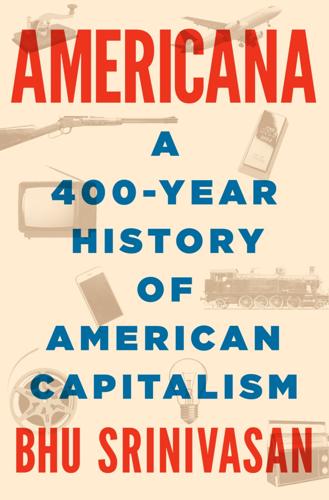
Americana: A 400-Year History of American Capitalism
by
Bhu Srinivasan
Published 25 Sep 2017
Unlike the Irish, this wave didn’t speak English. Unlike the Germans, they had little education and money to start life with. American society faced the immediate challenge of absorbing this endless influx. Never had so many different languages been sizably introduced into the country at the same time. Upton Sinclair’s novel told the story of a broad-shouldered, bull-like Lithuanian immigrant named Jurgis Rudkus. Fueled by optimism and lured by tales of endless wealth, Jurgis and members of his family land in New York and make their way to Chicago. The family begins life in America in a tenement community called Packingtown.
…
He was only an industrial input, a wage laborer, a cog in the machine—more so than ever, perhaps—but equally, he was a beneficiary of the system’s efficiency in that his purchasing power, unmatched anywhere else in the world, allowed him ownership of a car, the product of his own output in the Marxian sense. This egalitarianism, a counterargument to the Upton Sinclairs of the world, cemented capitalism as the American way, its defenders to be found across economic strata. Twenty-two RADIO By 1912 Philadelphia’s Wanamaker’s department store was well settled with its New York outpost after taking over the operations of A. T. Stewart, the pioneer of the American department store.
…
Haynes, 1895), 338. 13 million cattle: Bureau of the Census, “Historical Statistics of the United States, 1789–1945,” Washington DC, 1949, series E 136–151 (Meat—Slaughtering, Production, and Price: 1899 to 1945), 102. “twenty-five years ago”: Armour, “Packing Industry,” 338. “Here was the chute”: Upton Sinclair, The Jungle (1906; repr., Ann Arbor, MI: Borders Classics, 2006), 37. “organic matter was wasted”: Ibid., 44. “eat his dinner”: Ibid., 89. “did not shiver”: Ibid., 90. “Scraps of meat”: Ibid., 67. “grade of lard”: Ibid., 107. “fat of pork”: Ibid., 108. “this ingenious mixture”: Ibid., 109.

Americana
by
Bhu Srinivasan
Unlike the Irish, this wave didn’t speak English. Unlike the Germans, they had little education and money to start life with. American society faced the immediate challenge of absorbing this endless influx. Never had so many different languages been sizably introduced into the country at the same time. Upton Sinclair’s novel told the story of a broad-shouldered, bull-like Lithuanian immigrant named Jurgis Rudkus. Fueled by optimism and lured by tales of endless wealth, Jurgis and members of his family land in New York and make their way to Chicago. The family begins life in America in a tenement community called Packingtown.
…
He was only an industrial input, a wage laborer, a cog in the machine—more so than ever, perhaps—but equally, he was a beneficiary of the system’s efficiency in that his purchasing power, unmatched anywhere else in the world, allowed him ownership of a car, the product of his own output in the Marxian sense. This egalitarianism, a counterargument to the Upton Sinclairs of the world, cemented capitalism as the American way, its defenders to be found across economic strata. Twenty-two RADIO By 1912 Philadelphia’s Wanamaker’s department store was well settled with its New York outpost after taking over the operations of A. T. Stewart, the pioneer of the American department store.
…
Haynes, 1895), 338. 13 million cattle: Bureau of the Census, “Historical Statistics of the United States, 1789–1945,” Washington DC, 1949, series E 136–151 (Meat—Slaughtering, Production, and Price: 1899 to 1945), 102. “twenty-five years ago”: Armour, “Packing Industry,” 338. “Here was the chute”: Upton Sinclair, The Jungle (1906; repr., Ann Arbor, MI: Borders Classics, 2006), 37. “organic matter was wasted”: Ibid., 44. “eat his dinner”: Ibid., 89. “did not shiver”: Ibid., 90. “Scraps of meat”: Ibid., 67. “grade of lard”: Ibid., 107. “fat of pork”: Ibid., 108. “this ingenious mixture”: Ibid., 109.
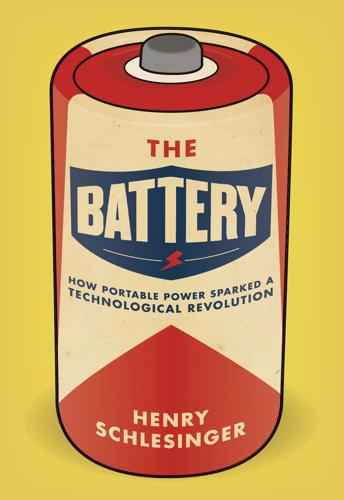
The Battery: How Portable Power Sparked a Technological Revolution
by
Henry Schlesinger
Published 16 Mar 2010
A ruthless real estate tycoon who ran for Congress as a dyed-in-the-wool socialist, Wilshire attracted a high-profile salon of radical intellectuals and writers that included H. G. Wells, George Bernard Shaw, and Upton Sinclair. Then in 1925 he began promoting the I-ON-A-CO electric collar, an electromagnetic device that very much resembled a horse harness. The collar was based on the extraordinarily dubious theory that an electromagnetic field somehow interacted with the body’s natural iron content to restore health. According to most accounts, Wilshire was genuinely sincere in his belief that the belt provided medicinal benefits and even enlisted his friend Upton Sinclair to promote the thing. Wilshire himself not only invested heavily in the thing, but took to the road carrying with him all of the credibility of a millionaire.
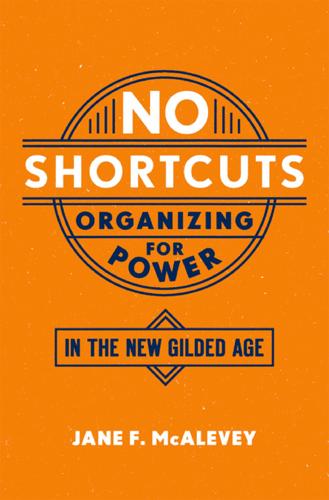
No Shortcuts: Organizing for Power in the New Gilded Age
by
Jane F. McAlevey
Published 14 Apr 2016
The UFCW was founded in 1979 through several mergers of four older unions, including the Amalgamated Meat Cutters and Butcher Workmen of North America, chartered by the American Federation of Labor in 1897, which in 1937 was reformulated by the Congress of Industrial Organizations, (CIO), into a new union, the Packinghouse Workers Organizing Committee (PWOC).8 The PWOC, a union heavily influenced by Communists and socialists in its heyday,9 was the union that Saul Alinsky partnered with in Chicago in his first community organizing effort, the Back of the Yards Council.10 Upton Sinclair described the conditions in the Chicago meat-packing plants in his 1906 novel The Jungle.11 The UFCW had other Smithfield Foods plants in several Midwestern states that had long been under union contract. But the union presence in these Midwestern plants was not the result of contemporary organizing by the UFCW, but rather of Smithfield Foods’ aggressive acquisition during the 1980s of smaller companies like John Morrell and Farmland, plants and companies that had been unionized by the PWOC in its more radical days, in the decades prior to the election of Ronald Reagan and Reagan’s campaign to deunionize America.
…
The other three unions that merged with the PWOC to form the modern union were the Barbers, Beauticians and Allied Industries International Association; Boot and Shoe Workers Union; and the Retail Clerks International Union. 9.Judith Stepan-Norris and Maurice Zeitlin, Left Out: Reds and America’s Industrial Unions, Cambridge: Cambridge University Press, 2002. 10.Saul Alinsky, “Community Analysis and Organization,” American Journal of Sociology, Vol. 46, No. 6 (May 1941), 797–808. 11.Upton Sinclair, The Jungle: The Uncensored Version, Amherst, Mass.: Seven Treasures Publications, 2011. 12.The National Labor Relations Board, “Decision and Order, The Smithfield Packing Company, Inc., Tar Heel Division, and the United Food and Commercial Workers Local 204, AFL-CIO, CLC, December 16, 2004.”
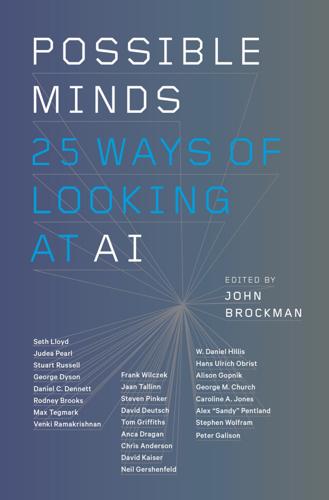
Possible Minds: Twenty-Five Ways of Looking at AI
by
John Brockman
Published 19 Feb 2019
We will no longer be needed for anything, because all jobs can be done more efficiently by machines. The successful creation of AGI would be the biggest event in human history, so why is there so little serious discussion of what it might lead to? Here again, the answer involves multiple reasons. First, as Upton Sinclair famously quipped, “It is difficult to get a man to understand something, when his salary depends on his not understanding it.”* For example, spokesmen for tech companies or university research groups often claim there are no risks attached to their activities even if they privately think otherwise.
…
* Vincent C. Müller and Nick Bostrom, “Future Progress in Artificial Intelligence: A Survey of Expert Opinion,” in Fundamental Issues of Artificial Intelligence, ed. Vincent C. Müller (Switzerland: Springer International Publishing, 2016), 555–72, https://nickbostrom.com/papers/survey.pdf. * Upton Sinclair, I, Candidate for Governor: And How I Got Licked (Berkeley: University of California Press, 1994), 109. * https://futureoflife.org/ai-principles. * See, for example, Hannah Arendt, Eichmann in Jerusalem: A Report on the Banality of Evil (New York: Penguin Classics, 2006). * See Elizabeth Kolbert, The Sixth Extinction: An Unnatural History (New York: Henry Holt, 2014)
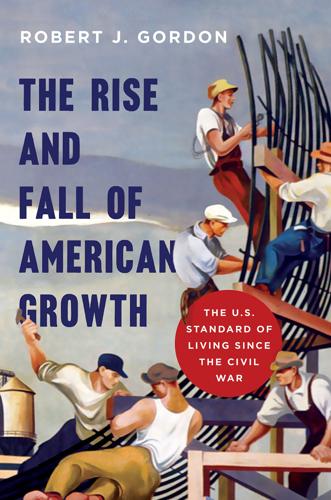
The Rise and Fall of American Growth: The U.S. Standard of Living Since the Civil War (The Princeton Economic History of the Western World)
by
Robert J. Gordon
Published 12 Jan 2016
New York City bakers in the 1880s stretched and preserved their dough with doses of alum and copper. “Customers were continually enraged to discover chunks of foreign matter in their loaves, such as oven ash and grit from the baker’s machinery.”57 Worse yet were standard practices in the meat industry. The most famous protest against these conditions was Upton Sinclair’s famous 1906 The Jungle, an account of the grisly conditions of production and employment in the Chicago meat-packing industry. He described unsanitary conditions in the making of sausages and even implied that occasionally a worker fell into a vat and became part of the product. To disguise the smell of rotten meat and other food spoilage, food producers used additives to enhance the flavor, smell, and/or color of food products.
…
A retired brewer in Rochester, New York revealed that “salicylic acid, quassia wood, tannin, glycerine, and grape sugar” were added to his firm’s beer during its processing. A retired liquor manufacturer in New York City told a reporter, “A man stands about as good a chance of being struck by lightning as of buying pure brandy in New York.”47 Anticipating Upton Sinclair’s unsettling exposé of the Chicago stockyards in 1906, the New York Council of Hygiene reported in 1869 that foods hung on racks or placed on counters “undergo spontaneous deterioration becoming absolutely poisonous.”48 In the early 1880s, little progress had been made: Much of New York City’s meat supply … reached the stockyards afoot through labyrinths of residential streets, strewing manure and trailing clouds of dust and flies.
…
The New York’s Ladies’ Protective Health Association (LPHA), established in 1884, was soon joined by similar organizations in a nationwide reform movement to force slaughterhouse owners to make drastic reforms, and this political pressure was resisted fiercely by lobbying and political contributions by the owners, who were eventually defeated by the influence of public opinion on legislation. The grand climax of the fight between the reformers and the abusive profit-oriented suppliers of adulteration and contamination came suddenly. In February 1906, Upton Sinclair’s The Jungle was published. A semifictionalized account of health and working conditions in the Chicago stockyards, The Jungle was intended by Sinclair to be “the Uncle Tom’s Cabin of the labor movement.”50 Barely twenty years after the revelations of conditions in New York by the LPHA, the details about Chicago were even more sickening; the meat, “without being washed, … was pushed from room to room in rotten box carts, all the while collecting dirt, splinters, floor filth, and the expectoration of tubercular and other diseased workers.”51 The book became an instant bestseller, and because it accused federal meat inspectors of taking bribes, it immediately caught the attention of President Theodore Roosevelt, who launched an investigation.
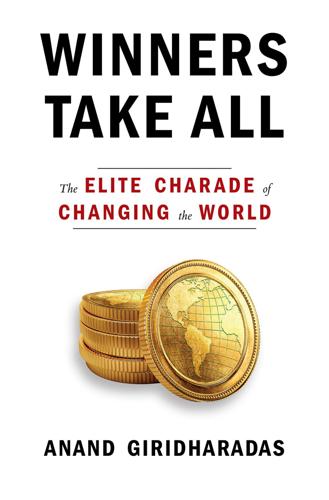
Winners Take All: The Elite Charade of Changing the World
by
Anand Giridharadas
Published 27 Aug 2018
Another, Amancio Ortega, who built the retailer Zara, was famous for applying advanced technology to manufacturing and for automating his factories. The final member of the gang of eight, Warren Buffett, was a major shareholder in Apple and IBM. CHAPTER 4 THE CRITIC AND THE THOUGHT LEADER It is difficult to get a man to understand something when his salary depends on not understanding it. —UPTON SINCLAIR In October 2011, in the sleepy village of Camden, Maine, Amy Cuddy prepared to give her first proper talk outside academia. Cuddy was a social psychologist at Harvard Business School who had spent more than a decade publishing papers on the workings of prejudice, discrimination, and systems of power.
…
And subsidies have consequences, as the Harvard Business School professor Gautam Mukunda observes in a piece about how Wall Street clings to power, including by cultivating ideas that make us believe “that those with power are good and just and doing the right thing”: The ability of a powerful group to reward those who agree with it and punish those who don’t also distorts the marketplace of ideas. This isn’t about corruption—beliefs naturally shift in accord with interests. As Upton Sinclair said, “It is difficult to get a man to understand something when his salary depends on not understanding it.” The result can be an entire society twisted to serve the interests of its most powerful group. The idea that thought leaders are unaffected by their patrons is also contradicted by their very own speakers bureau websites, which illustrate how the peddlers of potentially menacing ideas are rendered less scary to gatherings of the rich and powerful.
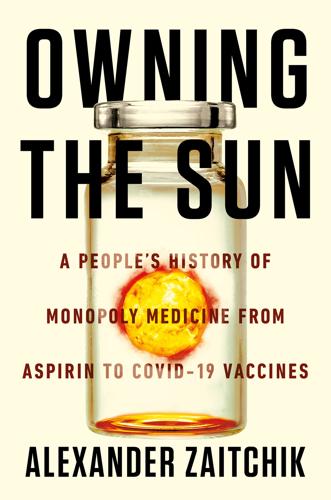
Owning the Sun
by
Alexander Zaitchik
Published 7 Jan 2022
Some of them—covetous of Bayer’s monopoly profits and success in the courts—were also beginning the process of embracing Stewart’s once-heretical ideas about “ethical patenting.” The sudden and unexpected turn in the Bayer patent war caused by the Collier’s series proved decisive in shaping and passing the Pure Food and Drug Act of 1906. Usually understood as the child of Upton Sinclair’s depiction of the Chicago meatpacking industry in The Jungle, the 1906 law was just as much a child of Adams’s Collier’s series and other contemporaneous reports of deaths from black market Aspirin. The law made the selling of fake drugs a federal offense and required mandatory labeling for drugs containing a number of ingredients, including acetanilide.
…
Three DEATH OF THE TABOO Sunshine in a Bottle THE GREAT WAR WAS A SHORT ONE FOR THE UNITED STATES. But in sixteen months of fighting alongside the Entente powers, 116,000 American soldiers were killed. Contemporaries grasped that a break had occurred, forming two distinct periods in the political and cultural life of the country. The defining novel of the prewar decade was Upton Sinclair’s The Jungle, a work of social protest and journalism that captured the tone and preoccupations of the Progressive Era. Sinclair’s depiction of the Chicago meatpacking industry will forever be paired with the Pure Food and Drug Act of 1906, signed by Teddy Roosevelt six months after the novel’s publication.
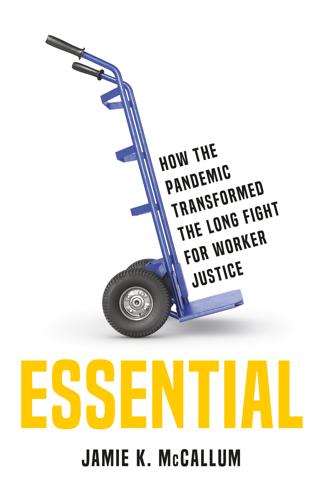
Essential: How the Pandemic Transformed the Long Fight for Worker Justice
by
Jamie K. McCallum
Published 15 Nov 2022
“She was deeply loved at the job,” San told me. “Everyone called her ‘mom’ or ‘sister.’” This fictive kinship with her coworkers and managers didn’t protect her from brutal exploitation. Despite surviving harrowing dangers in her life, she was unable to escape the hazards of her job at an American slaughterhouse. Upton Sinclair called the early twentieth-century meatpacking industry “the jungle” because lawlessness reigned. Modern meatpacking facilities are slightly different—they’re run by crooks who make all the laws. A cursory review of OSHA reports offers a grim portrait of the industry: “Employee’s arm amputated in Meat Auger.”
…
One would think that workers who feed the country would enjoy a degree of structural power, a built-in bargaining chip when it comes time to talk wages and safety conditions. A look back at the history of the domestic meatpacking industry reveals a pattern: When workers are organized, working conditions improve. When workers are without unions, as most are today, they’re as sacrificial as the animals they’re processing. In 1905, muckraker Upton Sinclair published The Jungle, a novel based on several weeks of undercover work in a Chicago beef-packing plant. The book, which documented the plant’s horrific labor and sanitation practices, presented a scathing portrait of the industry’s brutality at the turn of the century. “It was to be counted as a wonder,” Sinclair wrote, “that there were not more men slaughtered than cattle.”26 The plight of the factory’s mostly immigrant workforce was largely overlooked by the book’s readers, who were more concerned with the accounts of feces, vermin, and human body parts contaminating the meat they were consuming.
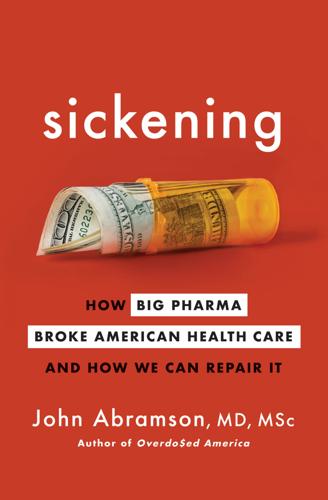
Sickening: How Big Pharma Broke American Health Care and How We Can Repair It
by
John Abramson
Published 15 Dec 2022
Or when the American College of Cardiology and the American Heart Association recommended cholesterol-lowering statin therapy for so many healthy Americans without heart disease (chapter 3). Doctors’ professional societies are dependent on money from industry, even as JAMA asks them to eliminate conflicts of interest in their development of guidelines. As the political writer and muckraker Upton Sinclair wrote: “It is difficult to get a man to understand something, when his salary depends on his not understanding it.” The National Academy of Medicine and the U.S. Agency for Healthcare Research and Quality have made repeated appeals, asking for CPGs that are independent of commercial influence, but those appeals have failed.
…
“Pharmaceutical and biotechnology”: “American College of Rheumatology Principles Regarding External Entity Support for Rheumatology Fellowship Training,” ACR Committee on Rheumatology Training and Workforce Issues, January 2015, 1–5, https://www.rheumatology.org/Portals/0/Files/Principles-Governing-Industry-Support-for-Rheumatology-Fellowship-Training.pdf. “It is difficult to get”: Upton Sinclair, I, Candidate for Governor: And How I Got Licked (Berkeley: University of California Press, 1934), 109. “reproducibility, rigor”: Marcia McNutt, “Journals Unite for Reproducibility,” Science 346, no. 6 (2014): 679. “facts determined by experiment”: “History of the Royal Society,” royalsociety.org, https://royalsociety.org/about-us/history/.
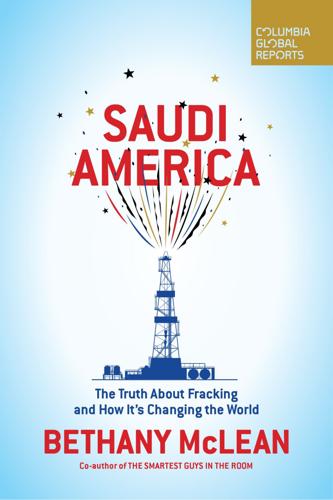
Saudi America: The Truth About Fracking and How It's Changing the World
by
Bethany McLean
Published 10 Sep 2018
“The industry has a very bad history of money going into it and never coming out.” It wasn’t until later that the industrywide skepticism burst into the open. No one would ever mistake David Einhorn for Daniel Plainview, the silver miner-turned-oilman played by Daniel Day Lewis in There Will Be Blood, the movie inspired by Upton Sinclair’s novel Oil! Tall and slightly framed, the baby-faced Einhorn spoke with a high, nasal-inflected voice from behind a podium at the 2015 Ira W. Sohn Investment Research Conference, known as the Super Bowl of the hedge fund industry. At the Sohn conference in May 2008, he’d made a now-famous proclamation that the investment bank Lehman Brothers was in far worse shape than it was letting on.
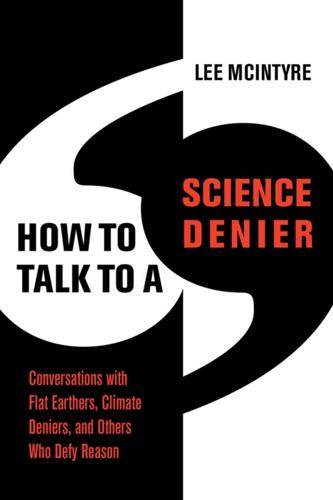
How to Talk to a Science Denier: Conversations With Flat Earthers, Climate Deniers, and Others Who Defy Reason
by
Lee McIntyre
Published 14 Sep 2021
Dave and Erin suggested the Eat’n Park in Washington, Pennsylvania, which had a back room with plenty of tables that we could use for a spirited but private conversation. As the day drew closer, I was already in Pittsburgh to give some talks at Carnegie Mellon, and crossing my fingers for what lay ahead. I began to get a little nervous. My starting assumption was that most coal miners would probably be climate deniers, based on the famous bit of wisdom from Upton Sinclair that “it’s difficult to get a man to understand something when his salary depends on him not understanding it.”16 But I’d also read a piece in the New York Times titled “People in Coal Country Worry about the Climate, Too,” which gave me a bit of pause. Who was I to prejudge? As the article said, “In this hyperpolarized era [it’s] too easy to conflate geography with identity.”17 So I decided to back off my expectations and just hear what people had to say.
…
I brought up the point of how it was probably difficult for him to hold that view, since it put him at odds with some people in his profession. I said, “How do you square the idea that you were doing something that hurt the Earth, and you knew it, with the idea that you had to do it anyway?” I shared the Upton Sinclair quotation about how it was hard to get someone to believe in something when their salary depended on them not believing it. Wouldn’t it be easier if he didn’t believe in climate change? Then Steve said something so profound that it changed my perspective on the whole issue. “You’ve got to understand that coal miners are fatalistic,” he said.
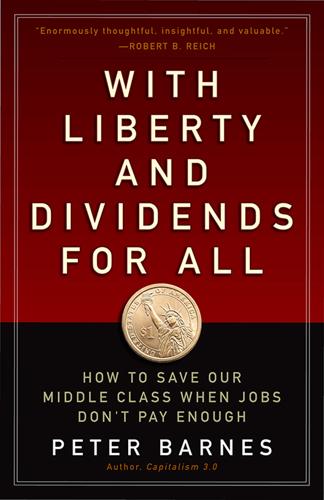
With Liberty and Dividends for All: How to Save Our Middle Class When Jobs Don't Pay Enough
by
Peter Barnes
Published 31 Jul 2014
For one thing, a 2 percent sales tax wouldn’t have raised enough money to pay the proposed pensions. For another, since average wages at the time were around $100 a month, a $200-per-month pension would have been unseemly as well as unaffordable. But there’s no doubt that the Townsend movement, along with others led by Upton Sinclair and Huey Long, pushed Congress to pass Social Security in 1935 and expand it in 1939. If such mass movements could be built prior to the Internet, might not comparable ones arise today? With regard to nature, there are similar possibilities. Today’s environmental movement exploded in 1970 when the first Earth Day demonstrations mobilized twenty million people across the country.

Beautiful security
by
Andy Oram
and
John Viega
Published 15 Dec 2009
I have arranged this chapter into a few core topics: • “Cloud Computing and Web Services: The Single Machine Is Here” on page 150 • “Connecting People, Process, and Technology: The Potential for Business Process Management” on page 154 • “Social Networking: When People Start Communicating, Big Things Change” on page 158 • “Information Security Economics: Supercrunching and the New Rules of the Grid” on page 162 • “Platforms of the Long-Tail Variety: Why the Future Will Be Different for Us All” on page 165 Before I get into my narrative, let me share a few quick words said by Upton Sinclair and quoted effectively by Al Gore in his awareness campaign for climate change, An Inconvenient Truth, and which I put on a slide to start my public speaking events: It’s difficult to get a man to understand something when his salary depends on him not understanding it. Challenging listeners to question the reason why they are being presented ideas serves as a timely reminder of common, subtle bias for thoughts and ideas presented as fact.
…
Several years before I worked for Microsoft, Professor Fred Piper at the Information Security Group approached me for an opinion on the day that he was to speak at the British Computer Society. He posed to me a straightforward question: “Would Microsoft have been so successful if security was prominent in Windows from day one?” At this point, I should refer you back to my Upton Sinclair quote earlier in this chapter; but it does leave an interesting thought about the role security will have in the overall landscape of information technology evolution. I was once accused of trivializing the importance of security when I put up a slide at a conference with the text “Security is less important than performance, which is less important than functionality,” followed by a slide with the text “Operational security is a business support function; get over your ego and accept it.”
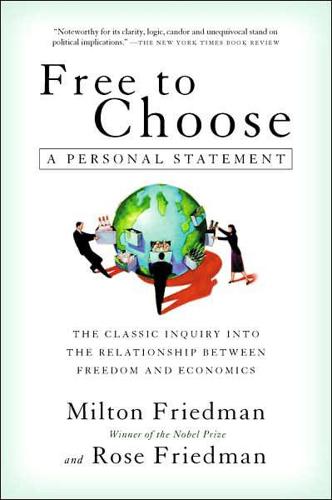
Free to Choose: A Personal Statement
by
Milton Friedman
and
Rose D. Friedman
Published 2 Jan 1980
It has gone through several life cycles and has been exhaustively studied and analyzed. It provides an excellent example to illustrate the natural history of government intervention in the marketplace. The Food and Drug Administration, initially established in 1906 in response to the outcry that followed Upton Sinclair's novel The Jungle, which exposed unsanitary conditions in the Chicago slaughtering and meat-packing houses, has also gone through several life cycles. Aside from its intrinsic interest, it serves as something of a bridge between the earlier specific-industry type of regulation and the more recent functional or cross-industry type of regulation because of the change that occurred in its activities after the 1962 Kefauver amendments.
…
FOOD AND DRUG ADMINISTRATION By contrast with the ICC, the second major foray of the federal government into consumer protection—the Food and Drug Act of 1906—did not arise from protests over high prices, but from concern about the cleanliness of food. It was the era of the muckraker, of investigative journalism. Upton Sinclair had been sent by a socialist newspaper to Chicago to investigate conditions in the stockyards. The result was his famous novel, The Jungle, which he wrote to create sympathy for the workers, but which did far more to arouse indignation at the unsanitary conditions under which meat was processed.
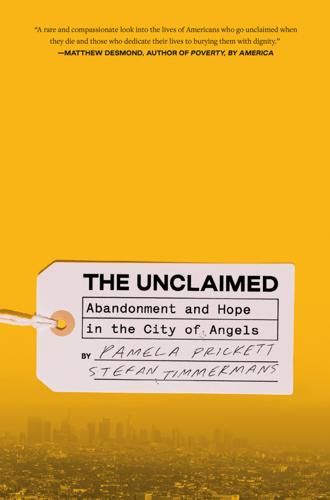
The Unclaimed: Abandonment and Hope in the City of Angels
by
Pamela Prickett
and
Stefan Timmermans
Published 11 Mar 2024
In the shadow of Evergreen’s ornate granite and sandstone mausoleums, L.A.’s anonymous, barren potter’s field served as a moral warning to the intemperate and the fallen. Many poor Americans perceived a “correlation between the quality of one’s grave and one’s soul.” They were punished in death, guilty by virtue of their destitution. In Upton Sinclair’s The Jungle, a mother loses her senses when she realizes that her child’s corpse might be turned over to the city to be buried in a pauper’s grave. “If it had come to this,” the narrator says, “they might as well give up at once, and be buried all of them together!” The expectation that relatives should bury their dead was codified in American law in 1856 after New York City widened Beekman Street in downtown Manhattan.
…
GO TO NOTE REFERENCE IN TEXT three thousand Jewish burial societies Jewish Genealogical Society. GO TO NOTE REFERENCE IN TEXT “correlation between the quality” DiGirolamo, “Newsboy Funerals.” GO TO NOTE REFERENCE IN TEXT “If it had come to this” Upton Sinclair, The Jungle (New York: Doubleday, 1906), chap. 13. GO TO NOTE REFERENCE IN TEXT “natural and fundamental” right Tanya D. Marsh, “When Dirt and Death Collide: Legal and Property Interests in Burial Places,” Probate and Property Magazine, American Bar Association, March 1, 2017.
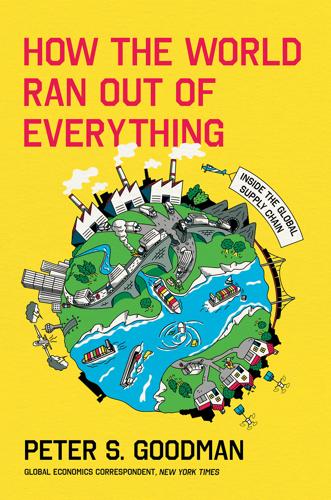
How the World Ran Out of Everything
by
Peter S. Goodman
Published 11 Jun 2024
Here was the place where more than 80 percent of the national meat supply20 was processed, a stinking zone of dismemberment in which 9 million animals met their messy ends each year. The Chicago stockyards were the antecedent to Tin Aye’s tragic experience, as captured by the muckraking journalist Upton Sinclair, whose 1906 novel, The Jungle, revealed the horrors of the slaughterhouses. “All day long the blazing midsummer sun21 beat down upon that square mile of abominations: upon tens of thousands of cattle crowded into pens whose wooden floors stank and steamed contagion; upon bare, blistering, cinder-strewn railroad tracks, and huge blocks of dingy meat factories, whose labyrinthine passages defied a breath of fresh air to penetrate them . . . ,” Sinclair wrote.
…
Cheyenne, Wyoming: Ibid. 17. wealthiest families of the era: Ibid. 18. as much as 86 percent: “Report of the Federal Trade Commission on the Meat-Packing Industry,” Summary and Part 1, June 24, 1919, 31, https://www.google.com/books/edition/Report_of_the_Federal_Trade_Commission_o/0GgJAQAAMAAJ?hl=en&gbpv=1. 19. 21,000 head of cattle: Knowlton, Cattle Kingdom, chapter 7. 20. the national meat supply: Ibid. 21. “the blazing midsummer sun”: Upton Sinclair, The Jungle (1906; repr., Apple Books, ebook), chapter 26. 22. “at the mercy”: “Report of the Federal Trade Commission,” 24. 23. “The menace of this concentrated control”: Ibid., 32. 24. “an end to the arrogance”: “Ronald Reagan’s Announcement for Presidential Candidacy, 1979,” January 13, 1979, Ronald Reagan Presidential Library & Museum, https://www.reaganlibrary.gov/archives/speech/ronald-reagans-announcement-presidential-candidacy-1979. 25. financed by American industry: Peter S.
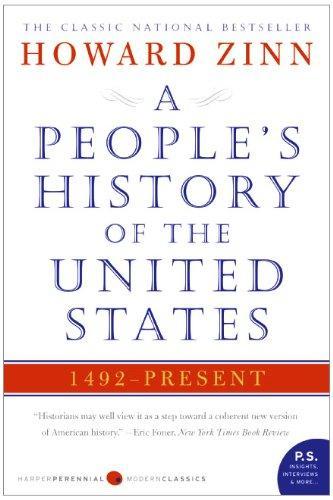
A People's History of the United States
by
Howard Zinn
Published 2 Jan 1977
He watched the United States and other Western countries go about the world and wrote in the New York Herald as the century began: “I bring you the stately matron named Christendom, returning bedraggled, besmirched, and dishonored from pirate raids in Kiao-Chou, Manchuria, South Africa, and the Philippines, with her soul full of meanness, her pocket full of boodle, and her mouth full of pious hypocrisies.” There were writers of the early twentieth century who spoke for socialism or criticized the capitalist system harshly—not obscure pamphleteers, but among the most famous of American literary figures, whose books were read by millions: Upton Sinclair, Jack London, Theodore Dreiser, Frank Norris. Upton Sinclair’s novel The Jungle, published in 1906, brought the conditions in the meatpacking plants of Chicago to the shocked attention of the whole country, and stimulated demand for laws regulating the meat industry. But also, through the story of an immigrant laborer, Jurgis Rudkus, it spoke of socialism, of how beautiful life might be if people cooperatively owned and worked and shared the riches of the earth.
…
But also, through the story of an immigrant laborer, Jurgis Rudkus, it spoke of socialism, of how beautiful life might be if people cooperatively owned and worked and shared the riches of the earth. The Jungle was first published in the Socialist newspaper Appeal to Reason; it was then read by millions as a book, and was translated into seventeen languages. One of the influences on Upton Sinclair’s thinking was a book, People of the Abyss, by Jack London. London was a member of the Socialist party. He had come out of the slums of San Francisco, the child of an unwed mother. He had been a newsboy, a cannery worker, a sailor, a fisherman, had worked in a jute mill and a laundry, hoboed the railroads to the East Coast, been clubbed by a policeman on the streets of New York and arrested for vagrancy in Niagara Falls, watched men beaten and tortured in jail, pirated oysters in San Francisco Bay, read Flaubert, Tolstoy, Melville, and the Communist Manifesto, preached socialism in the Alaskan gold camps in the winter of 1896, sailed 2,000 miles back through the Bering Sea, and became a world-famous writer of adventure books.
…
George Creel and the government were behind the formation of an American Alliance for Labor and Democracy, whose president was Samuel Gompers and whose aim was to “unify sentiment in the nation” for the war. There were branches in 164 cities; many labor leaders went along. According to James Weinstein, however, the Alliance did not work: “Rank-and-file working class support for the war remained lukewarm. . . .” And although some prominent Socialists—Jack London, Upton Sinclair, Clarence Darrow—became prowar after the U.S. entered, most Socialists continued their opposition. Congress passed, and Wilson signed, in June of 1917, the Espionage Act. From its title one would suppose it was an act against spying. However, it had a clause that provided penalties up to twenty years in prison for “Whoever, when the United States is at war, shall wilfully cause or attempt to cause insubordination, disloyalty, mutiny, or refusal of duty in the military or naval forces of the United States, or shall wilfully obstruct the recruiting or enlistment service of the U.S. . . .”
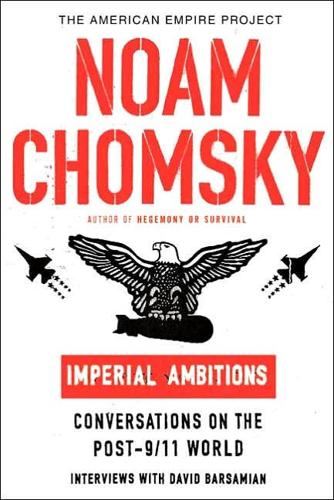
Imperial Ambitions: Conversations on the Post-9/11 World
by
Noam Chomsky
and
David Barsamian
Published 4 Oct 2005
In these exchanges, appearing for the first time in print, Chomsky offers his frank, provocative, and informed views on the invasion and occupation of Iraq, the doctrine of preemptive strikes against so-called rogue states, and the growing threat to international peace posed by the U.S. drive for domination. In his inimitable style, Chomsky also dissects the propaganda system that fabricates a mythic past and airbrushes inconvenient facts out of history. Barsamian, a recipient of the ACLU’s Upton Sinclair Award for independent journalism, has conducted more interviews and radio broadcasts with Chomsky than any other journalist. Enriched by their unique rapport, Imperial Ambitions explores new ground, including the 2004 presidential campaign and election, the future of Social Security, and the increasing threat of global warming.
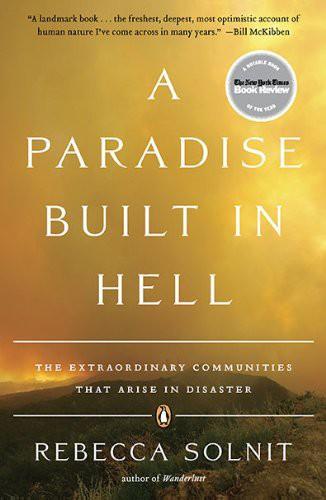
A Paradise Built in Hell: Extraordinary Communities That Arise in Disaster
by
Rebecca Solnit
Published 31 Aug 2010
A race war seemed near in Missouri after a grand jury investigated a white mob of lynchers. Two thousand Japanese immigrants were denounced for violating labor law to work in the Alaska canneries. Other stories from around the nation in the weeks after the earthquake were about union power, about the reformist impact of Upton Sinclair’s novel The Jungle, exposing the foul Chicago meatpacking industry, and the case for breaking up Standard Oil’s monopoly. The society was made of schisms at that moment. It’s this pervasive atmosphere of conflict that made Jacobson’s “millennial good fellowship” so remarkable. GENERAL FUNSTON’S FEAR Shoot to Kill Brigadier General Frederick Funston, the commanding officer at the Presidio military base on San Francisco’s northern edge, perceived his job as saving the city from the people, rather than saving the people from the material city of cracked and crumbling buildings, fallen power lines, and towering flames.
…
We have lost the power even of imagining what the ancient realization of poverty could have meant; the liberation from material attachments, the unbribed soul, the manlier indifference, the paying our way by who we are and not by what we have, the right to fling away our life at any moment.” Upton Sinclair’s novel The Jungle made the invisible lives of the poor living nearby in Chicago real to her, and this “made me feel that from then on my life was to be linked to theirs, their interests were to be mine; I had received a call, a vocation, a direction to my life.” She used the language of religion intentionally.
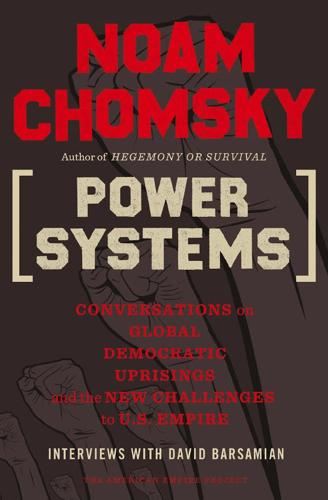
Power Systems: Conversations on Global Democratic Uprisings and the New Challenges to U.S. Empire
by
Noam Chomsky
and
David Barsamian
Published 1 Nov 2012
A professor of linguistics and philosophy at MIT, he is widely credited with having revolutionized modern linguistics. He lives outside Boston, Massachusetts. DAVID BARSAMIAN, director of the award-winning and widely syndicated Alternative Radio (www.alternativeradio.org), is the winner of the Lannan Foundation’s Cultural Freedom Fellowship and the ACLU’s Upton Sinclair Award for independent journalism. Barsamian lives in Boulder, Colorado. Chomsky and Barsamian have collaborated on two previous books for the American Empire Project: Imperial Ambitions and What We Say Goes. The American Empire Project In an era of unprecedented military strength, leaders of the United States, the global hyperpower, have increasingly embraced imperial ambitions.
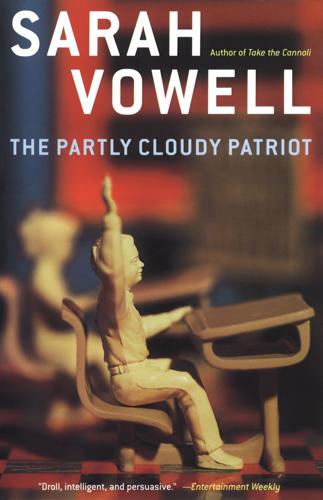
The Partly Cloudy Patriot
by
Sarah Vowell
Published 26 Aug 2002
I know this partly because the first chance she got to return my phone call about all of this was at 1:15 in the morning. This poor reporter, this gatekeeper of democracy, was getting her first break in the day in the middle of the night. And, considering that I am a writer who has publicly misspelled names, confused Sinclair Lewis with Upton Sinclair, and gotten who knows how many things wrong over the years, I am one pot who should not be calling the Gray Lady black. Both The New York Times and The Washington Post did publish corrections. And this is what Seelye told me. About the students of Concord High, she said, “These kids are well-intentioned.
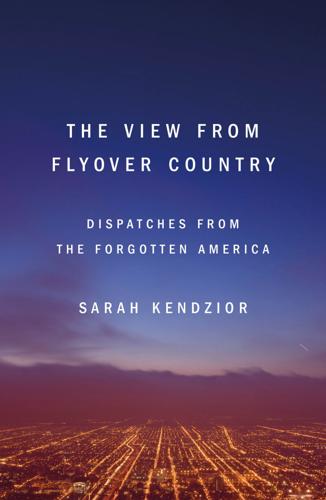
The View From Flyover Country: Dispatches From the Forgotten America
by
Sarah Kendzior
Published 24 Apr 2015
Dispensable Automatons Is academia a cult? That is debatable, but it is certainly a caste system. Outspoken academics like Pannapacker are rare: most tenured faculty have stayed silent about the adjunct crisis. “It is difficult to get a man to understand something when his job depends on not understanding it,” wrote Upton Sinclair, the American author famous for his essays on labor exploitation. Somewhere in America, a tenured professor may be teaching about his work as a nearby adjunct holds office hours out of her car. On Twitter, I asked why so many professors who study injustice ignore the plight of their peers. “They don’t consider us their peers,” the adjuncts wrote back.
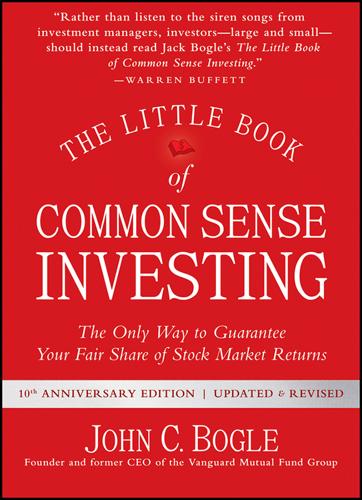
The Little Book of Common Sense Investing: The Only Way to Guarantee Your Fair Share of Stock Market Returns
by
John C. Bogle
Published 1 Jan 2007
It’s amazing how difficult it is for a man to understand something if he’s paid a small fortune not to understand it. What’s more, it is hardly in the interest of our financial intermediaries to encourage their investor/clients to recognize the obvious reality. Indeed, the self-interest of the leaders of our financial system almost compels them to ignore these relentless rules. Paraphrasing Upton Sinclair: It’s amazing how difficult it is for a man to understand something if he’s paid a small fortune not to understand it. Our system of financial intermediation has created enormous fortunes for those who manage other people’s money. Their self-interest will not soon change. But as an investor, you must look after your self-interest.
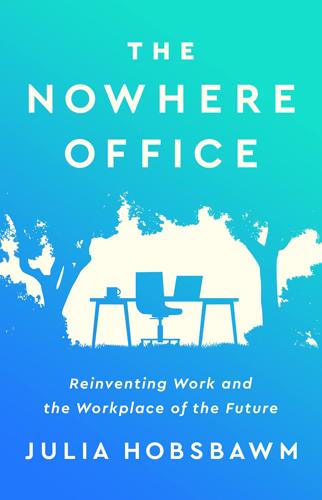
The Nowhere Office: Reinventing Work and the Workplace of the Future
by
Julia Hobsbawm
Published 11 Apr 2022
A key study published in the International Journal of Productivity and Performance Management concludes: As expected, increased stress leads to reduced productivity and increased satisfaction leads to increased productivity. When work begins to overlap with workers’ personal lives this implies a negative effect on productivity. Quality work is more related to conscientiousness and personal satisfaction than workload. Energetic and active individuals affect productivity positively.7 Upton Sinclair’s 1906 famous novel The Jungle, about a meat-packing factory, became a classic for articulating the stress loaded on manual workers. ‘If we are the greatest nation the sun ever shone upon it would seem to be mainly because we have been able to goad our wage-earners to this pitch of frenzy’, he wrote.
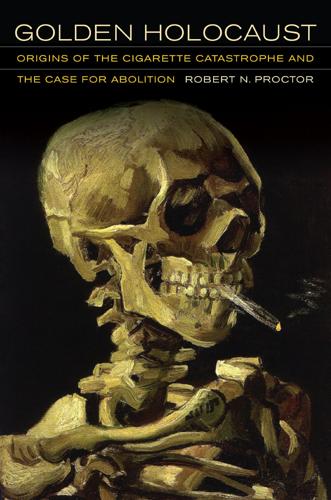
Golden Holocaust: Origins of the Cigarette Catastrophe and the Case for Abolition
by
Robert N. Proctor
Published 28 Feb 2012
With very few exceptions, tobacco almost everywhere is essentially unregulated. French cigarettes must contain at least 85 percent tobacco, and Germans don’t allow nicotine to be freebased with ammonia, but most of the rest is the Wild West. Dog food has been more tightly regulated; the stockyards in Upton Sinclair’s Jungle were clean by comparison. Try to imagine the inside of a cigarette factory, and if you can’t, think about why that might be so. Almost as invisible is the political influence wielded by the tobacco lobby. Readers may be surprised to learn that President Lyndon Johnson refused to take on Big Tobacco, fearing his party’s loss of the presidency.
…
are therefore questions that are not always easy to answer. Knowledge and ignorance can have complicated biogeographies, and we also have to reckon with the corporate equivalent of a kind of psychological denial: people don’t always want to know what they could and perhaps should know, especially if the knowledge is going to be painful. Upton Sinclair in 1935 noted how difficult it was to get someone to understand something “when his salary depends upon his not understanding it.”3 Avoiding the truth is probably easier when that is what is expected of you on the job. Psychological and sociological complications of this sort can frustrate our search for answers to “who knew what and when” in the realm of tobacco hazards.
…
If even the cleanest cigarette smoke will kill you, does it really matter if there is extra filth in the form of metal shards or insect excrement? Perhaps this is different from, say, fecal pellets in your cereal or hair in your hot dog. We don’t really have much of a common cultural perception of the filth in cigarettes, nothing we can compare to the rot and stench of the stockyards Upton Sinclair exposed in The Jungle. Which is odd, because far more people die from cigarettes than ever perished from the maggots and microbes that once tainted our meat. The moral of this story is not that tobacco should be clean but rather that its makers cannot be trusted. To find out more about what is really in a cigarette we need to return to the archives, where we find the companies well aware of the presence in cigarettes of lead and arsenic, along with pesticides and polonium and a witches’ brew of chemicals added for various purposes.
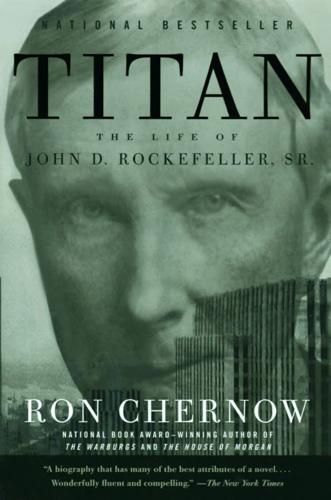
Titan: The Life of John D. Rockefeller, Sr.
by
Ron Chernow
Published 1 Jan 1997
“We will see Standard Oil in hell before we will let any set of men tell us how to run our business,” an unreconstructed Henry Rogers swore.7 Unwilling to compromise, Standard officials dealt with government officials as roughly as they did with business competitors. At this precarious moment, the trust needed a master diplomat, not the hotheaded Archbold. In 1906, Roosevelt signed a stack of bills to curb industrial abuses. Profiting from the outcry prompted by Upton Sinclair’s novel The Jungle, he signed the meat-inspection bill and the Pure Food and Drug Act. Identifying railroad discrimination as a major issue, he supported the Hepburn bill, which granted broader power to the Interstate Commerce Commission to set railroad rates and placed interstate pipelines under its domain.
…
Rockefeller is the monster of capitalism. He gives charity and in the same breath he permits the helpless workmen, their wives and children to be shot down.” 27 A show of penitence on Junior’s part might have placated the public, but his defensive moralizing invited a severe backlash. In late April, Upton Sinclair sent a “solemn warning” to Junior: “I intend this night to indict you upon a charge of murder before the people of this country. . . . But before I take this step, I wish to give you every opportunity of fair play.”28 When Junior did not respond to his requested interview, Sinclair spearheaded a demonstration outside 26 Broadway, a “mourning parade” of pickets dressed in black armbands, their ranks swollen, at one point, by a delegation from Ludlow.
…
Many critics faulted Lee for playing fast and loose with the facts when he grossly overstated the pay given to strike leaders by the union, dished out scabrous stories about Mother Jones’s supposed early career as a brothel madam, and blamed the Ludlow Massacre on an overturned tent stove instead of militia gunfire. The literary fraternity skewered him: Carl Sandburg published an article called “Ivy Lee—Paid Liar”; Upton Sinclair memorably branded him “Poison Ivy”; and Robert Benchley later mocked him for suggesting that “the present capitalist system is really a branch of the Quaker Church, carrying on the work begun by St. Francis of Assisi.” 51 Initially, Lee repeated the error that had landed the Rockefellers in trouble in the first place: He relied upon slanted reports from CFI executives.
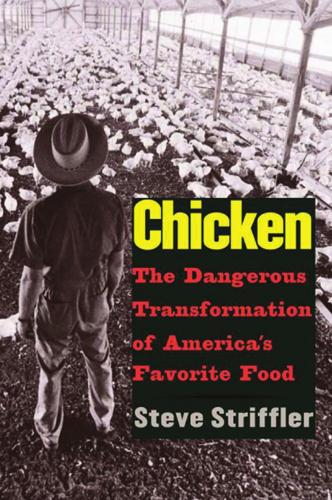
Chicken: The Dangerous Transformation of America's Favorite Food
by
Steve Striffler
Published 24 Jul 2007
Thompson, “Hanging Tongues: A Sociological Encounter with the Assembly Line,” Qualitative Sociology , no. (): – . For an excellent, more recent look at factory work, see Kevin A. Yelvington, Producing Power: Ethnicity, Gender, and Class in a Caribbean Workplace (Temple University Press, ). The obvious starting place for accounts of the meat industry is Upton Sinclair, The Jungle (; Barnes and Noble Books, ). For a thorough and recent firsthand account inside a meatpacking plant, see Deborah Fink, Cutting into the Meatpacking Line: Workers and Change in the Rural Midwest (University of North Carolina Press, ). Some excellent accounts from journalists include Tony Horowitz, “ to Nowhere,” Wall Street Journal, Dec. , , p.
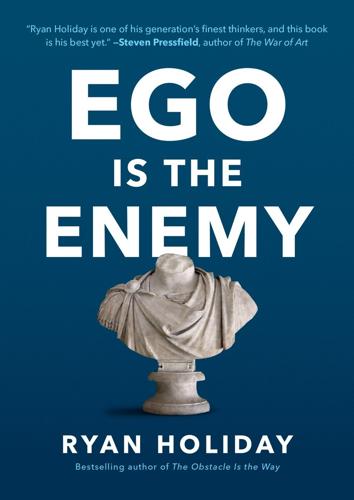
Ego Is the Enemy
by
Ryan Holiday
Published 13 Jun 2016
Following Sherman and Isocrates, we understand that ego is our enemy on that journey, so that when we do achieve our success, it will not sink us but make us stronger. TALK, TALK, TALK Those who know do not speak. Those who speak do not know. —LAO TZU In his famous 1934 campaign for the governorship of California, the author and activist Upton Sinclair took an unusual step. Before the election, he published a short book titled I, Governor of California and How I Ended Poverty, in which he outlined, in the past tense, the brilliant policies he had enacted as governor . . . the office he had not yet won. It was an untraditional move from an untraditional campaign, intended to leverage Sinclair’s best asset—as an author, he knew he could communicate with the public in a way that others couldn’t.
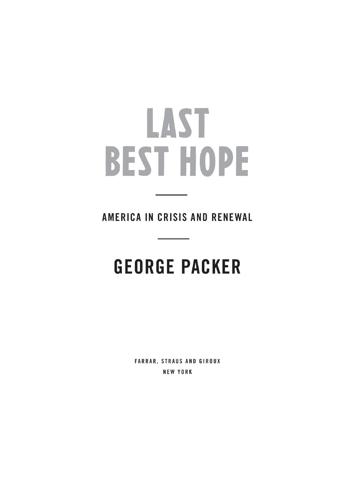
Last Best Hope: America in Crisis and Renewal
by
George Packer
Published 14 Jun 2021
Unions and the immigrants they organized terrified prosperous native-born Americans, but Perkins, through innumerable visits to sweatshops, began to see labor as a powerful, if narrow and self-interested, tool for reform. She also had a talent for making connections with important people—the philosopher John Dewey and the novelist Upton Sinclair in Chicago, Upper East Side philanthropists and Greenwich Village radicals and artists in New York. She was able to move between the worlds of the elites and the masses in a way that seems unthinkable today. Her life’s turning point came on March 25, 1911. That afternoon she was having tea with a wealthy friend whose windows looked out on Washington Square.
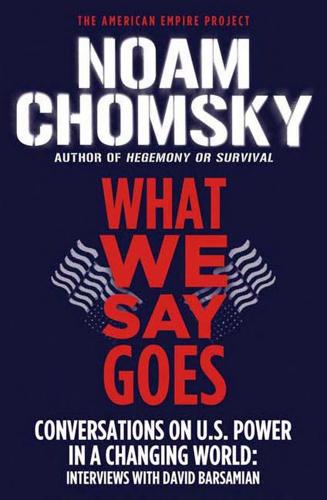
What We Say Goes: Conversations on U.S. Power in a Changing World
by
Noam Chomsky
and
David Barsamian
Published 1 Oct 2007
A professor of linguistics and philosophy at MIT, he is widely credited with having revolutionized modern linguistics. He lives outside Boston, Massachusetts. DAVID BARSAMIAN, director of the award-winning and widely syndicated Alternative Radio, is the winner of the Lannan Foundation’s 2006 Cultural Freedom Fellowship and the ACLU’s Upton Sinclair Award for independent journalism. Barsamian lives in Boulder, Colorado. THE AMERICAN EMPIRE PROJECT In an era of unprecedented military strength, leaders of the United States, the global hyperpower, have increasingly embraced imperial ambitions. How did this significant shift in purpose and policy come about?
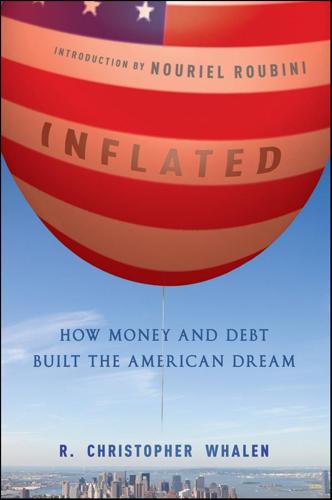
Inflated: How Money and Debt Built the American Dream
by
R. Christopher Whalen
Published 7 Dec 2010
The state and local courts were left to provide legal regulation of banking and finance. Stocks and bonds were sold from private banks, parlors, saloons, and the backs of wagons—much like Wall Street today. Such activities were reckoned to be speculative and thus socially suspect. The biblical, pejorative view of the “money changers,” to borrow the title of the 1926 book by Upton Sinclair, still held sway with many Americans, especially those who supported silver as the means for national salvation. There was as yet little thought given in Washington to restraining the worst tendencies of the markets, let alone setting standards for the regulation of commercial behavior that are the basic requirements of any civil society.
…
Conveniently enough, the crisis forced the heavily indebted Tennessee Iron & Coal company, a competitor of the great Pennsylvania Steel Trust controlled by the Morgan and Rockefeller groups, to sell itself to Morgan for $30 million, less than 5 percent of its actual worth.20 In the fictional work The Money Changers, published in 1908 by Upton Sinclair, “a plutocrat very much resembling Morgan provoked a financial panic and turned the people’s misery to his own sordid gain,” wrote James Grant in Money on the Mind.21 It should also be that the government of President Roosevelt did not attempt to block the purchase of Tennessee Iron & Coal by U.S.
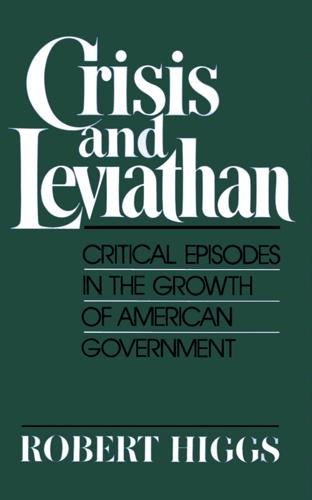
Crisis and Leviathan: Critical Episodes in the Growth of American Government
by
Robert Higgs
and
Arthur A. Ekirch, Jr.
Published 15 Jan 1987
lO According to the traditional interpretation of Progressivism, the corruption unearthed by the muckrakers stimulated the citizenry to rise up in righteous indignation and restore lost virtue in the political economy by such means as the Bureau of Corporations (1903), the Clayton Antitrust Act and the Federal Trade Commission Act (both 1914), and major amendments to the Interstate Commerce Act (1903, 1906, 1910). For many years the historians' favorite example was Upton Sinclair's novel The Jungle, the revolted readers of which allegedly demanded passage of the Meat Inspection Act and the Pure Food and Drug Act (both 1906). During the past twenty years historians increasingly have abandoned this simplistic view of the causal relation between the muckrakers' revelations and the landmark Progressive statutes, but in their revisions they have done little to refute the original allegations of widespread corporate corruption.
…
After 1900, nearly all American reformers, Progressives as well as doctrinaire Marxists, exhibited some socialistic elements in their thinking and ideals. Plainly as an arouser of emotions, if not as a practical political platform, socialism had proved a success in America. Its sentimental aspects were propagated by literary socialists such as William Dean Howells and Upton Sinclair, while its infectious economic doctrines were woven into the social criticism of Henry Demarest Lloyd and Richard T. Ely. Collegiate socialism was in vogue at all the better colleges and universities and colored the thinking of many young radicals, including [Walter] Lippmann and [Randolph] Bourne.
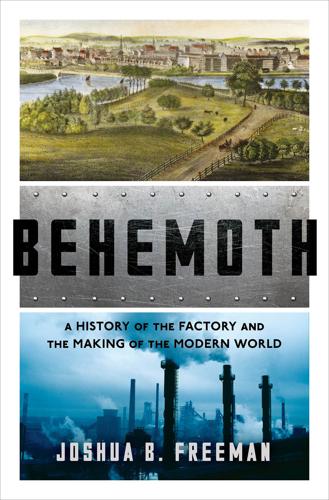
Behemoth: A History of the Factory and the Making of the Modern World
by
Joshua B. Freeman
Published 27 Feb 2018
(Alfred Kazin shrewdly observed that U.S.A., with its complex structure composed of different types of narrative building blocks, was itself a “tool,” “another American invention—an American thing peculiar to the opportunity and stress of American life.”)47 Louis-Ferdinand Céline, who visited a Detroit Ford factory in 1926, included a scene of working on the company assembly line in Journey to the End of the Night (1932). Upton Sinclair wrote a not very good novel about Ford, The Flivver King: A Story of Ford-America (1937). And most famously, Aldous Huxley’s Brave New World (1932) depicts a dystopia of Fordism, a portrait of life A.F.—the years “Anno Ford,” measured from 1908, when the Model T was introduced—with Henry Ford the deity.48 Dos Passos, Sinclair, Céline, and Huxley all wrote about Ford and Fordism during the 1930s, well after the initial burst of journalistic and industrial excitement over mass production.
…
Cecelia Tichi expanded on Kazin’s observation in Shifting Gears: Technology, Literature, Culture in Modernist America (Chapel Hill: University of North Carolina Press, 1987), 194–216. 48.Smith, Making the Modern, 16–18; Louis-Ferdinand Céline, Journey to the End of the Night ([1932] New York: New Directions, 1938); Upton Sinclair, The Flivver King: A Story of Ford-America (Emaus, PA: Rodale Press, 1937); Aldous Huxley’s Brave New World: A Novel (London: Chatto & Windus, 1932). 49.Darley, Factory, 15–27, 34; Wilson, Pilgrim, and Tashjian, The Machine Age in America, 23, 29; Kim Sichel, From Icon to Irony: German and American Industrial Photography (Seattle: University of Washington Press, 1995); Leah Bendavid-Val, Propaganda and Dreams: Photographing the 1930s in the U.S.S.R. and U.S.A.
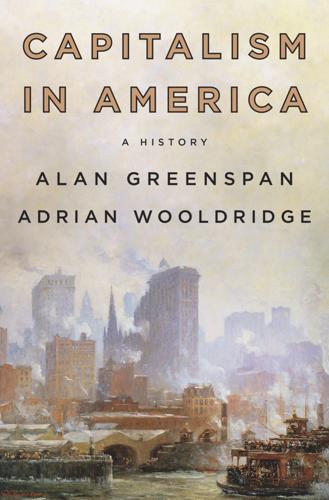
Capitalism in America: A History
by
Adrian Wooldridge
and
Alan Greenspan
Published 15 Oct 2018
“Capital is piled on capital,” he argued, “to the exclusion of men of lesser means and the utter prostration of personal independence and enterprise on the part of the less successful masses.”27 Henry Demarest Lloyd proclaimed that “wealth” was lined up against “commonwealth.” The era’s most talented novelists added their voices to the muckraking cause. Upton Sinclair exposed the horrific conditions in the meatpacking industry in Chicago. Frank Norris denounced the Southern Pacific Railroad as “an excrescence, a gigantic parasite fattening upon the life-blood of an entire commonwealth” in The Octopus.28 Theodore Dreiser portrayed the compulsion of tycoons in his trilogy based on Charles Yerkes.
…
Robert La Follette, the governor of Wisconsin, a state with a long tradition of Progressivism (some of it colored by the large number of Scandinavians who settled there, with their strong commitment to good government and social equality), argued that FDR needed to go much further in securing an equitable distribution of wealth. Upton Sinclair, the muckraking novelist, ran for governor of California on a program of confiscating private property and abolishing profit. Another Californian, Francis Townsend, hitherto an obscure physician, became a national figure with his plan to pay everyone two hundred dollars a month, the equivalent of an annual payment of forty-five thousand dollars in today’s money, to retire at sixty.
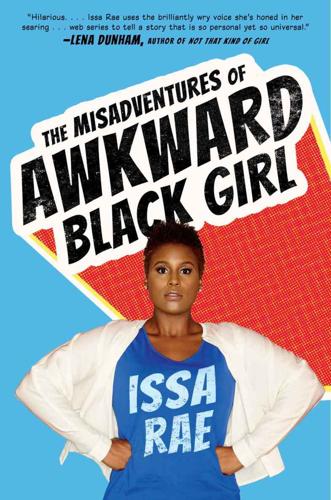
The Misadventures of Awkward Black Girl
by
Issa Rae
Published 10 Feb 2015
But something happened during the cleanse: I started watching marathons of Chopped and Master Chef and began to question why I stopped eating meat in the first place. I honestly couldn’t recall. Then it all came back to me. I was in the ninth grade and my father had picked me up from school; NPR was playing on the radio, as always. About the same time we were assigned to read Upton Sinclair’s The Jungle, I remember listening to a story about how meat was processed and what hot dogs were made of. Then and there, I decided to give up meat. Even my dad, whose regular palate matches that of a protein-craving pregnant woman’s, declared that he would stop eating meat, too. The following day my last meat meal (on purpose, anyway) was chicken enchiladas.
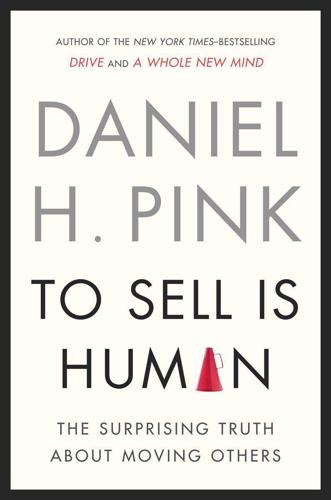
To Sell Is Human: The Surprising Truth About Moving Others
by
Daniel H. Pink
Published 1 Dec 2012
Health care and education both revolve around non-sales selling: the ability to influence, to persuade, and to change behavior while striking a balance between what others want and what you can provide them. And the rising prominence of this dual sector is potentially transformative. Since novelist Upton Sinclair coined the term around 1910, and sociologist C. Wright Mills made it widespread forty years later, experts and laypeople alike have talked about “white-collar” workers. But now, as populations age and require more care and as economies grow more complex and demand increased learning, a new type of worker is emerging.

Having and Being Had
by
Eula Biss
Published 15 Jan 2020
As well as being an inventor, she was also a poet. She was trying to make a statement about women’s economic dependence, Magie told reporters, and she meant only that she would sell her labor in marriage. “Of course, I am a white slave,” she said, “but I am not on the block physically.” Her metaphor was appreciated by Upton Sinclair, who sent money. Others were offended—not because a considerable number of people who had been enslaved were still alive and could testify that slavery was not like marriage, but because she was suggesting that marriage, like slavery, was an economic institution. In Magie’s original version of the Landlord’s Game, players earned money by completing a circuit around the board and passing the square labeled “Labor upon Mother Earth Produces Wages,” which is now simply “Go.”
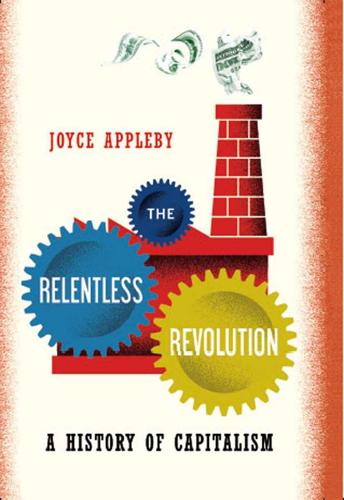
The Relentless Revolution: A History of Capitalism
by
Joyce Appleby
Published 22 Dec 2009
The sprawling native-born white middle class also associated the often violent strikes and protests of the closing decades of the nineteenth century with European inspiration. Only slowly did labor win the favor of the public watching on the sidelines. People were concerned when corporate indifference threatened the food they ate. Upton Sinclair wrote The Jungle to awaken his fellow citizens to the terrible labor conditions in meat-packing plants. Almost incidentally he detailed how sausages were packed with various impurities like sawdust. Those vivid descriptions stuck in readers’ minds. Congress passed the Meat Inspection Act and a Pure Food and Drug Act the same year as The Jungle’s publication in 1906.
…
Nelson Lichtenstein, State of the Union: A Century of American Labor (Princeton, 2002), 4; Karen Orren, Belated Feudalism: Labor, The Law, And Liberal Developments In The United States (Cambridge, 1992); Irwin Unger, The Greenback Era: A Social and Political History of American Finance, 1865–1879 (Princeton, 1964), 22. 16. Mark Twain and Charles Dudley Warren, The Gilded Age (New York, 1973); Upton Sinclair, The Jungle (New York, 1906). 17. Walter G. Moss, An Age of Progress?: Clashing Twentieth-Century Global Forces (New York, 2008), 3–12. 18. Lisa Tiersten, “Redefining Consumer Culture: Recent Literature on Consumption and the Bourgeoisie in Western Europe,” Radical History Review, 57 (1995): 116–59. 19.
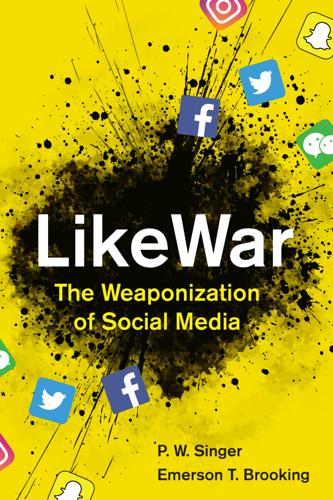
Likewar: The Weaponization of Social Media
by
Peter Warren Singer
and
Emerson T. Brooking
Published 15 Mar 2018
When Facebook employees confronted Mark Zuckerberg about then-candidate Trump’s vow to bar all Muslims from entering the United States, he acknowledged that it was indeed hate speech, in violation of Facebook’s policies. Nonetheless, he explained, his hands were tied. To remove the post would cost Facebook conservative users—and valuable business. It was exactly as observed by writer Upton Sinclair a century earlier: “It is difficult to get a man to understand something when his salary depends on his not understanding it.” Today, the role of social media firms in public life is one that evades easy description. They are profit-motivated, mostly U.S.-based businesses that manage themselves like global governments.
…
cmpid=socialflow-twitter-business&utm_content=business&utm_campaign=socialflow-organic&utm_source=twitter&utm_medium=social. 243 “more concerned with growth numbers”: Selina Wang, “Twitter Sidestepped Russian Account Warnings, Former Worker Says,” Bloomberg, November 3, 2017, https://www.bloomberg.com/news/articles/2017-11-03/former-twitter-employee-says-fake-russian-accounts-were-not-taken-seriously. 243 conservative users: Seetharaman, “Facebook Employees Pushed.” 243 “It is difficult”: Upton Sinclair, I, Candidate for Governor, and How I Got Licked (Farrar & Rinehart, 1935), 105. 244 26 million subscribers: Keith Collins and David Ingold, “Through Years of Tumult, AOL Sticks Around,” Bloomberg, May 12, 2015, https://www.bloomberg.com/graphics/2015-verizon-aol-deal/. 244 “500 Hours Free!”
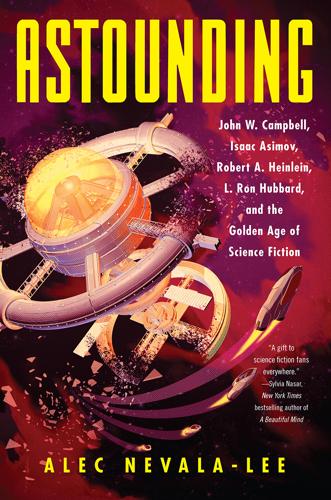
Astounding: John W. Campbell, Isaac Asimov, Robert A. Heinlein, L. Ron Hubbard, and the Golden Age of Science Fiction
by
Alec Nevala-Lee
Published 22 Oct 2018
A classmate named Cal Laning had taught him hypnosis, and they joined a third friend in a project called the Quest—if one of them died, he promised to contact the others from beyond the grave, and they conducted experiments in telepathy, following the instructions in a book by the socialist writer Upton Sinclair. Heinlein was searching for approaches to mysticism, and he even considered joining the Freemasons. Instead, the revelation of the girl on the train led him to take an uncharacteristic risk. In Kansas City, he reunited with another high school friend, Elinor Curry, whom he married without telling his parents.
…
And he was about to make his greatest discovery of all, a former Navy man and political activist who fulfilled his wildest hopes almost overnight. FOR ALL THEIR AVOWED RADICALISM, THE FUTURIANS APPROACHED POLITICS AS SOMETHING TO BE debated over table tennis and banana splits. Robert A. Heinlein, who later called it the only game fit for adults, got to know it on the ground. He had entered the political arena out of admiration for Upton Sinclair, the author of The Jungle, who was drafted to run for governor of California in 1933. Sinclair, a progressive socialist, based his platform on a program called End Poverty in California, or EPIC, that called on the state to provide jobs for more than a million unemployed workers. Heinlein had settled with his wife, Leslyn, in Southern California, where he was living off his naval pension.
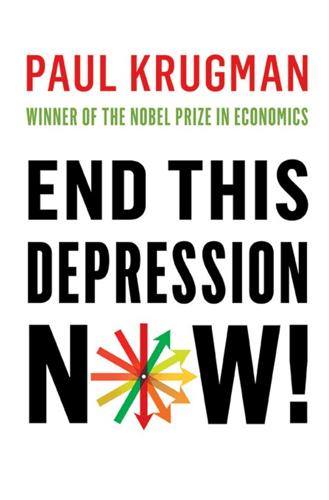
End This Depression Now!
by
Paul Krugman
Published 30 Apr 2012
But my guess—and it can’t be more than that, given how little we understand some of these channels of influence—is that the biggest contribution of rising inequality to the depression we’re in was and is political. When we ask why policy makers were so blind to the risks of financial deregulation—and, since 2008, why they have been so blind to the risks of an inadequate response to the economic slump—it’s hard not to recall Upton Sinclair’s famous line: “It is difficult to get a man to understand something, when his salary depends on his not understanding it.” Money buys influence; big money buys big influence; and the policies that got us where we are, while they never did much for most people, were, for a while at least, very good to a few people at the top.
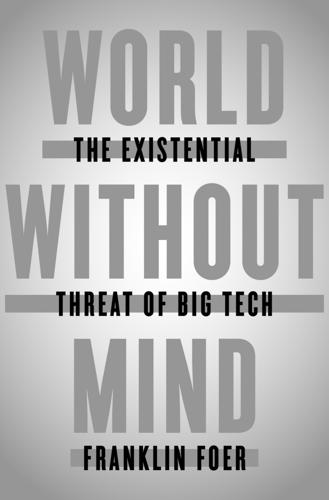
World Without Mind: The Existential Threat of Big Tech
by
Franklin Foer
Published 31 Aug 2017
Almost immediately after Twain’s triumph, writing was liberated from the privileged grasp of Brahmins. For the first time in the history of the Republic, American literature came to dominate American tastes. A new generation of writers soon emerged, which better reflected the country, though very far from perfectly. It wasn’t concentrated in any region or any caste. Jack London and Upton Sinclair came from poverty. The hinterlands beyond New England and New York supplied writers like William Dean Howells, Theodore Dreiser, Ezra Pound, and Twain himself. The sociology of American letters quickly changed because the economics did. Publishing became a big business. Writers produced the essential commodity, and their status and compensation came to reflect that fact.
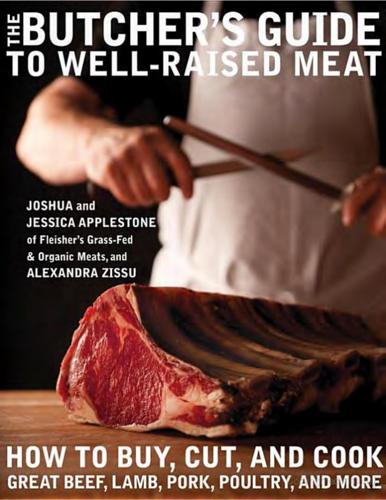
The Butcher's Guide to Well-Raised Meat: How to Buy, Cut, and Cook Great Beef, Lamb, Pork, Poultry, and More
by
Joshua Applestone
,
Jessica Applestone
and
Alexandra Zissu
Published 6 Jun 2011
Join the fun at meatingplace.com. 324 BOOKS Animals in Translation: Using the Mysteries of Autism to Decode Animal Behavior by Temple Grandin The CAFO Reader: The Tragedy of Industrial Animal Factories by Daniel Imhoff Charcuterie: The Craft of Salting, Smoking, and Curing by Michael Ruhlman and Brian Polcyn Cleaving: A Story of Marriage, Meat, and Obsession by Julie Powell The Conscious Kitchen: The New Way to Buy and Cook Food—To Protect the Earth, Improve Your Health, and Eat Deliciously by Alexandra Zissu Fast Food Nation: The Dark Side of the All-American Meal by Eric Schlosser The Flavor Bible: The Essential Guide to Culinary Creativity, Based on the Wisdom of America’s Most Imaginative Chefs by Karen Page and Andrew Dornenburg Heat: An Amateur’s Adventures as Kitchen Slave, Line Cook, PastaMaker, and Apprentice to a Dante-Quoting Butcher in Tuscany by Bill Buford The Jungle by Upton Sinclair Kitchen Pro Series: Guide to Meat Identi cation, Fabrication, and Utilization and Guide to Poultry Identi cation, Fabrication, and Utilization by Thomas Schneller and the Culinary Institute of America Meat: A Kitchen Education by James Peterson The Meat Buyer’s Guide and The Poultry Buyer’s Guide by the North American Meat Processors Association The Niman Ranch Cookbook: From Farm to Table with America’s 325 Finest Meat by Bill Niman and Janet Fletcher The Omnivore’s Dilemma: A Natural History of Four Meals by Michael Pollan Pig Perfect: Encounters with Remarkable Swine and Some Great Ways to Cook Them by Peter Kaminsky Pork and Sons by Stéphane Reynaud Primal Cuts: Cooking with America’s Best Butchers by Marissa Guggiana Raising Steaks: The Life and Times of American Beef by Betty Fussell Righteous Porkchop: Finding a Life and Good Food Beyond Factory Farms by Nicolette Hahn Niman The River Cottage Meat Book by Hugh Fearnley-Whittingstall Salad Bar Beef and Everything I Want to Do Is Illegal by Joel Salatin Seven Fires: Grilling the Argentine Way by Francis Mallmann and Peter Kaminsky The Whole Beast: Nose to Tail Eating by Fergus Henderson SOURCES • The herbs and spices for our rubs, sausages, and marinades come from Mountain Rose Herbs: mountainroseherbs.com. • For all of your butcher paper, twine, cutting, and sausagemaking needs, head to butcher-packer.com or sausagemaker.com. • For our favorite stovetop-to-oven steel pans, check out www.debuyer.com. • For our preferred enamel-coated cast-iron pots, visit lecreuset.com. • For more specifics on roasting whole pigs, including 326 charcoal, wood, building fires, tips, and timing as you plan your roast, go to the sections on roasting a whole pig at firepit-and-grilling-guru.com and askthemeatman.com. • The all important metal aprons can be found at Saf-T-Guard, saftguard.com. 327 328 ACKNOWLEDGMENTS Josh and Jessica Applestone would like to thank the “old men” of the business who taught us everything we know: Tom, Bob, Kent, Bill, Jan, Hans, and of course, Ted.
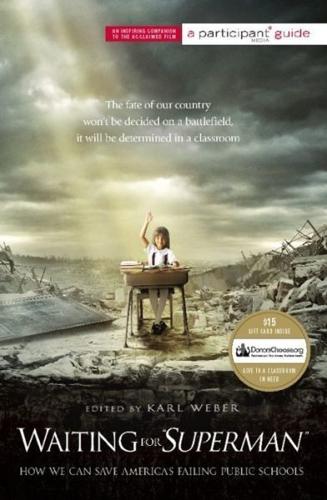
Waiting for Superman: How We Can Save America's Failing Public Schools
by
Participant Media
and
Karl Weber
Published 14 Jun 2010
This story of how the KIPP schools raised the achievement of impoverished students to unprecedented levels was a New York Times best seller. Mathews has won the Education Writers Association National Education Reporting Award and the Benjamin Fine Award for Outstanding Education Reporting, as well as the Eugene Meyer Award, the Washington Post’s top honor for distinguished service to the newspaper. In 2009 he received the Upton Sinclair Award for being “a beacon of light in the realm of education.” When writing about schools, even very good schools, I try to avoid using the word “miracle.” It is the clunkiest cliché in the education writer’s vocabulary, used too often and invariably incorrectly. But what I saw three decades ago in a small classroom at Garfield High School in East Los Angeles turned out to be pretty close to miraculous, at least in the sense of being totally unexpected and far beyond the range of normal experience.
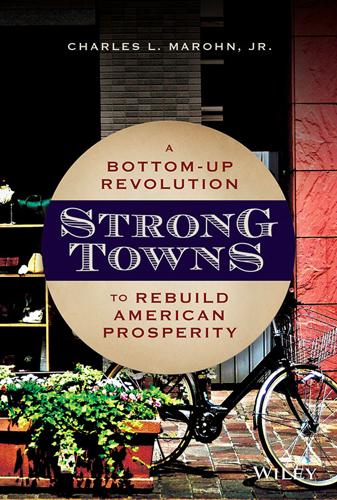
Strong Towns: A Bottom-Up Revolution to Rebuild American Prosperity
by
Charles L. Marohn, Jr.
Published 24 Sep 2019
And because people wanted it, they will find a way to pay for it, and that was all the justification needed to get going. Coming from professionals who were compensated for building all this stuff, that attitude seemed stunningly self-serving. Don’t we have an obligation to make sure that what we built could plausibly be sustained by future generations? It was Upton Sinclair who said, “It is difficult to get a man to understand something when his salary depends on his not understanding it.” With a few notable exceptions, I found Sinclair’s observation maddeningly insightful. For me, the evidence was pointing to a conclusion I found difficult to believe, yet impossible to ignore: The more our cities build, the poorer they become.
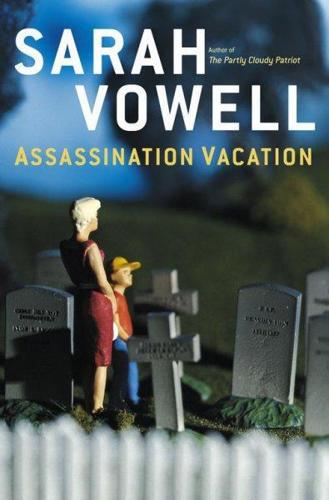
Assassination Vacation
by
Sarah Vowell
Published 28 Mar 2005
Calling his agenda the “square deal,” he achieved an unprecedented happy medium between the demands of labor and capital, settling a coal strike in 1902 in which he forced the owners to raise wages and stick to a maximum nine-hour workday, but prevented the workers from forming a union. (Nobody was entirely happy, but compared to the bloody strikes of the 1890s, it was an innovation in that nobody got killed.) Roosevelt also coined the term “muckrakers” to describe the crusading journalists like Ida Tarbell, who had taken on the monolith of Standard Oil, and Upton Sinclair, whose book The Jungle detailed the horrors of the meatpacking industry. Roosevelt acted on the abuses they brought to light, pursuing dozens of antitrust suits and signing into law the Pure Food and Drug Act of 1906. I think Roosevelt’s soft spot for the underdog in Washington was the influence of New York City — his aristocratic upbringing here and its resultant noblesse oblige.
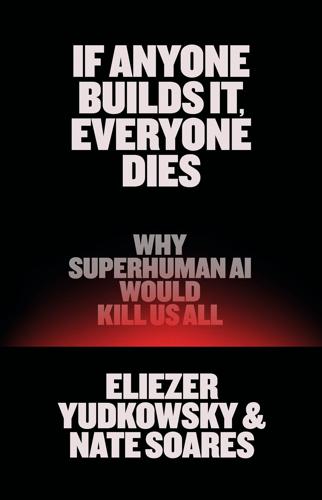
If Anyone Builds It, Everyone Dies: Why Superhuman AI Would Kill Us All
by
Eliezer Yudkowsky
and
Nate Soares
Published 15 Sep 2025
We have a higher chance of making it to that wonderful future if we walk there more slowly. Speed is often better, but AI is different from nearly every problem we’ve faced so far. When missteps kill everyone, you can’t just run fast and accept a few early mistakes. There are many reasons why someone chasing a beautiful dream would not want to believe that it could end in ruin. Upton Sinclair once observed that it is difficult to get a man to understand something when his salary depends upon his not understanding it. AI engineers and their leaders have a lot more than their salaries hanging in the balance. Even setting aside the beautiful dreams that would be dashed if they acknowledged the risks they are running, they have sunk their careers into this sort of work and may not wish to believe that it’s endangering everything they know and love.
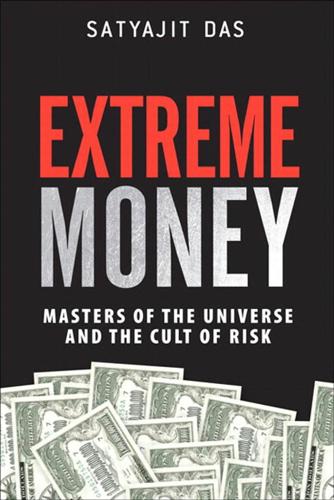
Extreme Money: Masters of the Universe and the Cult of Risk
by
Satyajit Das
Published 14 Oct 2011
Citi’s behavior was merely a rational of poor business judgment. As John Kenneth Galbraith pointed out: “The conventional view serves to protect us from the painful job of thinking.... In any great organization it is far, far safer to be wrong with the majority than to be right alone.” The large profits, as Upton Sinclair observed, made it “difficult...for a man to understand something if he’s paid a small fortune to not understand it.”51 In October 2008 Dean Jay Light told Harvard Business Schools students and alumni: We failed to understand how much the system had changed...and how fragile it might be because of increased leverage, decreased transparency and decreased liquidity...we have witnessed...a stunning and sobering failure of financial safeguards, of financial markets, of financial institutions and mostly of leadership at many levels.
…
John Maynard Keynes (1973) The General Theory of Employment, Interest and Money in The Collected Writings of John Maynard Keynes, Macmillan, London: 321, 322. 5. Daniel Yergin and Joseph Stanislaw (2002) The Commanding Heights: The Battle for the World Economy, Touchstone Books, New York: 125. 6. Quoted in Kai Bord and Martin J. Sherwin (2006) American Prometheus: The Triumph and Tragedy of J. Robert Oppenheimer, Vintage Books, New York: 62. 7. Upton Sinclair (1965) The Jungle, Dover Publications: 32. 8. Quoted in Peter Watson (2000) A Terrible Beauty: The People and Ideas that Shaped the Modern Minds—A History, Phoenix Press, London: 81. 9. Philip Mirowski (2002) Machine Dreams: Economics Becomes a Cyborg Science, Cambridge University Press, Cambridge: 203, 204. 10.
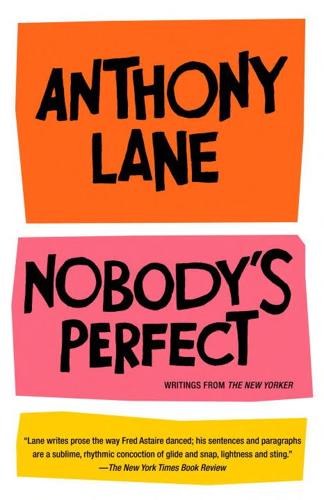
Nobody's Perfect: Writings From the New Yorker
by
Anthony Lane
Published 26 Aug 2002
Here is Marc in full flow: “Even when people don’t dislike you, even when they really like you, you still make them feel slightly self-conscious, I don’t know why. Maybe it’s just because they’ve been brought up to regard Jews as ‘different.’ Do you want a biscuit?” On to No. 8: Dragon Harvest, by Upton Sinclair. This is the only one of the top ten books that tries to be up to the minute. The action gets going in the South of France in 1939, and runs out of steam just as Paris is falling to the Germans. And, wherever the action is, there is Lanny Budd. Lanny is all things to all men. To some he is a playboy and an art dealer, son of the beautiful Beauty Budd; to others he is a sympathetic ear, listening gently as his good friends Hitler and Chamberlain explain why they must or must not go to war; to a select few he is a secret agent, dispatched by America to bring her the truth.
…
O.K., he saves the world and all, but anything less than universal justice is beneath him; you wouldn’t trust him to feed your cat over the weekend. Also, does he have to schmooze Adolf and the rest of the boys with quite such gusto? Lanny’s pretense of enthusiasm is so thorough that even the author seems to be taken in. Here is Upton Sinclair, standard-bearer of anti-fascism, on the charms of der Führer: “To be near him was like living in the midst of a tornado, like being in a Vulcan forge where new universes were being wrought.” It’s the old Miltonic story: when your hero is a wimp, the villain steals the scene. This is bad luck for Sinclair, because the only justification for Dragon Harvest is to dramatize Allied propaganda.
…
What may have come across in wartime as single-minded striving now reads like a crash course in the Will to Power, and Roark, for all his steely modernist intentions, reminded me less of Mies van der Rohe than of Albert Speer—or, indeed, of the volcanic Führer who erupts into the imagination of Upton Sinclair. The more Rand insists that her hero is not like other men, that he barely notices them, the less suitable he appears as a role model for Roosevelt’s America. It is only the fact of his “preposterous orange hair” that disqualifies him from becoming the perfect Aryan. “The world is perishing from an orgy of self-sacrificing,” he announces at the end, having dynamited one of his own constructions.
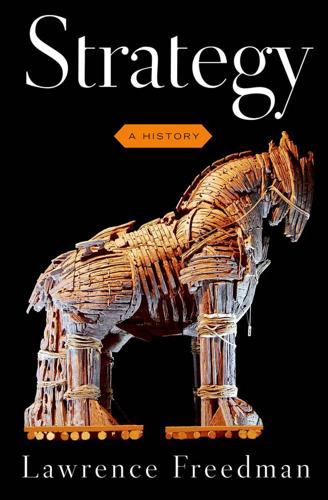
Strategy: A History
by
Lawrence Freedman
Published 31 Oct 2013
The “first in violence,” wrote radical journalist Lincoln Steffens in 1904, “deepest in dirt; loud, lawless, unlovely, ill-smelling, new; an overgrown gawk of a village, the teeming tough among cities. Criminally it was wide open; commercially it was brazen; and socially it was thoughtless and raw.”29 For his novel The Jungle, Upton Sinclair went undercover in the stockyards to expose the awful circumstances of immigrant workers in the meatpacking industry. Max Weber visited Chicago in the fall of 1904 en route to a major scientific congress in St. Louis. He described it, in a striking metaphor, as being “like a human being with its skin peeled off and whose intestines are seen at work.”30 He toured the stockyards, watching the automated process whereby an “unsuspecting bovine” entered the slaughtering area, was hit by a hammer and collapsed, gripped by an iron clamp, hoisted up and started on a journey which saw workers “eviscerate and skin it.”
…
He was directly challenging paternalistic social work and was accused of tolerating criminality, encouraging populist agitators to stir up local people against those who were trying to help them and had their best interests at heart. In 1938, Alinsky was assigned to the tough Back of the Yards neighborhood in Chicago, already notorious as the jungle of Upton Sinclair’s 1906 novel. He was a natural in the organizer’s role. Clever, street-wise, and brash, Alinsky had a knack of gaining the confidence of people who might otherwise feel neglected and marginalized. His approach was more political than the project allowed, however. Not only did he use the issue of delinquency to move into virtually all problems facing the neighborhood, but he also put together a community organization based on representatives of key groups who had clout because of who they represented and not just as individuals.
…
The ability to disseminate a message to extraordinary numbers of potential voters was coupled with possibilities for tailoring that message to the interests and views of particular constituencies. Sophisticated forms of polling based on demographic sampling, pioneered by George Gallup in the 1930s, made it possible to monitor developing trends in opinion and identify issues of high salience. In 1933, the campaigning socialist journalist Upton Sinclair, author of The Jungle, wrote a short book entitled I, Governor of California and How I Ended Poverty. It was a bestseller, a history of the future. Sinclair claimed it was a unique attempt by a historian “to make his history true.” California was then a one-party Republican state, but also had 29 percent unemployment.
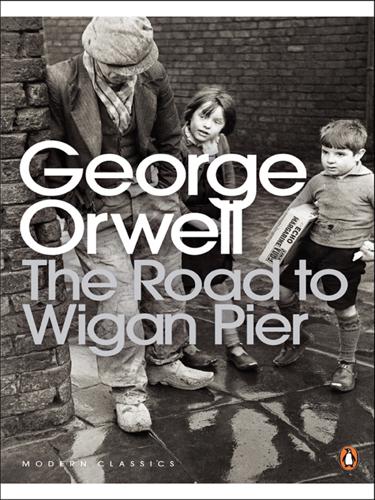
The Road to Wigan Pier
by
George Orwell
Published 17 Oct 1972
Thus, if Ibsen and Zola described themselves as Socialists, it did not mean much more than that they were ‘progressives’, while in the case of Anatole France it meant merely that he was an anticlerical. The real Socialist writers, the propagandist writers, have always been dull, empty windbags – Shaw, Barbusse, Upton Sinclair, William Morris, Waldo Frank, etc. etc. I am not, of course, suggesting that Socialism is to be condemned because literary gents don’t like it; I am not even suggesting that it ought necessarily to produce literature on its own account, though I do think it a bad sign that it has produced no songs worth singing.
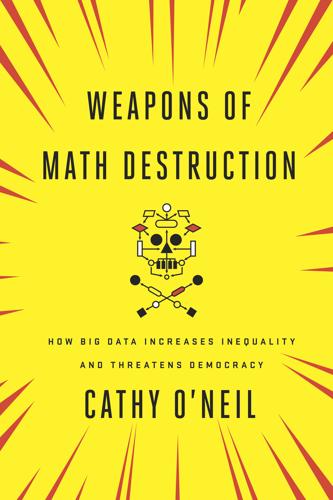
Weapons of Math Destruction: How Big Data Increases Inequality and Threatens Democracy
by
Cathy O'Neil
Published 5 Sep 2016
Armour and Co. dispatched cans of rotten beef by the ton to US Army troops, using a layer of boric acid to mask the stench. Meanwhile, rapacious monopolists dominated the railroads, energy companies, and utilities and jacked up customers’ rates, which amounted to a tax on the national economy. Clearly, the free market could not control its excesses. So after journalists like Ida Tarbell and Upton Sinclair exposed these and other problems, the government stepped in. It established safety protocols and health inspections for food, and it outlawed child labor. With the rise of unions, and the passage of laws safeguarding them, our society moved toward eight-hour workdays and weekends off. These new standards protected companies that didn’t want to exploit workers or sell tainted foods, because their competitors had to follow the same rules.
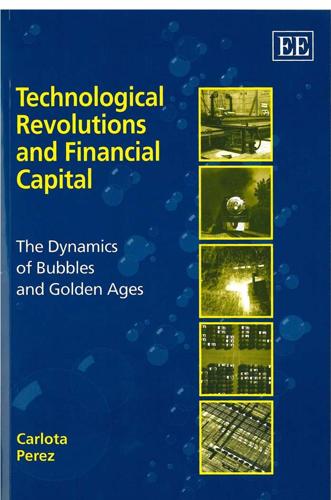
Technological Revolutions and Financial Capital: The Dynamics of Bubbles and Golden Ages
by
Carlota Pérez
Published 1 Jan 2002
But it is all achieved in a violent, wasteful and painful manner. The new wealth that accumulates at one end is often more than counterbalanced by the poverty that spreads at the other end. This is in fact the period when capitalism shows its ugliest and most callous face. It is the time depicted by Charles Dickens and Upton Sinclair, by Friedrich Engels and Thorstein Veblen; the time when the rich get richer with arrogance and the poor get poorer through no fault of their own; when part of the population celebrates prosperity and the other portion (generally much larger) experiences The Turbulent Ending of the Twentieth Century 5 outright deterioration and decline.
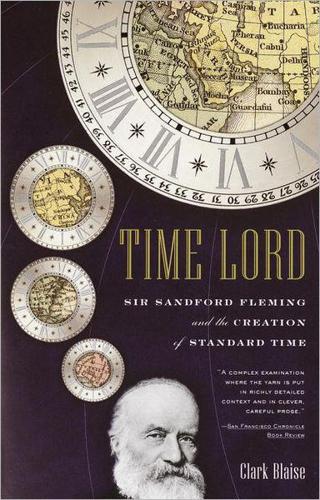
Time Lord: Sir Sandford Fleming and the Creation of Standard Time
by
Clark Blaise
Published 27 Oct 2000
The avant-garde doesn’t always look shockingly new. Sometimes it lumbers around in earnest, sober, institutional prose. The new century in America was greeted by a revolutionary work that looked like, and sounded like (its critics charged), a lame, Midwestern imitation of Zola, or Thomas Hardy, slightly less didactic than Frank Norris or Upton Sinclair, nowhere as lyrical as Jack London or Stephen Crane. In Dreiser’s naturalistic universe, two moral codes (like two velocities) cannot coexist. The stronger, however one defines it—the cruder, the hungrier, the more sexually satisfying or more life-affirming, or, in terms of this book, the more energetic, the faster—must always triumph.
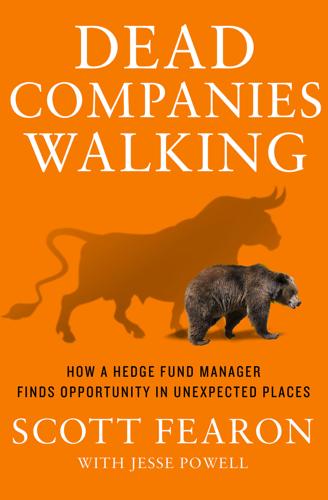
Dead Companies Walking
by
Scott Fearon
Published 10 Nov 2014
That denial leads to some all-too-common mistakes. Notes *Interview with Peter Lynch, PBS Frontline, January 14, 1997. Eight Losing Money Without Even Trying Welcome to Wall Street It is difficult to get a man to understand something when his salary depends upon his not understanding it. —Upton Sinclair The only trouble with capitalism is the capitalists—they’re too damn greedy. —Herbert Hoover My immediate supervisor at my first job in finance at Texas Commerce Bank was the trust department’s senior portfolio manager, a tall, lanky Michigan native who answered directly to Geoff Raymond.
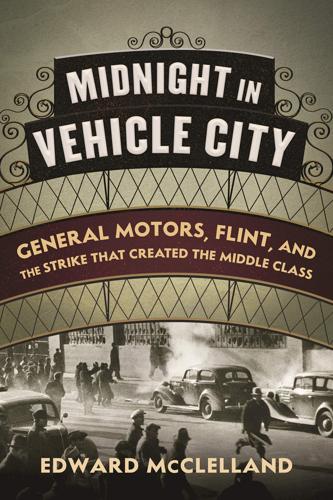
Midnight in Vehicle City: General Motors, Flint, and the Strike That Created the Middle Class
by
Edward McClelland
Published 2 Feb 2021
After graduating from Mount Holyoke College, near her hometown of Worcester, Massachusetts, Perkins moves to Lake Forest, Illinois, to teach science at a women’s college. But as a volunteer at Jane Addams’s Hull House in nearby Chicago, Perkins learns that her passion is social work, not teaching. At Hull House, Perkins meets the muckraking novelist Upton Sinclair, author of The Jungle, and the labor leader Sidney Hillman, future leader of the International Ladies Garment Workers Union. She encounters a settlement house founder’s son, who tells her that the only solution to urban poverty is “the organization of working people into trade unions,” because unions negotiate wages that enable laborers to live without resorting to charity or government aid.
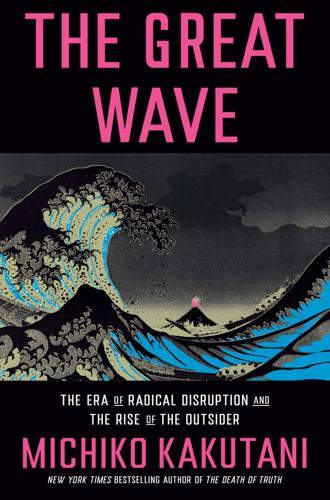
The Great Wave: The Era of Radical Disruption and the Rise of the Outsider
by
Michiko Kakutani
Published 20 Feb 2024
Labor unions and the Farmers’ Alliance gained more support as inequities mounted; during the last two decades of the nineteenth century, there were an estimated twenty thousand strikes and lockouts and increasingly violent confrontations with police and company enforcers. Investigative journalism by writers like Ida Tarbell, Upton Sinclair, Lincoln Steffens, and Jacob Riis shined a light on the sufferings of the poor and disenfranchised. Their reporting also focused public attention on political corruption and unfair business practices and spurred the participation of middle-class Americans in reform efforts on the municipal and state levels.
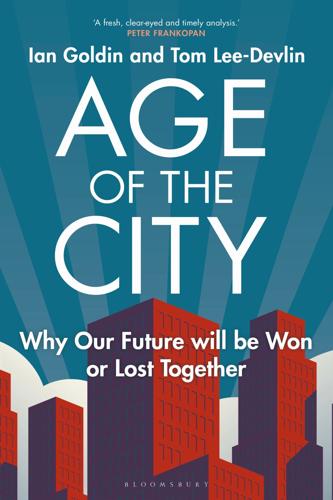
Age of the City: Why Our Future Will Be Won or Lost Together
by
Ian Goldin
and
Tom Lee-Devlin
Published 21 Jun 2023
Charles Dickens famously brought the plight of London’s working poor to life in novels like David Copperfield and Oliver Twist. In the US, the inhumane working conditions and unsanitary practices of Chicago’s meatpacking district, known as the Union Stock Yards, were brought to the public’s awareness by Upton Sinclair’s fictionalized 1906 account The Jungle. Of Chicago’s working poor, Sinclair wrote: ‘They are penned up in filthy houses and left to rot and stew in misery, and the conditions of their life make them ill faster than all the doctors in the world could heal them.’9 As industrialization led to the mass migration of the poor from the countryside, it profoundly altered the structure of cities.
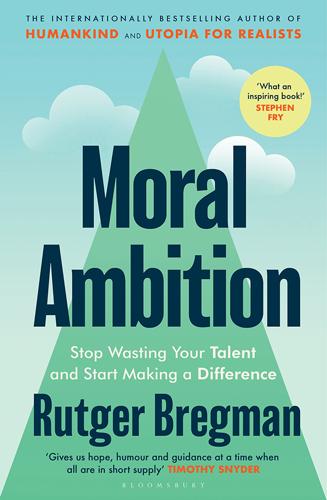
Moral Ambition: Stop Wasting Your Talent and Start Making a Difference
by
Bregman, Rutger
Published 9 Mar 2025
And he didn’t believe in a system that ‘starves thousands while hundreds are stuffed’.44 Naturally, the press couldn’t get enough of this eccentric fellow. Garland got bags full of mail about how he should spend his fortune, and big names of the time also weighed in. The influential Black activist A. Philip Randolph accused Garland of ‘criminal negligence’, and writer Upton Sinclair called him crazy. ‘Do you realize,’ the latter wrote, ‘that never in the history of the radical movement has anybody had a million dollars or a tenth of that?’45 The young man held out for another year but was eventually persuaded to put his money into a trust. Garland had one condition: the funds had to be given away ‘as quickly as possible’ to ‘unpopular’ causes, such as the incarcerated and minority groups.46 Once he’d finally got rid of the money, the good man went to work as a farmer in Massachusetts.
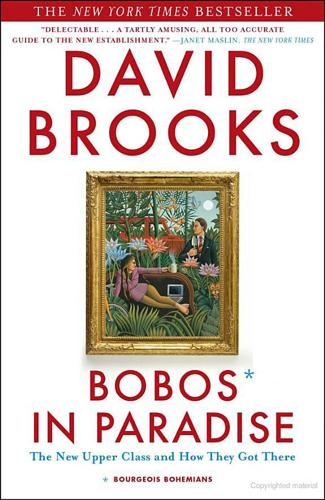
Bobos in Paradise: The New Upper Class and How They Got There
by
David Brooks
Published 1 Jan 2000
The sausage links it advertises derive, the catalogue informs us, from the secrets of curing that Native Americans taught the first European settlers in Virginia (the mention of Native Americans gives the product six moral points right off the bat). The “sausages are made from pure pork and natural spices, using family recipes passed down through the generations.” This is not some Upton Sinclair jungle but a noble lineage of craftsman sausage makers, and we members of the educated elite are willing to pay $29.50 for 24 little links in order to tap in to this heritage. Shopping, like everything else, has become a means of self-exploration and self-expression. “Happiness,” as Wallace Stevens wrote, “is an acquisition.”
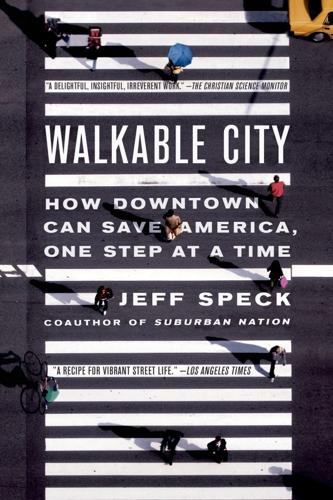
Walkable City: How Downtown Can Save America, One Step at a Time
by
Jeff Speck
Published 13 Nov 2012
There are now more than a handful of professional transportation engineers who do their best to share information on induced demand. I have also had good experiences recently working with municipal engineers in Carmel, Indiana; Cedar Rapids; and Fort Lauderdale. But, for most of the profession, Upton Sinclair’s famous observation still holds sway: “It is difficult to get a man to understand something when his salary depends on his not understanding it.” ●AAA: “Your Driving Costs,” 2010 edition, 7. The marginal operating cost of most vehicles is well below twenty cents per mile. This explains why Zipcar and the other urban car-share programs are so effective at reducing auto use.
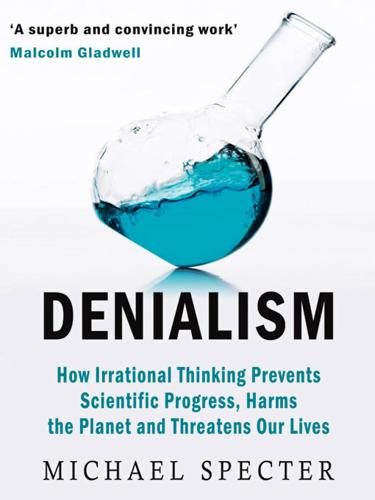
Denialism: How Irrational Thinking Hinders Scientific Progress, Harms the Planet, and Threatens Our Lives
by
Michael Specter
Published 14 Apr 2009
According to the latest data released by the federal government in 2008, echinacea remains the most heavily used supplement in the childhood arsenal. (It is still wildly popular with adults too, but fish oil is now in greater demand.) Almost no restrictions were placed on the sale of supplements, vitamins, or other home remedies until 1906, when, reacting to the revelations in Upton Sinclair’s book The Jungle, Congress passed the Pure Food and Drug Act. The law permitted the Bureau of Chemistry, which preceded the Food and Drug Administration, to ensure that labels contained no false or misleading advertising. Since then, the pendulum has swung regularly between unregulated anarchy and restrictions that outrage many Americans.
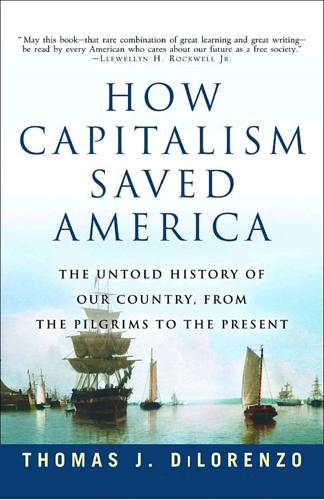
How Capitalism Saved America: The Untold History of Our Country, From the Pilgrims to the Present
by
Thomas J. Dilorenzo
Published 9 Aug 2004
If all this is accomplished, says Schlosser, the great day may arrive when restaurants sell “free-range, organic, grass-fed hamburgers.”31 It is remarkable how Schlosser does little more than repackage some of the same old myths about capitalism that earlier generations of muckraking journalists perpetrated. Indeed, on the back of the paperback edition of Fast Food Nation is a blurb from the San Francisco Chronicle proclaiming that Schlosser is “channeling the spirits of Upton Sinclair and Rachel Carson.” Sinclair was the early-twentieth-century socialist author of the book The Jungle, which turned out to be a wildly inaccurate and unfair portrayal of the beef industry. Rachel Carson’s fable about the allegedly disastrous effects of pesticides, Silent Spring, became a classic of the environmental movement despite the fact that is was indeed a fable.
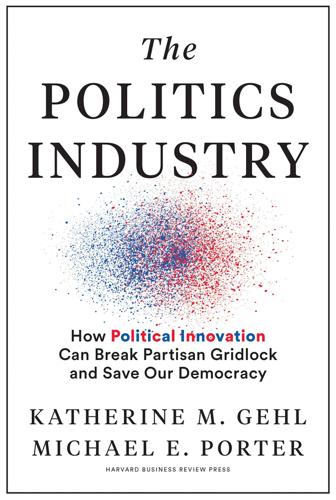
The Politics Industry: How Political Innovation Can Break Partisan Gridlock and Save Our Democracy
by
Katherine M. Gehl
and
Michael E. Porter
Published 14 Sep 2020
McClure, 1904) declared that even more to blame than the political bosses were the members of the public who benefitted from the corruption and, more shameful still, those who did not benefit but remained apathetic, complacent, or cynical. For more, see Frank Norris, The Octopus: A Story of California (Leipzig, Germany: Bernhard Tauchnitz, 1901); Ida Tarbell, The History of the Standard Oil Company (Mineola, NY: Dover Publications, 1901); Upton Sinclair, The Jungle (New York: Doubleday, 1904); Lincoln Steffens, The Shame of the Cities (Bloomingdale, IL: McClure, Philips, and Co, 1904); David Graham Phillips, “The Treason of the Senate,”Cosmopolitan, 1906. Link and McCormick write that “Progressivism cannot be understood without seeing how the masses of Americans perceived and responded to such events.
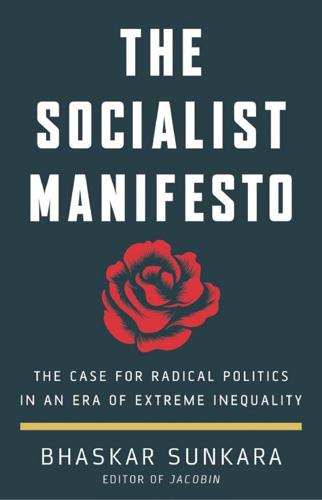
The Socialist Manifesto: The Case for Radical Politics in an Era of Extreme Inequality
by
Bhaskar Sunkara
Published 1 Feb 2019
As the Socialist Party took off, and with Debs as a supporter and contributor, circulation grew to the hundreds of thousands. At its peak, Appeal to Reason was the fourth-most-read publication in the country and spawned a broader publishing empire, popularizing authors including Jack London and Upton Sinclair. ALL WAS NOT well in the socialist camp, however, with the party riven along ideological lines similar to those that fractured the Social Democrats in Germany. On the right, Victor Berger proved himself to be an American Eduard Bernstein in his advocacy for evolutionary change within the system as the path to socialism.
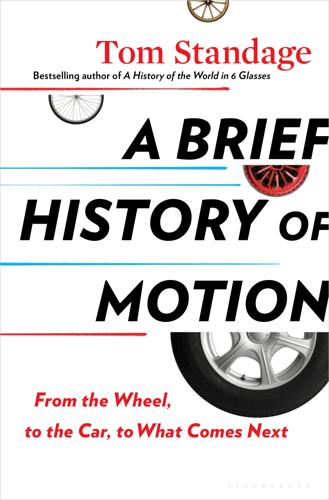
A Brief History of Motion: From the Wheel, to the Car, to What Comes Next
by
Tom Standage
Published 16 Aug 2021
During the 1930s the globe lights gave way to colored neon, another first attributed to Pig Stand, along with the introduction of deep-fried onion rings and the chicken-fried steak sandwich. White Castle, a rival fast-food pioneer, launched in the same year, in Wichita, Kansas. It sold ground-beef hamburgers, which many Americans were reluctant to eat, given the poor sanitary practices of the meatpacking industry, highlighted in Upton Sinclair’s 1906 book, The Jungle. To reassure customers about sanitary standards, White Castle restaurants had spotless interiors, with white enamel tiles and stainless steel. Open kitchens made the food preparation clearly visible to customers, and staff wore clean white uniforms and black bow ties. White Castle’s founders, Walter Anderson and Billy Ingram, systematized the production of hamburgers, pre-weighing and pre-shaping them for consistency and serving them with cooked onions in a specially designed bun.
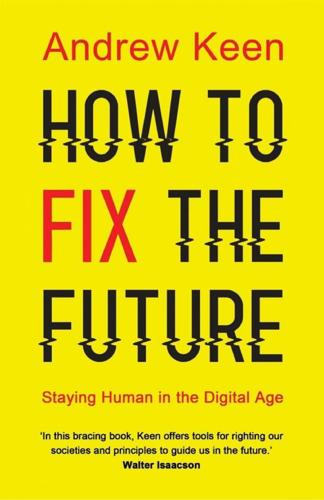
How to Fix the Future: Staying Human in the Digital Age
by
Andrew Keen
Published 1 Mar 2018
As it happens, the American meatpacking industry is a good example of how these tools can combine to improve the world. Public outcry about unsafe and unclean production practices and adulterated meats, notably the scandal of the “embalmed” meat served to soldiers in the Spanish-American War, led to the publication of Upton Sinclair’s muckraking novel The Jungle and to Teddy Roosevelt’s signing of the Meat Inspection Act of 1906. This act, among other sanitary provisions, made government inspection mandatory. Since the latter half of the nineteenth century, civic groups like New York’s Ladies’ Health Protective Association, local agencies like the New York City Metropolitan Board of Health, and federal regulators had fought a recalcitrant slaughtering and packing industry that refused to see the benefits to itself in changing its business model.
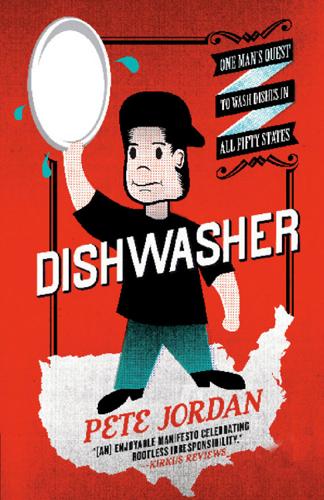
Dishwasher: One Man's Quest to Wash Dishes in All Fifty States (P.S.)
by
Pete Jordan
Published 1 May 2007
In another article, the sloppy journalism by the reporter led him to claim that the name of the zine was Dishwasher Pete. He alleged I’d dished in Fairbanks, Alaska (never had), and Alabama (hadn’t yet). He further claimed, “Dishwasher Pete could be to restaurant kitchens what Sinclair Lewis was to butcher shops.” I could’ve been wrong, but I believed the nitwit meant to compare me with Upton Sinclair and his 140 Dishwasher work in changing conditions in the meatpacking industry! (Which, of course, I wasn’t.) In total, the article contained forty-six errors. Another newspaper writer, after listening to me explain why I wasn’t interested in being interviewed, had the gall to use our off-the-record phone conversation to write his article.
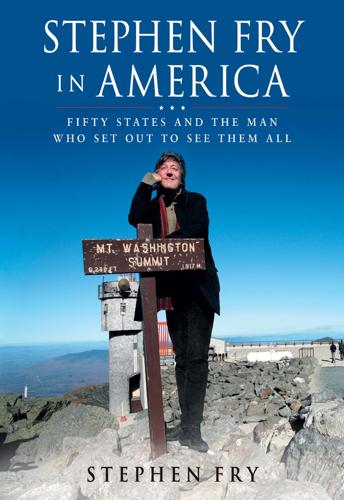
Stephen Fry in America
by
Stephen Fry
Published 1 Jan 2008
’ * * * MARYLAND KEY FACTS Abbreviation: MD Nickname: The Old Line State Capital: Annapolis Flower: Black-eyed Susan Tree: White oak Bird: Baltimore oriole Motto: Fatti maschii, parole femine (‘Manly deeds, womanly words’–I mean, what?) Well-known residents and natives: Spiro Agnew, Carl Bernstein, James M. Cain, Tom Clancy, Dashiell Hammett, H.L. Mencken, Ogden Nash, Edgar Allan Poe, Upton Sinclair, Leon Uris, Tori Amos, Toni Braxton, David Byrne, Cab Calloway, Philip Glass, Billie Holiday, Frank Zappa, David Hasselhoff, Goldie Hawn, Jim Henson, Spike Jonze, Edward Norton, John Waters, Johns Hopkins, George Peabody. * * * Well! Not wishing to humiliate this fine young waitress by exposing further ignorance of her own home state, nor wanting to rob her of my custom, I order a hot-dog and a root beer.
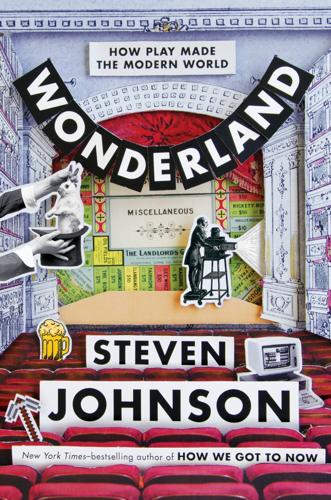
Wonderland: How Play Made the Modern World
by
Steven Johnson
Published 15 Nov 2016
The Landlord’s Game never became a mass hit, but over the years it developed an underground following. It circulated, samizdat-style, through a number of communities, with individually crafted game boards and rule books dutifully transcribed by hand. Students at Harvard, Columbia, and the Wharton School played the game late into the night; Upton Sinclair was introduced to the game in a Delaware planned community called Arden; a cluster of Quakers in Atlantic City, New Jersey, adopted it as a regular pastime. As it traveled, the rules and terminology evolved. Fixed prices were added to each of the properties. The Wharton players first began calling it “the monopoly game.”
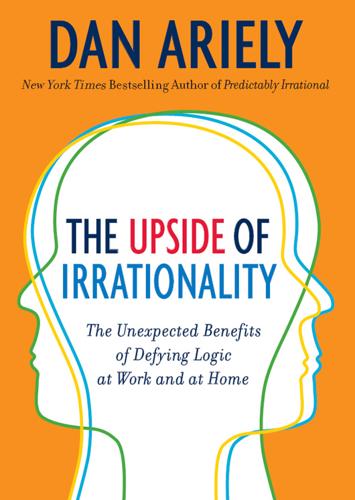
The Upside of Irrationality: The Unexpected Benefits of Defying Logic at Work and at Home
by
Dan Ariely
Published 31 May 2010
In response, I asked the audience to try on the idea that the focus on their upcoming bonuses might have a negative effect on their performance, but they refused to see my point. Maybe it was the alcohol, but I suspect that those folks simply didn’t want to acknowledge the possibility that their bonuses were vastly oversized. (As the prolific author and journalist Upton Sinclair once noted, “It is difficult to get a man to understand something when his salary depends upon his not understanding it.”) Somewhat unsurprisingly, when presented with the results of these experiments, the bankers also maintained that they were, apparently, superspecial individuals; unlike most people, they insisted, they work better under stress.
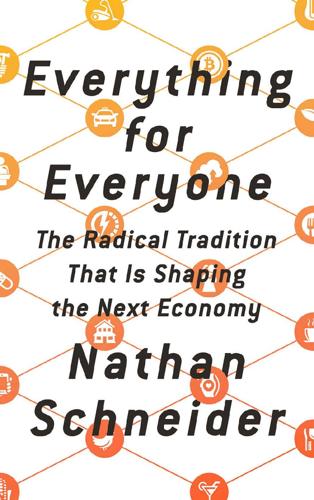
Everything for Everyone: The Radical Tradition That Is Shaping the Next Economy
by
Nathan Schneider
Published 10 Sep 2018
The New York papers shared ownership and control of the enterprise, and they sold their dispatches to other organizations beyond the docks of the Hudson.30 The temptations to hoard this news-gathering resource were immense, and their defeat came only gradually, over the course of a century. Early on, Upton Sinclair called AP “the most powerful and most sinister monopoly in America.” After a scandal resulted in its relocation to Chicago in 1897, the Illinois Supreme Court ruled against AP’s restrictions on membership as anti-competitive, and in 1900, the company came back to New York, which had more permissive laws for cooperative associations.
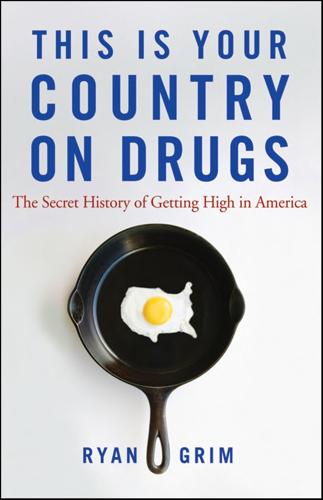
This Is Your Country on Drugs: The Secret History of Getting High in America
by
Ryan Grim
Published 7 Jul 2009
As such pieces galvanized women against the industry, Jane Addams, the legendary Chicago suffrage and antiwar activist, campaigned for a ban on the common patent-medicine ingredient cocaine, which passed in her hometown in 1904. In 1905, muck-raking journalist Samuel Hopkins Adams published an eleven-part investigative series in Collier’s Weekly exposing much of the patent-medicine industry as fraudulent. Upton Sinclair’s The Jungle followed soon after, helping convince President Theodore Roosevelt and the American public that a law regulating both drugs and food was needed. Historian James Harvey Young describes the coalition that got the Pure Food and Drug Act of 1906 through Congress as made up of “agricultural chemists, State food and drug officials, women’s club members, the medical profession, sympathetic journalists, [and] the reform wing of business.”
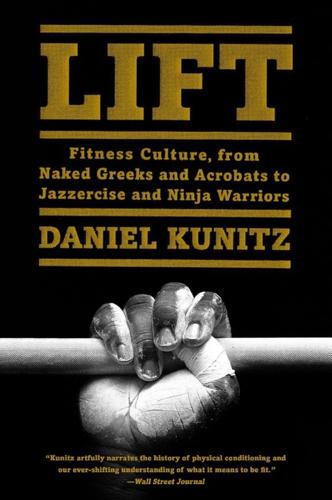
Lift: Fitness Culture, From Naked Greeks and Acrobats to Jazzercise and Ninja Warriors
by
Daniel Kunitz
Published 4 Jul 2016
He espoused eating very little, mostly raw vegetables, and in 1902 he opened a chain of vegetarian restaurants in New York; he was a nudist and was arrested for pedaling obscenity more than once; he fought against restrictive women’s clothing and for the rights of women, and proselytized for exercise of all sorts. His outlook shared much with the Lebensreform movement, which arose in Germany in the late nineteenth century, as well as with New York’s nascent bohemia, and the era’s reformist politics. Physical Culture included in its pages essays by such prominent reformers as Upton Sinclair and George Bernard Shaw. Macfadden boasted a large personality, and though one side of him tapped into the countercultural aspect of fitness, the other was no less in step with the era’s glorification of the capitalist ethic. “Be like me,” he urged audiences and readers—a wealthy businessman with boundless energy.
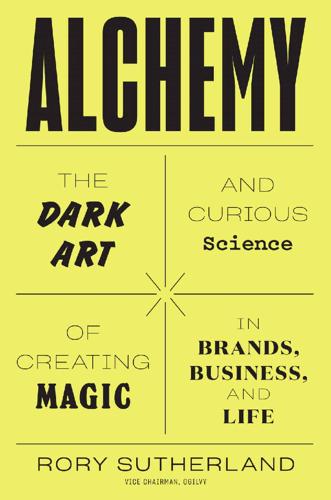
Alchemy: The Dark Art and Curious Science of Creating Magic in Brands, Business, and Life
by
Rory Sutherland
Published 6 May 2019
Surgeons felt challenged by keyhole surgery and other new, less invasive procedures that can be carried out with the support of radiographers, because they used skills different from those that they had spent a lifetime perfecting. Similarly, you can imagine how London black cab drivers feel about Uber. As the novelist Upton Sinclair once remarked, ‘It is difficult to get a man to understand something, when his salary depends on his not understanding it.’ One of the common arguments against vaping was that it renormalised smoking, because it looks a bit like smoking. I find that quite hard to believe, frankly. Whatever you think about smoking, it does look fairly cool – a remake of Casablanca with the cigarettes replaced with vaporisers would be somewhat less romantic.
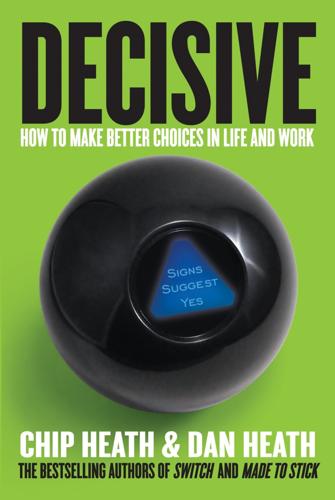
Decisive: How to Make Better Choices in Life and Work
by
Chip Heath
and
Dan Heath
Published 26 Mar 2013
(So, scientifically speaking, you’d probably read twice as many four-star reviews as two-star reviews.) The meta-study found that the confirmation bias was stronger in emotion-laden domains such as religion or politics and also when people had a strong underlying motive to believe one way or the other (as in Upton Sinclair’s observation, “It is difficult to get a man to understand something when his salary depends on his not understanding it!”). The confirmation bias also increased when people had previously invested a lot of time or effort in a given issue. In the previous section, we saw that it’s crucial to Widen Our Perspective in order to break out of a narrow frame; by doing that, we expand the number of options open to us.
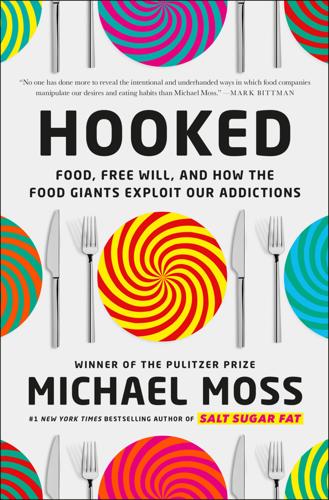
Hooked: Food, Free Will, and How the Food Giants Exploit Our Addictions
by
Michael Moss
Published 2 Mar 2021
We started to worry about the way the industry was engineering its products for taste, texture, and color at the expense of purity and wholesomeness. Our worrier in chief at that time, Ralph Nader, made the cover of Time magazine with a string of hot dogs in 1969 when he turned his consumer activism toward food, focusing initially on processed meat. In an earlier essay, he had evoked the work of the slaughterhouse muckraker Upton Sinclair and the environmentalist Rachel Carson in raising new alarms about processed food. “It took some doing to cover up meats from tubercular cows, lump-jawed steers and scabby pigs in the old days,” he wrote. “Now the wonders of chemistry and quick-freezing techniques provide the cosmetics for camouflaging the products and deceiving the eyes, nostrils and taste buds of the consumer.
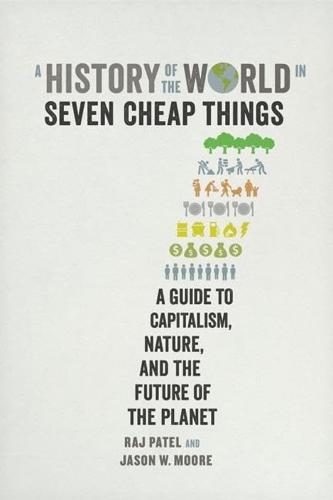
A History of the World in Seven Cheap Things: A Guide to Capitalism, Nature, and the Future of the Planet
by
Raj Patel
and
Jason W. Moore
Published 16 Oct 2017
Its innovations built directly and immediately on the industrialization of the nineteenth-century family farm, the displacements that such farming enabled, and the technologies developed in its downstream food-processing industries—perhaps above all meat-packing’s “disassembly lines.”52 The food system was a laboratory for the spectrum of worker-management practices from slavery to unionized wage work. But it also provided an opportunity for workers to imagine politics differently. On these lines, as Upton Sinclair wrote in The Jungle, immigrant workers organized not just for better working conditions but for new ways to control the world. Although The Jungle is now remembered in the United States as a stomach-churning story of animal and worker cruelty, it concludes with the speech of a street organizer: Organize!
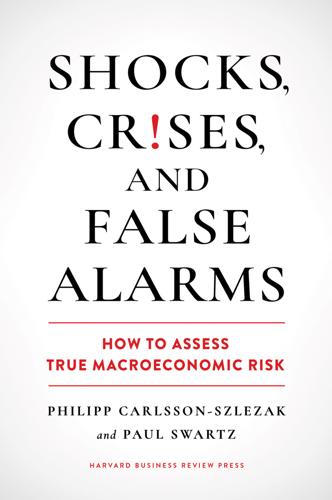
Shocks, Crises, and False Alarms: How to Assess True Macroeconomic Risk
by
Philipp Carlsson-Szlezak
and
Paul Swartz
Published 8 Jul 2024
US Government Accountability Office (GAO), “Drones: FAA Should Improve Its Approach to Integrating Drones into the National Airspace System,” GAO-23-105189, January 26, 2023, https://www.gao.gov/products/gao-23-105189. 5. Big regulatory resets in US history were driven by popular backlash, typically stoked by journalists and activist writers. Ida Tarbell’s work contributed to the breakup of Standard Oil (1911), Upton Sinclair paved the way for the creation of the FDA to regulate food safety (1906), and Rachel Carson’s work is associated with the creation of the EPA (1970). In each case, regulators responded rather than drove the agenda. Philipp Carlsson-Szlezak and Paul Swartz, “Popular Outrage, not Economics, Will Determine the Fate of Big Tech,” Fortune, August 18, 2021, https://fortune.com/2021/08/18/big-tech-breakup-antitrust-popular-outrage-facebook-google-standard-oil-microsoft/.
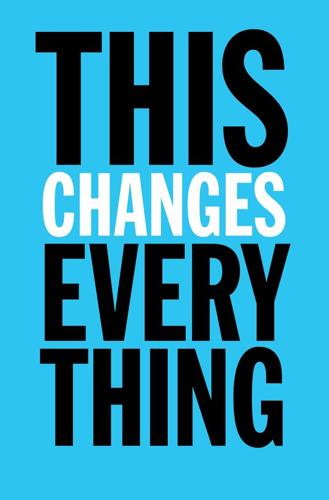
This Changes Everything: Capitalism vs. The Climate
by
Naomi Klein
Published 15 Sep 2014
While 97 percent of active climate scientists believe humans are a major cause of climate change, the numbers are radically different among “economic geologists”—scientists who study natural formations so that they can be commercially exploited by the extractive industries. Only 47 percent of these scientists believe in human-caused climate change. The bottom line is that we are all inclined to denial when the truth is too costly—whether emotionally, intellectually, or financially. As Upton Sinclair famously observed: “It is difficult to get a man to understand something, when his salary depends upon his not understanding it!”36 Plan B: Get Rich off a Warming World One of the most interesting findings of the many recent studies on climate perceptions is the clear connection between a refusal to accept the science of climate change and social and economic privilege.
…
Hamilton, “Climate Change: Partisanship, Understanding, and Public Opinion,” Carsey Institute, Spring 2011, p. 4; “Vast Majority Agree Climate Is Changing,” Forum Research, July 24, 2013, p. 1, http://www.forumresearch.com. 36. Doran and Zimmerman, “Examining the Scientific Consensus on Climate Change,” 23; Upton Sinclair, I, Candidate for Governor: And How I Got Licked (Berkeley: University of California Press, 1994), 109. 37. Personal email communication with Aaron McCright, September 30, 2011; Aaron McCright and Riley Dunlap, “Cool Dudes: The Denial of Climate Change Among Conservative White Males in the United States,” Global Environmental Change 21 (2011): 1167, 1171. 38.
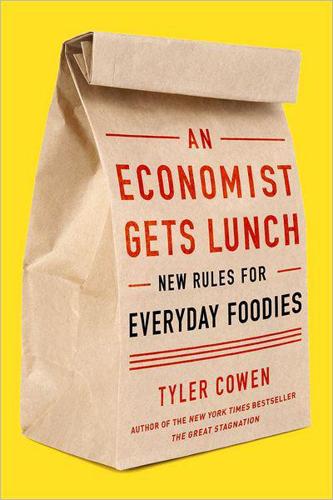
An Economist Gets Lunch: New Rules for Everyday Foodies
by
Tyler Cowen
Published 11 Apr 2012
Food prices have been rising, contributing to political unrest in Egypt and Tunisia, and help on this front seems far away. Countries are stockpiling foodstuffs; and when prices spike, governments shut down food exports with the ostensible goal of feeding their populations. The global trade network isn’t as robust as we have wanted to believe. Since Upton Sinclair self-published The Jungle, his exposé of the meat packing industry in Chicago in 1906, Americans have been repeatedly alerted to disturbing realities of their food quality and economy. However, this is an especially critical moment. When it comes to food, the whole world needs some big changes.
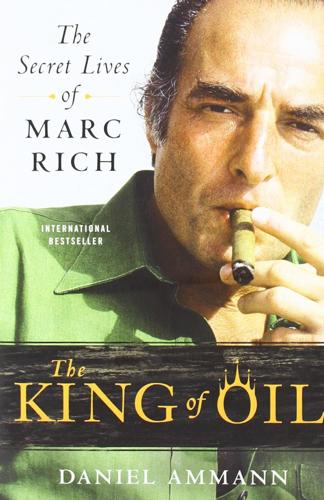
The King of Oil: The Secret Lives of Marc Rich
by
Daniel Ammann
Published 12 Oct 2009
It was probably only a matter of days until the German troops would also attack France via Belgium. By the spring of 1940 it was easy to predict what would then happen to a Jewish family. The racist Nuremberg Laws, which systematically discriminated against and disenfranchised the Jews, had already been in force in Germany since 1935. Books by Kurt Tucholsky, Upton Sinclair, Sigmund Freud, Anna Seghers, and Lion Feuchtwanger had been publicly burned. Jews were effectively excluded from economic, political, and social life in the German Reich. Following legal discrimination and the expropriation of Jewish property, the Kristallnacht in November 1938 signaled the start of their physical persecution as well.
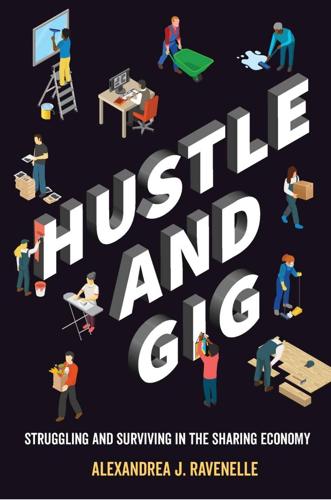
Hustle and Gig: Struggling and Surviving in the Sharing Economy
by
Alexandrea J. Ravenelle
Published 12 Mar 2019
In 1914, according to a report of the Commission on Industrial Relations, thirty-five thousand workers were killed in industrial accidents and seven hundred thousand were injured.6 Populist support for an organized workers movement began to grow in the first decade of the twentieth century, assisted by the “muckrakers” movement of reform-minded journalists. The most famous of these was Upton Sinclair, author of The Jungle, who wrote about the appalling working conditions in Chicago slaughterhouses, the distribution of diseased and rotten meat, and the adulteration of food through the addition of cheap fillers. Sinclair’s work led to the development of the Food and Drug Act of 1906, the Meat Inspection Act of 1906, and the creation of the Food and Drug Administration.
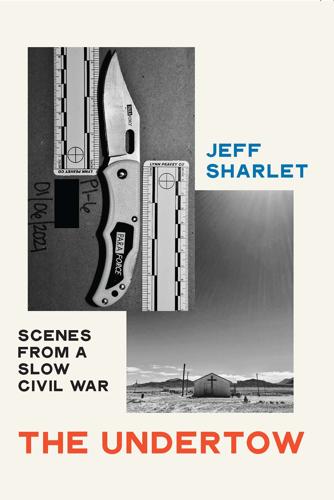
The Undertow: Scenes From a Slow Civil War
by
Jeff Sharlet
Published 21 Mar 2023
The people said, wake up, it’s time to learn, Time to get together, drive the evil men out And make a new land in our own South. But it was Lee, no fighter, who got driven out, running north by stages. To Cleveland, where he educated himself working in a library, reading all the books marked by a special black rubber stamp as unsuitable for respectable people—Lady Chatterley’s Lover, by D. H. Lawrence; Upton Sinclair’s The Jungle; Walt Whitman, suspected of desires similar to Lee’s; tales from a renaissance said to be taking place in Harlem. From Cleveland to Philadelphia, where he became “Uncle Lee” to the household of the avant-garde poet Walter Lowenfels; and from there to New York City, where he shared a place on West Tenth Street with a gangly green banjo picker named Pete Seeger, cataloguer of five hundred songs, enthrallee of Lee’s Southern storytelling bona fides.
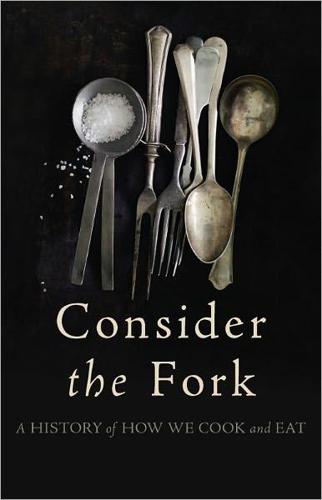
Consider the Fork: A History of How We Cook and Eat
by
Bee Wilson
Published 14 Sep 2012
“Dressed beef” could be cooled, stored, and shipped anywhere. The new refrigerated cars had fierce critics, as do all new food technologies. Local butchers and slaughterhouses objected to the loss of business and lamented Chicago’s growing monopoly on meat (and judging from the horrific conditions in Chicago meatpacking factories described in Upton Sinclair’s The Jungle, they may have had a point). More generally, the population at large was scared of the very thing that made refrigeration so useful: its ability to extend the storage time of food. Alongside the growth in refrigerated cars was a huge growth in cold-storage warehouses. By 1915, 100 million tons of butter in America were in cold storage.
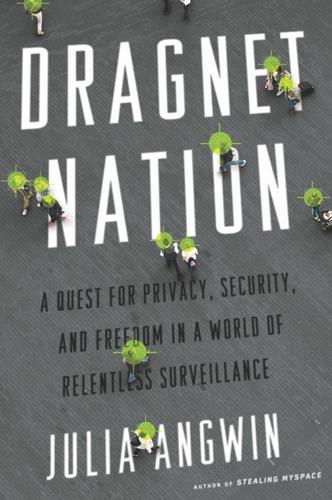
Dragnet Nation: A Quest for Privacy, Security, and Freedom in a World of Relentless Surveillance
by
Julia Angwin
Published 25 Feb 2014
But I wasn’t looking for perfect; I just wanted to force the trackers to put some effort into tracking me specifically, rather than sweeping up data about me effortlessly. I chose Ida because she is part of a generation of journalists that I admire. Known as “muckrakers,” investigative journalists such as Ida Tarbell and Upton Sinclair exposed the underbelly of the industrial revolution, from monopolistic price gouging by the trusts to working conditions in slaughterhouses. Their work led to laws that reined in the worst excesses of the era. I believe that today we are at a similar turning point. As our nation shifts toward an information economy, there are few laws policing the booming industry giants and few governmental or nonprofit institutions with the technical savvy to police the information economy.
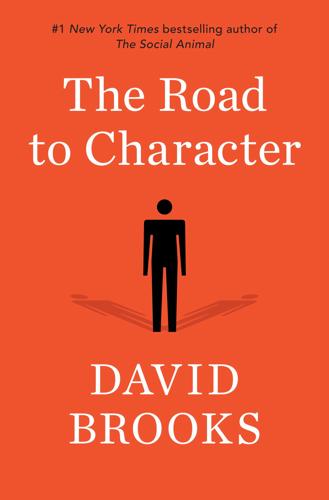
The Road to Character
by
David Brooks
Published 13 Apr 2015
My own silence, the feeling that I had no one to talk to overwhelmed me so that my very throat was constricted; my heart was heavy with unuttered thoughts; I wanted to weep my loneliness away.”7 During this lonely period she became indignant at the poverty she saw in New York, its different smell from the poverty she had seen in Chicago. “Everyone must go through something analogous to a conversion,” she would later write, “conversion to an idea, a thought, a desire, a dream, a vision—without vision the people perish. In my teens I read Upton Sinclair’s The Jungle and Jack London’s The Road and became converted to the poor, to a love for and desire to be always with the poor and suffering—the workers of the world. I was converted to the idea of the Messianic mission of the proletariat.” Russia was very much on people’s minds then. Russian writers defined the spiritual imagination.
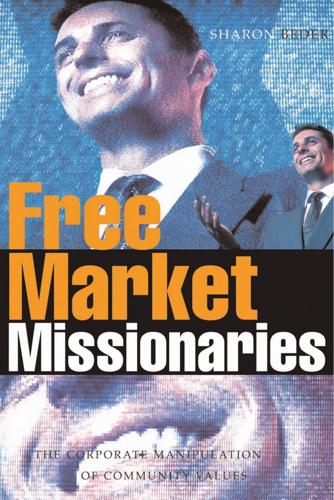
Free Market Missionaries: The Corporate Manipulation of Community Values
by
Sharon Beder
Published 30 Sep 2006
So-called muckraking journalists effectively exposed the corruption, exploitation and inhuman working conditions by which the majority of the great corporations had prospered. Magazines such as McClures, Everybodys, Cosmopolitan, Colliers and The American carried exposés of big business activities. Authors such as Upton Sinclair, Ida Tarbells, Tom Lawson, Gustavus Myers and others revealed the realities of the power of these corporations.7 The respect once commanded by those who owned and headed these corporations was progressively eroded as the ruthless exploitation involved in building up THE FREE MARKET GOSPEL 3 their empires was disclosed.
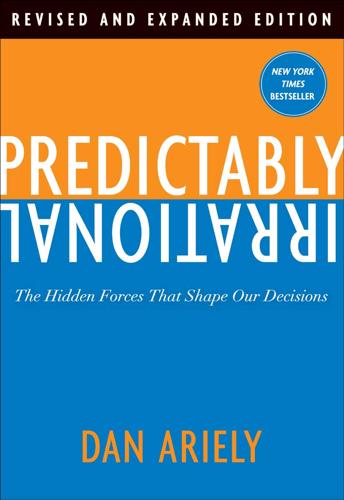
Predictably Irrational, Revised and Expanded Edition: The Hidden Forces That Shape Our Decisions
by
Dan Ariely
Published 19 Feb 2007
Even good people are not immune to being partially blinded by their own minds. This blindness allows them to take actions that bypass their own moral standards on the road to financial rewards. In essence, motivation can play tricks on us whether or not we are good, moral people. As the author and journalist Upton Sinclair once noted, “It is difficult to get a man to understand something when his salary depends upon his not understanding it.” We can now add the following thought: it is even more difficult to get a man to understand something when he is dealing with nonmonetary currencies. THE PROBLEMS OF dishonesty, by the way, don’t apply just to individuals.
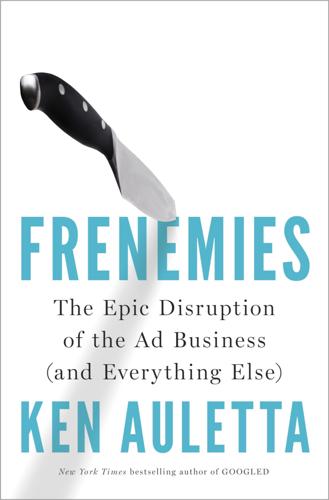
Frenemies: The Epic Disruption of the Ad Business
by
Ken Auletta
Published 4 Jun 2018
And have citizens really ceded their ownership when they click “Accept” or “Agree”? “The entire economics of marketing depends on the answer to that question,” Marshall says. It depends on one other question as well: What does government say? The U.S. government has at times stepped in to regulate advertising. Inspired in part by Upton Sinclair’s The Jungle, Congress in 1906 passed the Pure Food and Drug Act, requiring what was advertised on food and drug labels to accurately disclose all ingredients. In the 1930s, a variety of New Deal legislation was adopted creating oversight of how certain products, including drugs and cosmetics that might pose health hazards, could be advertised.
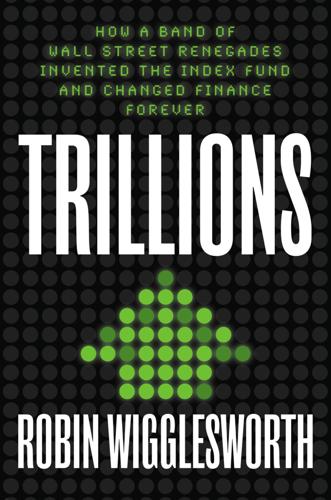
Trillions: How a Band of Wall Street Renegades Invented the Index Fund and Changed Finance Forever
by
Robin Wigglesworth
Published 11 Oct 2021
The investment manager turned historian Peter Bernstein recounts that at the time one former colleague sputtered that he wouldn’t buy the S&P 500 even for his mother-in-law.30 The Leuthold Group, a Minneapolis-based financial research group, famously distributed a poster where Uncle Sam declared, “Help stamp out index funds. Index funds are un-American!” Copies continue to float around the offices of index fund managers as mementos of the hostility they initially faced. Of course, as the writer Upton Sinclair once observed, it is difficult to get someone to understand something when their salary depends on them not understanding it. “If people start believing this random-walk garbage and switch to index funds, a lot of $80,000-a-year portfolio managers and analysts will be replaced by $16,000-a-year computer clerks.
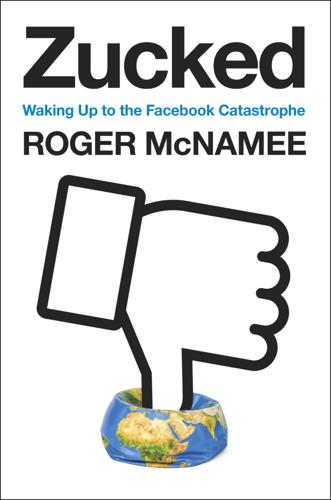
Zucked: Waking Up to the Facebook Catastrophe
by
Roger McNamee
Published 1 Jan 2019
What we got instead was polite interest but little in the way of follow-up. We should not have been surprised. Facebook, Google, Twitter, LinkedIn, Instagram, Snapchat, WhatsApp, and the other social players have created more than one trillion dollars in wealth for their executives, employees, and investors, many of whom attend TED. To paraphrase Upton Sinclair, it is difficult to get a person to embrace an idea when his or her net worth depends on not embracing it. We took two insights away from TED: we needed to look outside tech for allies, and we needed to consider other formulations of our message besides brain hacking. If we were to have any hope of engaging a large audience, we needed to frame our argument in ways that would resonate with people outside Silicon Valley. 5 Mr.
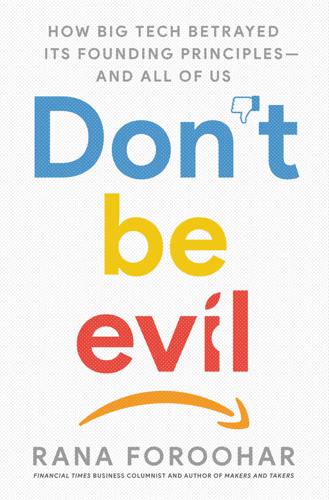
Don't Be Evil: How Big Tech Betrayed Its Founding Principles--And All of US
by
Rana Foroohar
Published 5 Nov 2019
The short answer—yes. If governments are empowered to restrict mind-altering drugs, then why not limit mind-altering technology, whose effects, being more profound and more ubiquitous, pose a greater hazard? The Food and Drug Administration was established back in 1906 in response to the outrage raised by Upton Sinclair’s The Jungle, a searing account of the nauseating health hazards created by an unregulated meatpacking industry. I’m hoping that Don’t Be Evil might help create a similar environment that would foster the creation of a digital FDA for the brain, as the current FDA is for the body. It would study the effects of all the new technology—not just on our own mental health, but the health of the nation—and offer sensible regulations to ensure that the technology that’s now so indispensable is in service to us, not betraying us.
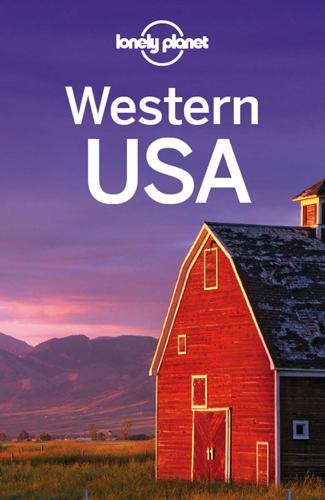
Western USA
by
Lonely Planet
The arrival of more people and resources via the railroad led to further land exploration and the frequent discovery of mineral deposits. Many Western mining towns were founded in the 1870s and 1880s; some are now ghost towns like Santa Rita while others like Tombstone and Silver City remain active. THE LONG WALK & APACHE CONFLICTS The Oscar-winning There Will Be Blood (2007), adapted from Upton Sinclair’s book Oil!, depicts a Californian oil magnate and was based on real-life SoCal tycoon Edward Doheny. For decades, US forces pushed west across the continent, killing or forcibly moving whole tribes of Native Americans who were in their way. The most widely known incident is the forceful relocation of many Navajo in 1864.
…
Social Realism Arguably the most influential author ever to emerge from California was John Steinbeck, who was born in Salinas in 1902. His masterpiece of social realism, The Grapes of Wrath, tells of the struggles of migrant farm workers. Playwright Eugene O’Neill took his 1936 Nobel Prize money and transplanted himself to near San Francisco, where he wrote the autographical play Long Day’s Journey into Night. Upton Sinclair’s Oil! , which inspired Paul Thomas Anderson’s movie There Will Be Blood , was a muckraking work of historical fiction with socialist overtones. Pulp Noir & Mysteries In the 1930s, San Francisco and Los Angeles became the capitals of the pulp detective novel. Dashiell Hammett (The Maltese Falcon) made San Francisco’s fog a sinister character.
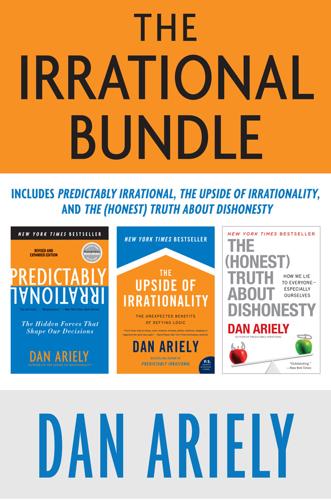
The Irrational Bundle
by
Dan Ariely
Published 3 Apr 2013
Even good people are not immune to being partially blinded by their own minds. This blindness allows them to take actions that bypass their own moral standards on the road to financial rewards. In essence, motivation can play tricks on us whether or not we are good, moral people. As the author and journalist Upton Sinclair once noted, “It is difficult to get a man to understand something when his salary depends upon his not understanding it.” We can now add the following thought: it is even more difficult to get a man to understand something when he is dealing with nonmonetary currencies. THE PROBLEMS OF dishonesty, by the way, don’t apply just to individuals.
…
In response, I asked the audience to try on the idea that the focus on their upcoming bonuses might have a negative effect on their performance, but they refused to see my point. Maybe it was the alcohol, but I suspect that those folks simply didn’t want to acknowledge the possibility that their bonuses were vastly oversized. (As the prolific author and journalist Upton Sinclair once noted, “It is difficult to get a man to understand something when his salary depends upon his not understanding it.”) Somewhat unsurprisingly, when presented with the results of these experiments, the bankers also maintained that they were, apparently, superspecial individuals; unlike most people, they insisted, they work better under stress.
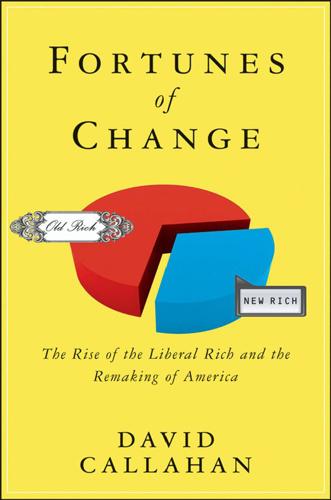
Fortunes of Change: The Rise of the Liberal Rich and the Remaking of America
by
David Callahan
Published 9 Aug 2010
They committed $30 million over three years to the group, whose mission was to produce “journalism that shines a light on exploitation of the weak by the strong and on the failures of those with power to vindicate the trust placed in them.” For years, various liberal journalists had tried to start something similar to ProPublica, only to find that funding was elusive. Wealthy donors simply weren’t interested in funding modern-day Upton Sinclairs and the kind of muckraking that had advanced reforms in previous eras. For instance, Russ Baker, a veteran investigative reporter, hit a brick wall with funders when he tried to start something called the Real News Project. Yet after less than a year— thanks to one checkbook—ProPublica emerged from scratch to have bustling headquarters in New York’s financial district and a staff of more than twenty editors and investigative reporters.
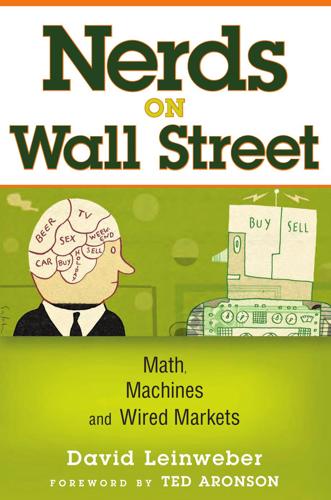
Nerds on Wall Street: Math, Machines and Wired Markets
by
David J. Leinweber
Published 31 Dec 2008
He said no one takes projections seriously and if something negative affects the projection down the road, you can always point to something in the environment that nobody would have expected you to have known. Well, consequently, I stuck to my guns and refused to cut out of the Shooting the Moon 301 report the downside scenarios. I told them that I would supply the complete report and if they wanted to alter it, then that was up to them, not me. Upton Sinclair wrote, “It is difficult to get a man to understand something when his salary depends upon his not understanding it.” When I first tried to get some traction on understanding these issues, I hoped that this would turn out to be an unforeseeable, unavoidable confluence of independent events. It wasn’t.
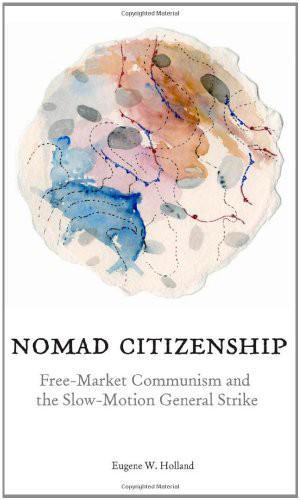
Nomad Citizenship: Free-Market Communism and the Slow-Motion General Strike
by
Eugene W. Holland
Published 1 Jan 2009
Saul Alinsky is no doubt the best-known propo nent and practitioner of neighborhood organization as a political weapon for the urban dispossessed, although it is not clear the extent to which his and his followers’ neighborhood groups are self-organizing and the extent to which they are organized in top-down fashion by more or less profes sional community organizers (community organizing having become a branch of the social work profession after World War I). Alinksy started organizing in the infamous “Back of the Yards” area of Chicago (featured in Upton Sinclair’s The Jungle) in the late 1930s and had developed a nationwide strategy for and network of neighborhood organizations by the time he died in 1972. And neighborhood organization has been and continues to be pursued by a variety of groups, including the American Communist Party, labor unions, the Black Panther Party, and others less well known and too numerous to mention.
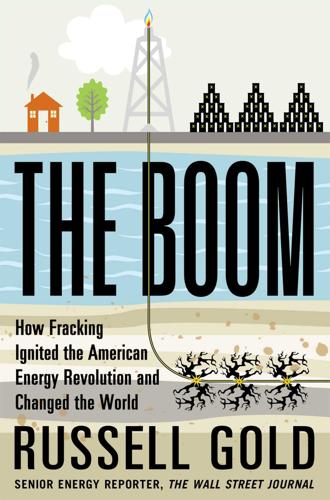
The Boom: How Fracking Ignited the American Energy Revolution and Changed the World
by
Russell Gold
Published 7 Apr 2014
Not long after Chesapeake inquired about leasing the Farm, my father spent a day driving around to visit neighbors and discovered that many had signed leases already. The reality sunk in. Future drilling locations surrounded the Farm. “We believed they would go under our property and get the gas anyway,” he told me later. It is an old fear. At the beginning of his classic novel Oil!, Upton Sinclair captured how the industry played on this worry. “Take it from me as an oilman,” the budding tycoon J. Arnold Ross tells a group of neighbors. “There ain’t a-goin’ to be many gushers here at Prospect Hill; the pressure under the ground will soon let up, and it’ll be them that get their wells down first that’ll get the oil.”
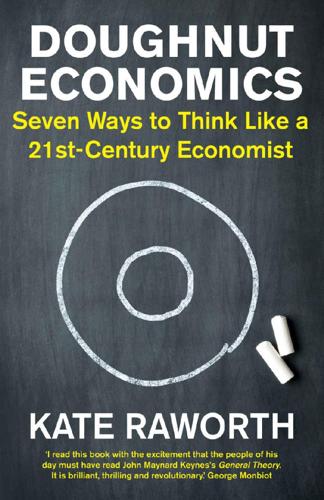
Doughnut Economics: Seven Ways to Think Like a 21st-Century Economist
by
Kate Raworth
Published 22 Mar 2017
At the same time all of these countries’ global ecological footprints already far exceed Earth’s capacity: it would take four planets for everyone in the world to live as they do in Sweden, Canada and the US, and five planets for all to live like an Australian or Kuwaiti.16 Does this suggest that, while aiming to get into the Doughnut, high-income countries should give up on the pursuit of GDP growth and accept that it might no longer be possible? That is not a comfortable question to consider. As Upton Sinclair famously noted, ‘It is difficult to get a man to understand something, when his salary depends on his not understanding it.’17 Some staff at the OECD must be struggling with this now because, whether or not growth can be green and equitable, it doesn’t look like growth is coming in some of the world’s richest nations.

Arriving Today: From Factory to Front Door -- Why Everything Has Changed About How and What We Buy
by
Christopher Mims
Published 13 Sep 2021
It was in no small part her work that meant “modern technology enabled the American housewife of 1950 to produce singlehandedly what her counterpart of 1850 needed a staff of three or four to produce: a middle class standard of health and cleanliness for herself, her spouse and her children,” wrote historian Ruth Schwartz Cowan. One of many ironies of scientific management is that by the measure of its ability to reduce the total quantity of humanity’s labors, it was a complete failure. Taylorism was in the end not an efficiency but a productivity movement. Taylor himself recognized this. When Upton Sinclair, newly famous as the muckraking author of The Jungle, wrote a letter to The American Magazine critical of how little a worker’s wage increased in Taylor’s depiction in his Principles of Scientific Management, Taylor responded that Sinclair had missed the point entirely. Throughout history, it wasn’t the worker who benefited the most from increased efficiency, or even his boss.
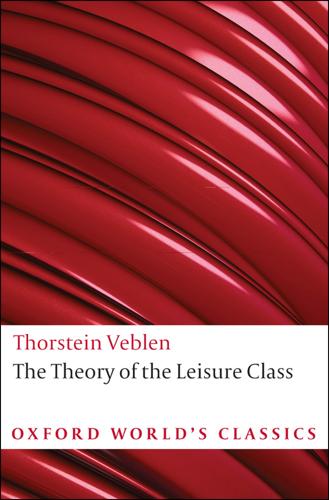
The Theory of the Leisure Class
by
Thorstein Veblen
Published 10 Oct 2007
Charlotte Perkins Gilman, Women and Economics 1899 Publication of The Theory of the Leisure Class: An Economic Study of the Evolution of Institutions, title later changed to The Theory of the Leisure Class: An Economic Study of Institutions. 1900 Sigmund Freud, The Interpretation of Dreams; Theodore Dreiser, Sister Carrie 1901–9 Progressive Era ‘muckrakers’ protest against social evils in the press; President Theodore Roosevelt attacks the Trusts; publication of Frank Norris’s The Octopus and The Pit and Upton Sinclair’s The Jungle—exposés of business greed and corruption; Henry James’s The American Scene examines social consequences of the expenditure of great wealth. 1901 Booker T. Washington, Up from Slavery 1903 Lester Frank Ward, Pure Sociology; W. E. B. Du Bois, The Souls of Black Folk 1905 Albert Einstein submits his first paper on the special theory of relativity.
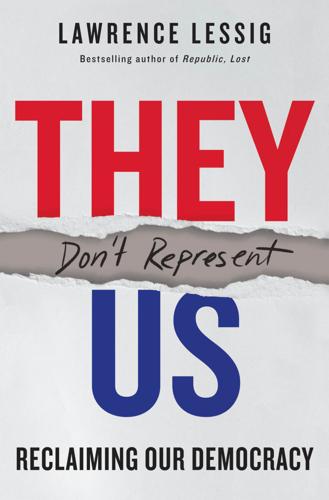
They Don't Represent Us: Reclaiming Our Democracy
by
Lawrence Lessig
Published 5 Nov 2019
Like ordinary life, we could come to understand the characters of that story, and the facts that constrain them, much more completely than ever before. Of course, it has always been the case that the great lessons of morality and politics have been taught through literature, not philosophy. Society understood itself through the novel, not the political tract. Whether Jane Austen, Edith Wharton, or Upton Sinclair, it was in the richness of stories that society came to understand what it was, and then from that understanding resolved to become something different. Professors and pundits are just who we say matters; who we know matters is something quite different. The difference today is just that these narratives get carried to video.
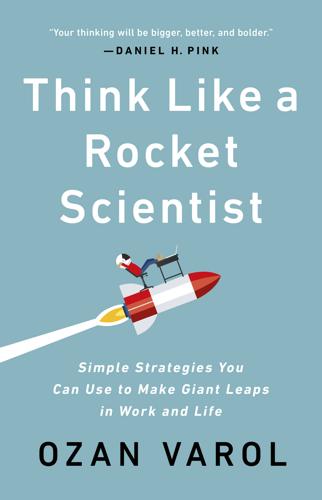
Think Like a Rocket Scientist: Simple Strategies You Can Use to Make Giant Leaps in Work and Life
by
Ozan Varol
Published 13 Apr 2020
But more often than not, we stick with the default even when the benefits of change far exceed the costs. Vested interests also reinforce the status quo. High-level executives at Fortune 500 companies shun innovation because their compensation is tied to short-term quarterly outcomes that may be temporarily disrupted by forging a new path. “It’s difficult to get a man to understand something,” Upton Sinclair said, “when his salary depends on his not understanding it.” If you were a horse breeder in Detroit in the early 1900s, you would have assumed that your competition was other breeders raising stronger and faster horses. If you ran a cab company ten years ago, you would have assumed that your competition was other cab companies.
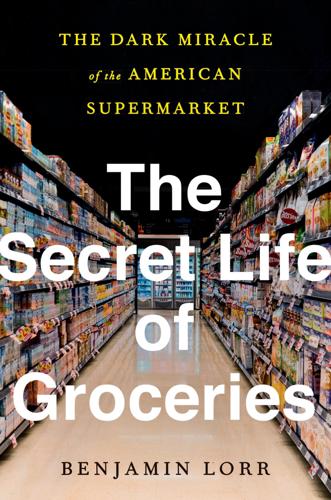
The Secret Life of Groceries: The Dark Miracle of the American Supermarket
by
Benjamin Lorr
Published 14 Jun 2020
That we would happily trade away aspects of our lives—be it community or duty or eccentricity or care—for an ability to survive between them. I came to see this as the very juncture where grocery sits, the store constantly recalibrating as we decide what of ourselves to trade away. To think of it another way, ever since Eric Schlosser and Fast Food Nation came into my life, and of course there was Upton Sinclair and many other muckrakers before him, there has been a very American idea that the closer we look at our food, the more disgusting it will turn out to be. And this always seems to be the case! Every time the best food minds and investigative journalists dig into a particular part of the supply chain they find some new horror.
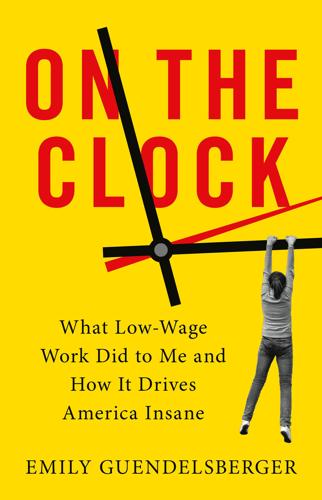
On the Clock: What Low-Wage Work Did to Me and How It Drives America Insane
by
Emily Guendelsberger
Published 15 Jul 2019
Others who replaced them just physically couldn’t do it and quit or just stopped showing up. From notes taken at the time: We found that [Gruen] was not fitted for such heavy work. Roth on this day loaded 43 tons, earning $1.63, but after this day did not return to work. Koch and Howarth [claimed] that they could not earn a fair day’s wages at this work. Journalist Upton Sinclair, whose The Jungle was the catalyst for reforms in the meatpacking industry, wrote a horrified letter to American Magazine in response to its publication of the excerpted Story of Schmidt. “I shall not soon forget the picture which he gave us,” wrote Sinclair, of Schmidt and his fellow workers at Bethlehem Steel, “induced to give 362 per cent more service for 61 per cent more pay.”
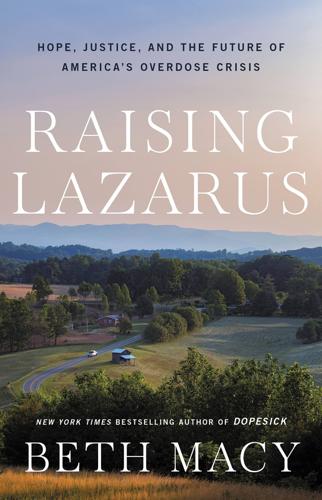
Raising Lazarus: Hope, Justice, and the Future of America’s Overdose Crisis
by
Beth Macy
Published 15 Aug 2022
She accused him of siphoning off company money before opioid victims could file litigation claims against Purdue, a strategy he vigorously denied. An Illinois congressman displayed slides of David Sackler’s sprawling homes in Bel Air and Manhattan. A Tennessee congressman derided David’s question-dodging by quoting Upton Sinclair: “A man has difficulty understanding something if his salary depends on him not understanding it.” Massachusetts congresswoman Ayanna Pressley recited Richard Sackler’s oft-quoted “hammer on the abusers” deflection and blamed him for predatory practices that decimated minority communities already strained by mass incarceration.
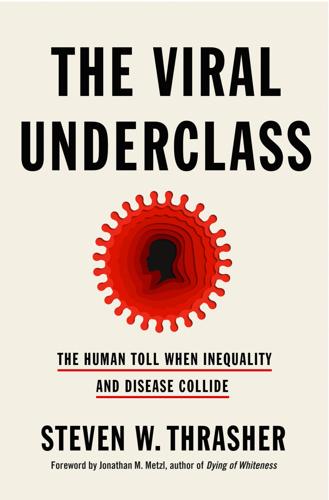
The Viral Underclass: The Human Toll When Inequality and Disease Collide
by
Steven W. Thrasher
Published 1 Aug 2022
“Most of his fingers were missing!” Suzanne didn’t ticket the man. Instead, she gave him a card with the phone number for his nation’s consulate, where she said people from his government could help him. While the horrors of American meatpacking in cities like Chicago have been widely available to readers at least since Upton Sinclair published The Jungle at the start of the twentieth century, the dangers have mutated over time. A desire to stymie unionization efforts, reduce the possibility of ethnic community building, and utilize cheaper commercial real estate has driven such work out of cities. The meat overlords have made the work they profit from even more dangerous and alienating by moving slaughterhouses far from urban life and into low-density regions.
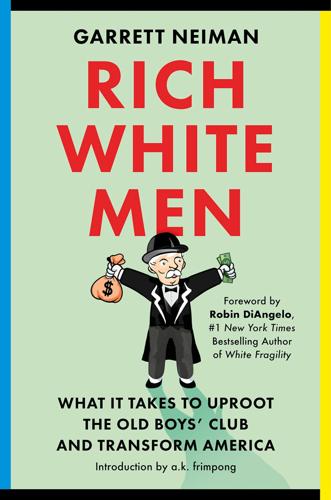
Rich White Men: What It Takes to Uproot the Old Boys' Club and Transform America
by
Garrett Neiman
Published 19 Jun 2023
I earned everything I’ve got. —RICHARD NIXON, THIRTY-SEVENTH PRESIDENT OF THE UNITED STATES, DURING THE HEIGHT OF THE WATERGATE SCANDAL MYTH: Rich white men earned everything we have. It is difficult to get a man to understand something, when his salary depends upon his not understanding it. —UPTON SINCLAIR, AMERICAN POLITICAL ACTIVIST, AND AUTHOR OF THE JUNGLE REALITY: Rich white men benefit from compounding unearned advantages. The wealthy philanthropist I interviewed in 2019 is an incredible American success story. I’ll call him Mark, after Mark Zuckerberg, because he, too, is a tech titan.
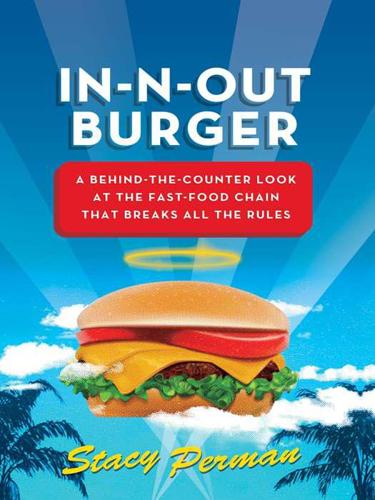
In-N-Out Burger
by
Stacy Perman
Published 11 May 2009
In the mid-1960s, McDonald’s traced the origins of the hamburger to a Russian sailor in the German port city of Hamburg and journeyed there to present the mayor of Hamburg with a McDonald’s hamburger. McDonald’s was not the first to deploy gimmickry, however. In 1930, White Castle founders Billy Ingram and Walter Anderson came up with a scheme to counter the public’s squeamishness about eating ground beef that endured long after the publication of Upton Sinclair’s 1906 meatpacking industry exposé, The Jungle. Ingram paid a group of young men to dress up as doctors while they ate White Castle hamburgers to promote the idea that hamburgers were healthy. Harry had little interest in such attention-grabbing tricks or publicity stunts. Esther’s modesty and her husband’s salt-of-the-earth soul recoiled from the kind of promotional splashes going all around them.
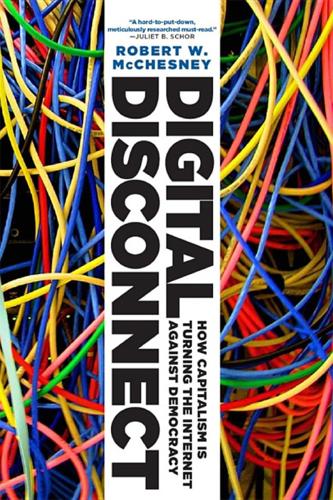
Digital Disconnect: How Capitalism Is Turning the Internet Against Democracy
by
Robert W. McChesney
Published 5 Mar 2013
McChesney and John Nichols, The Death and Life of American Journalism: The Media Revolution That Will Begin the World Again (New York: Nation Books, 2010), chap. 3. 64. Richard L. Kaplan, Politics and the American Press: The Rise of Objectivity, 1865–1920 (New York: Cambridge University Press, 2002), 123–24. 65. For the classic treatment, see Upton Sinclair, The Brass Check (1919; Urbana: University of Illinois Press, 2003). 66. Robert M. La Follette, ed. Ellen Torelle, The Political Philosophy of Robert M. La Follette (Madison, WI: Robert M. La Follette Co., 1920). 67. Cited in Kaplan, Politics and the American Press, 166. 68. See Duane C.S.
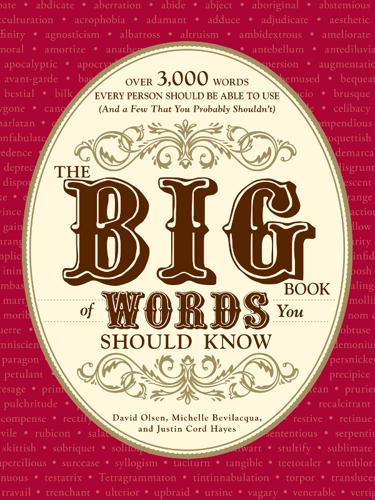
The Big Book of Words You Should Know: Over 3,000 Words Every Person Should Be Able to Use (And a Few That You Probably Shouldn't)
by
David Olsen
,
Michelle Bevilacqua
and
Justin Cord Hayes
Published 28 Jan 2009
After three hours of playing basketball, I feared my sweat-soaked gym clothes were more than a little GAMY. genre (ZHAWN-ruh), noun A particular style that characterizes a type of music, art, literature, film, etc. Though their GENRE doesn’t make for pleasant or easy reading, one has to admire muckrakers like Upton Sinclair, who aimed to bring about important social reforms with their novels. genteel (jen-TEEL), adjective Refined; conveying a sense of high style and/or respectability. Genteel is often meant to imply a sense of social superiority, as well. Tom’s vulgar remarks were not appreciated by his GENTEEL dining companions.
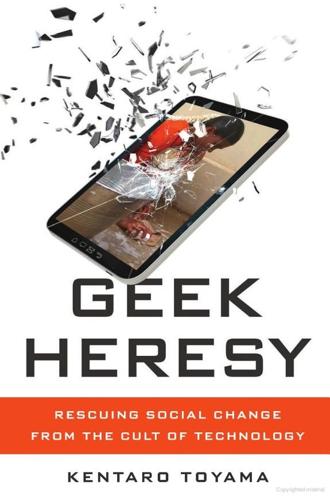
Geek Heresy: Rescuing Social Change From the Cult of Technology
by
Kentaro Toyama
Published 25 May 2015
Toward the end of my five years in India, I had a glimpse of a hypothesis. I knew there was a way to make sense of the apparent contradiction whereby isolated successes weren’t easy to replicate elsewhere. But since I worked at a company whose soul was software, I kept wanting to see the technology prevail. I felt disloyal doubting its value. As Upton Sinclair said, “it is difficult to get a man to understand something, when his salary depends upon his not understanding it.”34 I needed some distance, and I needed some time. So in early 2010 I left Microsoft to join the School of Information at Berkeley. The dean, AnnaLee Saxenian, had arranged a research fellowship for me.
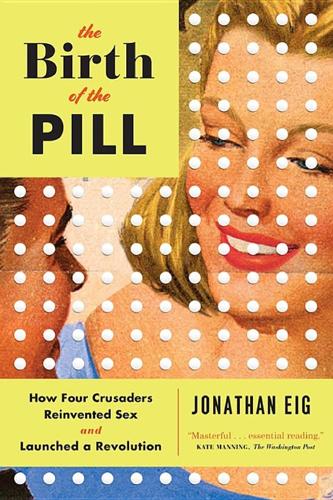
The Birth of the Pill: How Four Crusaders Reinvented Sex and Launched a Revolution
by
Jonathan Eig
Published 12 Oct 2014
By 1925, more than one thousand doctors from around the world sought admission to Sanger’s annual birth-control conference, this one held at the Hotel McAlpin in New York City. British economist John Maynard Keynes attended, as did writer Lytton Strachey and Socialist Party leader Norman Thomas. Messages of support arrived from W. E .B. Du Bois, Upton Sinclair, and Bertrand Russell. The most influential eugenicists in the country were on hand, too. The birth-control movement was gaining visibility in the United States and spreading quickly around the world. It helped that sex in America was more widely discussed than ever. The single woman of the Jazz Age smoked, drank, danced, flirted, and (to use the term that was beginning to come into vogue) screwed.
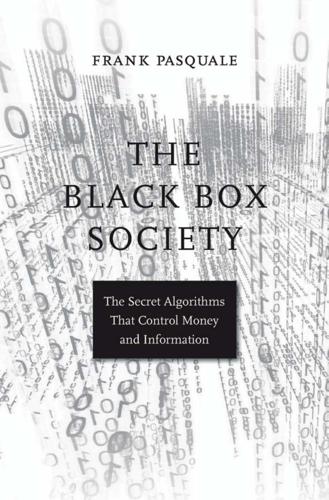
The Black Box Society: The Secret Algorithms That Control Money and Information
by
Frank Pasquale
Published 17 Nov 2014
Having passively surrendered to for-profit firms the critical decisions we need to make about reputation, search, and fi nance, 186 THE BLACK BOX SOCIETY we are gradually losing the ability even to know what these decisions have been, let alone how well they are working. The result is a world that even the most celebrated muckrakers of the past might find impossible to reform. Consider a topic as basic as food safety. Working undercover at a meatpacking plant in 1904, Upton Sinclair witnessed grotesque filth and exploitation. He rocked the industry with The Jungle, a novel about the plight of workers at the plant. As public outrage grew, Congress passed the Pure Food and Drug Act of 1906, which set the stage for the food and drug regulations of today. If a would-be Sinclair tried to document today’s food horror stories, there’s a good chance he’d be fi ned, jailed, or even labeled a terrorist.
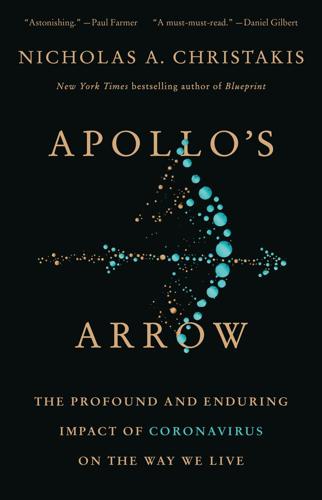
Apollo's Arrow: The Profound and Enduring Impact of Coronavirus on the Way We Live
by
Nicholas A. Christakis
Published 27 Oct 2020
The frequency of COVID-19 outbreaks at meatpacking plants grew so high that there was concern in some quarters that the nation’s food supply would be affected.59 On the White House website on April 28, the president said he intended to invoke the Defense Production Act (ordinarily intended for wartime emergencies) to force meat companies to stay open.60 The president declared that the meatpacking plants were part of the nation’s “critical infrastructure,” given that “closure of any of these plants could disrupt our food supply and detrimentally impact our hard-working farmers and ranchers.” Unfortunately, no mention was made of the detrimental impact on the hardworking meatpackers who were facing COVID-19 infections. Meatpacking plants have been notoriously bad places to work for a very long time, and they figured centrally in a famous novel by Upton Sinclair, The Jungle, which described the lives of immigrants toiling in Chicago meatpacking facilities in the early part of the twentieth century. The CDC released an analysis of the outbreaks in May 2020, and it noted that, among 115 facilities in 19 states involving over 130,000 workers, there were 4,913 cases (which was 3 percent of the workforce at that time), and 20 deaths (for a CFR of 0.4 percent).61 This report highlighted worker proximity and crowded and shared living arrangements and transportation as important factors.
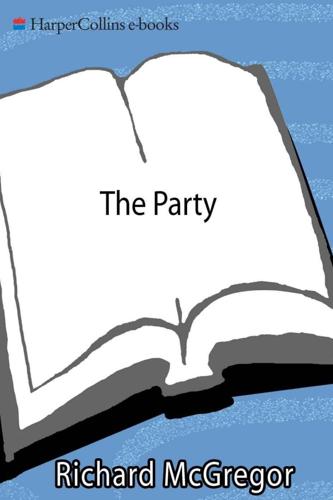
The Party: The Secret World of China's Communist Rulers
by
Richard McGregor
Published 8 Jun 2010
Almost as soon as it was sent, though, the message amplified by the rare execution of a cabinet-level official was drowned out by the Party’s overriding priority at the time, to expunge negative news in the lead-up to the Olympics. More than one commentator has compared rapidly industrializing China with the satanic mills of Dickensian Britain and ‘the jungle’ of Upton Sinclair’s 1906 novel of the same name exposing the horrors of Chicago’s meatpacking industry. Chinese food scandals bore an eerie similarity to the problems that beset the west during its own rapid industrialization. In China, as in the US and Europe a century or so beforehand, government regulators could not keep pace with the wealth, pollution and corruption generated by an exponential take-off in economic growth and the societal transformation that trailed in its wake.
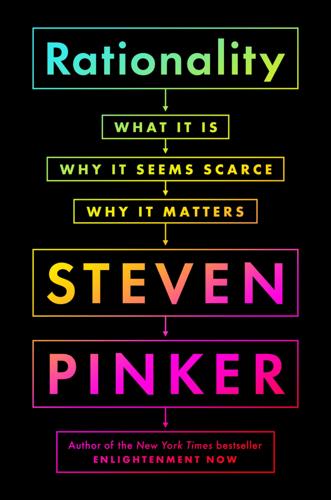
Rationality: What It Is, Why It Seems Scarce, Why It Matters
by
Steven Pinker
Published 14 Oct 2021
Dostoevsky spurned the hegemaniacal logic and I can do no less. The obvious reason that people avoid getting onto a train of reasoning is that they don’t like where it takes them. It may terminate in a conclusion that is not in their interest, such as an allocation of money, power, or prestige that is objectively fair but benefits someone else. As Upton Sinclair pointed out, “It is difficult to get a man to understand something, when his salary depends upon his not understanding it.”16 The time-honored method to head off a line of reasoning before it arrives at an unwanted destination is to derail the reasoner by brute force. But there are less crude methods that exploit the inevitable uncertainties surrounding any issue and steer the argument in a favored direction with sophistry, spin-doctoring, and the other arts of persuasion.
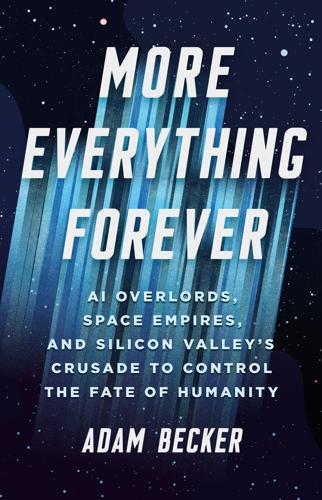
More Everything Forever: AI Overlords, Space Empires, and Silicon Valley's Crusade to Control the Fate of Humanity
by
Adam Becker
Published 14 Jun 2025
He could put all his resources into fighting global warming, which will also have unequal impacts around the world. Instead, he’s going to space—and he thinks that’s the best and most important thing he can do with his money. This is the promise of transcendence offered by technological salvation. Upton Sinclair said that “it is difficult to get a man to understand something when his salary depends upon his not understanding it.”91 But for Bezos and Musk, there’s more than a paycheck at stake. These dreams of space, earnestly held in spite of all the evidence against them, allow these billionaires to avoid responsibility for any problems here on Earth and instead claim that nothing could be more important than what they want to do.
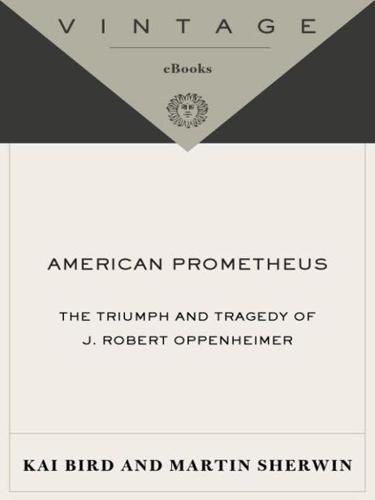
American Prometheus: The Triumph and Tragedy of J. Robert Oppenheimer
by
Kai Bird
and
Martin J. Sherwin
Published 18 Dec 2007
The longshoremen returned to work having achieved almost none of their wage demands, but it was clear to all that the unions had achieved a major political victory. The strike had garnered popular sympathy for the longshoremen’s plight and greatly strengthened the union movement. On August 28, 1934, in a sign that the political atmosphere had shifted significantly to the left, the radical writer Upton Sinclair stunned the California establishment by decisively winning the Democratic gubernatorial nomination. Although Sinclair lost the general election—partly as a result of intense slander and fear-mongering on the part of the Republicans—California politics would never be the same. Such dramatic events could not go unnoticed by Oppenheimer or his students.
…
The Depression had caused many Americans to reconsider their political outlook. Nowhere was this truer than in California. In 1930, three out of every four California voters were registered Republicans; eight years later, Democrats outnumbered Republicans by a margin of two to one. In 1934, the muckraking writer Upton Sinclair nearly won the governorship with his radical platform to End Poverty in California (EPIC). That year The Nation editorialized: “If ever a revolution was due, it was due in California. Nowhere else has the battle between labor and capital been so widespread and bitter, and the casualties so large; nowhere else has there been such a flagrant denial of the personal liberties guaranteed by the Bill of Rights. . . .”
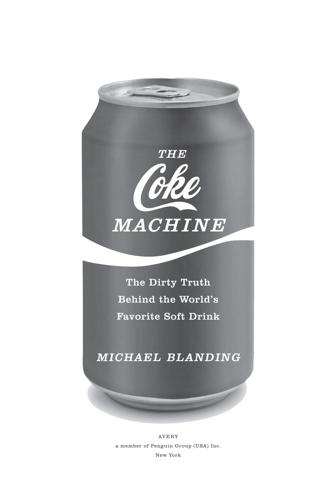
The Coke Machine: The Dirty Truth Behind the World's Favorite Soft Drink
by
Michael Blanding
Published 14 Jun 2010
By the turn of the century, however, there was a wide backlash against patent medicines in general, as muckraking newspaper and magazine sto ries, starting with a series by Samuel Hopkins Adams in Collier’s in 1905, exposed what was really in those elixirs—including chloroform, turpentine, and an awful lot of alcohol. At the same time, the publication of Upton Sinclair’s The Jungle, which blew the lid off the dangers and lack of sanita tion in the meatpacking business, led to increasing strictures on what food manufacturers could put in the products that Americans ate. It was the dawn of the Progressive Era, a reaction to the excesses of Gilded Age cap italism, in which government increasingly clamped down with increased regulations.
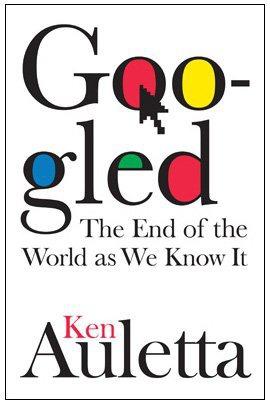
Googled: The End of the World as We Know It
by
Ken Auletta
Published 1 Jan 2009
But they ought to have available to them all the information they need to be well-rounded, informed citizens of a democracy Even a not very good newspaper—and most are not very good—broadens the horizons of its readers. By newspapers, I also mean something often neglected by those who have a better understanding of technology than of journalism. While good journalism can be practiced by individuals—think Upton Sinclair or I. F. Stone—it is often a collaborative effort, the result of teamwork rather than solitary labor. Story ideas are kicked around in a newsroom. A journalist reports a story and phones the editor, who makes suggestions and prods the reporter to probe various angles and seek different interviews.
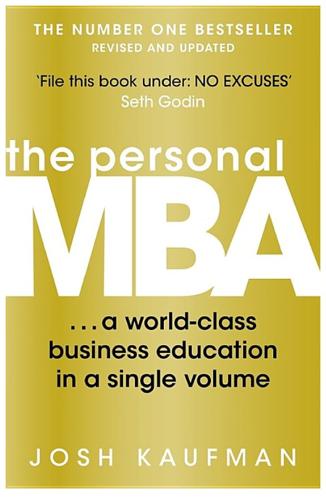
The Personal MBA: A World-Class Business Education in a Single Volume
by
Josh Kaufman
Published 2 Feb 2011
Obtain a small Commitment, and you’ll make it far more likely that others will comply with your request. SHARE THIS CONCEPT: http://book.personalmba.com/commitment-consistency/ Incentive-Caused Bias It is difficult to get a man to understand something when his salary depends upon his not understanding it. —UPTON SINCLAIR, PULITZER PRIZE-WINNING AUTHOR OF THE JUNGLE If you’re working with a real estate agent or mortgage broker, they’re primarily interested in convincing you to buy a house. Accordingly, most agents won’t tell you it’s in your best interest to rent,3 even if it’s true. Incentive-Caused Bias explains why people with a vested interest in something will tend to guide you in the direction of their interest.

The One Device: The Secret History of the iPhone
by
Brian Merchant
Published 19 Jun 2017
(It’s also what gives Apple such large profit margins.) But while we hold Ford and his mechanical assembly line up as a heroic example of American industriousness, it had roots in something much more organic—the slaughterhouse. The same Chicago slaughterhouses that incited national outrage after the publication of Upton Sinclair’s The Jungle in 1906 were crucial to founding the operational system that produces the iPhone. Around that time, Ford’s chief engineer, William “Pa” Klann, toured the Swift and Company slaughterhouse in Chicago. There, he saw what Ford would later refer to as “disassembly” lines, in which a butcher lopped the same cut of meat off each carcass that was passed down to him.
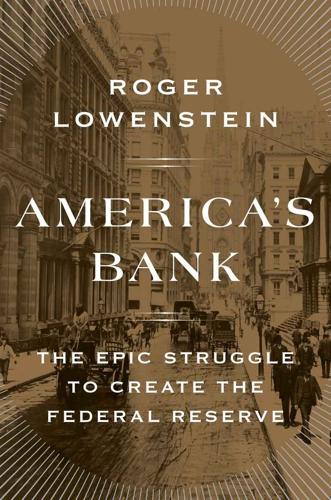
America's Bank: The Epic Struggle to Create the Federal Reserve
by
Roger Lowenstein
Published 19 Oct 2015
Barely had the Panic ended when Alfred Owen Crozier, a prominent Ohio attorney and critic of Wall Street, penned The Magnet, a novel that depicted the Wall Street “machine” as an “inscrutable and mysterious power” that serves “its invisible master, undetected, with . . . infallible accuracy.” Crozier was outflanked by the better-known Upton Sinclair, whose 1908 novel The Money Changers featured a Morgan-like figure who deliberately orchestrates a panic. The view of Morgan as inciting a crisis was a gross misreading of the man. His signature projects, such as consolidating bankrupt railroads and organizing trusts, always served the goal of greater order in commercial life.
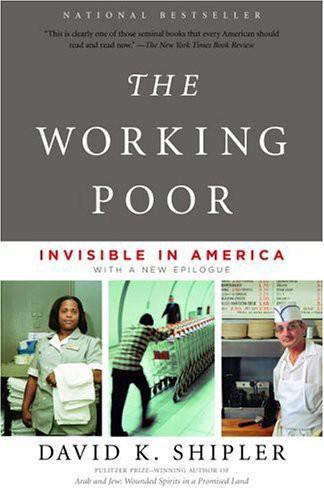
The Working Poor: Invisible in America
by
David K. Shipler
Published 12 Nov 2008
—The Star-Ledger (Newark) “A work of stunning scope and clarity.… He brings the reader close enough to the challenges faced every day by his workers to make them feel it when the floor inevitably drops out beneath them.” —The Buffalo News “The scope and importance of David Shipler’s The Working Poor brings to mind Upton Sinclair’s The Jungle.” —Deseret News (Salt Lake City) “A powerful exposé that builds from page to page, from one grim revelation to another, until you have no choice but to leap out of your armchair and strike a blow for economic justice.” —Barbara Ehrenreich, author of Nickel and Dimed “There is no better book on poverty in America than The Working Poor because it describes in vivid detail the sort of day to day problems and the cycles that these folks are involved in … really thought-provoking in a very important way.”
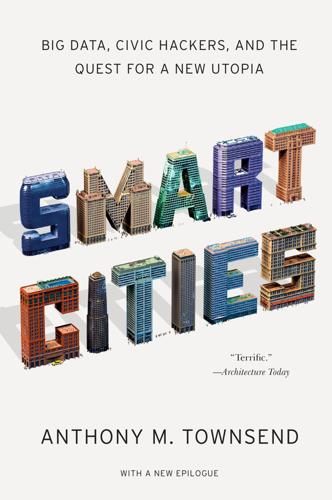
Smart Cities: Big Data, Civic Hackers, and the Quest for a New Utopia
by
Anthony M. Townsend
Published 29 Sep 2013
If that spurs people who would have stayed home to take new trips, we’ll have to double fuel economy just to hold even. Reducing overall emissions would require dramatic increases in efficiency to keep up with the expanding volume of traffic. It shouldn’t surprise us to find these cycles of increasing consumption that lead nowhere. They are endemic to industrial capitalism. In The Jungle, Upton Sinclair’s reality drama about the harsh working conditions of the Chicago stockyards at the turn of the twentieth century, we learn about the process of “speeding-up the gang” used by slaughterhouse bosses to boost output. “There were portions of the work which determined the pace of the rest, and for these they had picked men whom they paid high wages, and whom they changed frequently.
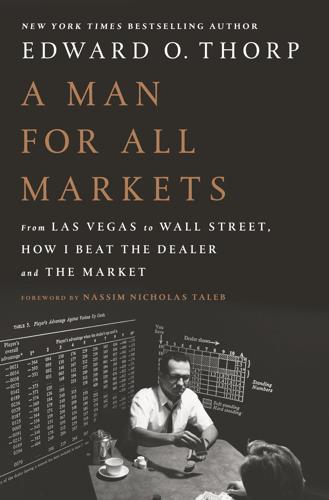
A Man for All Markets
by
Edward O. Thorp
Published 15 Nov 2016
Many had married one another and lived locally ever since, whereas for me high school was a launching pad for life’s great adventure. In the summer of 1948, following my junior year at Narbonne, I sat on the beach and read my way through a list of about sixty great novels, mostly from American literature, by authors such as Thomas Wolfe, John Steinbeck, Theodore Dreiser, John Dos Passos, Upton Sinclair, Sinclair Lewis, Ernest Hemingway, and F. Scott Fitzgerald. There were foreign authors as well, such as Dostoyevski and Stendhal. Jack Chasson had given me the list and lent me the books from his personal library. I punctuated my hours of reading with body-surfing and with thoughts about who I was and where I was going.
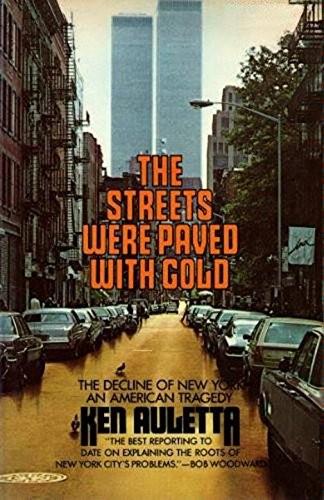
The Streets Were Paved With Gold
by
Ken Auletta
Published 14 Jul 1980
And also because many of us retain vivid memories of the class conflict and abuse of an earlier era when all workers—like today’s migrant workers and coal miners—were victims of callous indifference. We remember the sweat shops, the union-busting goons, the conscripted children slaving fourteen hours a day. We remember Upton Sinclair’s poignant portrait of assembly line cruelty; John Steinbeck’s Grapes of Wrath. If you grew up in a working-class home, as I did, your natural instinct is to side with the worker against the boss and robber barons, to draw lines between the people and the privileged few. Government was a friend, labor unions represented the people against management.
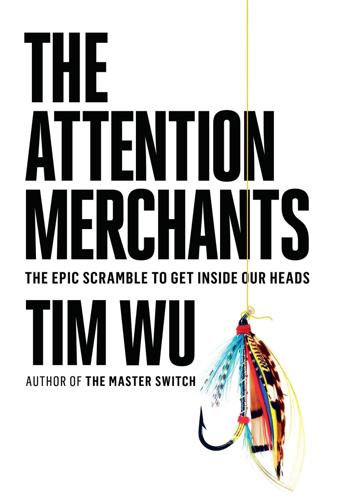
The Attention Merchants: The Epic Scramble to Get Inside Our Heads
by
Tim Wu
Published 14 May 2016
Coming in a more trusting age, when such revelations had greater power to shock, Adams’s article caused an astonishing outcry. A variety of actors, including various women’s organizations, and a crusading physician named Harvey Washington Wiley, began to push for legislation, long stalled in Congress, to impose basic labeling rules for foods and medicines. In 1906, Upton Sinclair’s The Jungle encouraged demands for industry reform generally, with its depiction of nauseating and immoral practices in the meat industry. By that time President Theodore Roosevelt had joined the campaign; he’d later give a speech praising Collier’s Weekly for having “hit the patent medicine concerns very hard and greatly reduced the amount they spent in advertising.”20 Roosevelt added his weight to the assault on Congress, and the Food and Drugs Act was finally passed that year, despite strong congressional reluctance amid fierce industry lobbying.
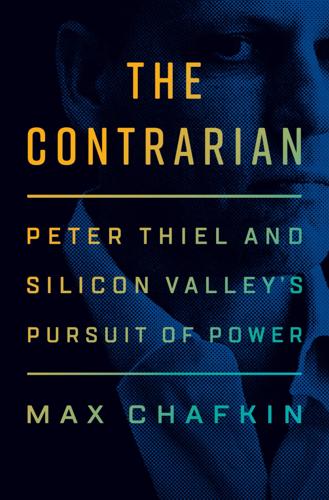
The Contrarian: Peter Thiel and Silicon Valley's Pursuit of Power
by
Max Chafkin
Published 14 Sep 2021
Jordan would become infamous as a eugenicist; in October 2020, Stanford announced it would remove his name from its buildings. But the commencement speech was less concerned with his racist theories than it was with a very specific notion of freedom—that is, for Stanford graduates to operate free from government interference or regulation. A year earlier, Upton Sinclair had published The Jungle, an exposé about working conditions in the Chicago meatpacking industry. Jordan held that the “true moral” of the book was not that workers were being exploited by factory owners and other capitalists, as Sinclair intended, but that the problem was the workers themselves.
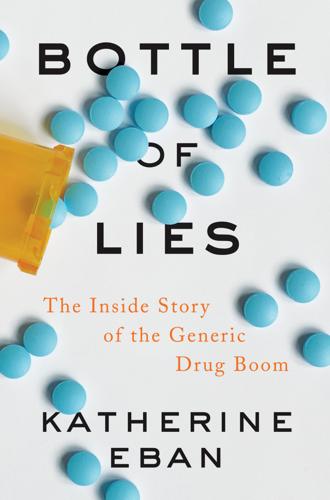
Bottle of Lies: The Inside Story of the Generic Drug Boom
by
Katherine Eban
Published 13 May 2019
The result is a facade of compliance that papers over a darker reality. “It’s like it was at the turn of the twentieth century,” a Dutch pharmaceutical executive, who encountered a frog infestation at a manufacturing plant in China, told me. “It’s like The Jungle,” he said, referring to the book by Upton Sinclair that exposed gruesome conditions in America’s meatpacking plants. There is no disputing the benefit of well-made generic drugs. When generics work perfectly, and many do, the results can be miraculous. “Basically, the ability of India and other countries to produce generic medicine at a fraction of the cost of the patented drugs saved the lives of millions of people in developing countries,” said Emi MacLean, formerly the U.S. director of the Access to Essential Medicines Campaign at Doctors Without Borders.

People, Power, and Profits: Progressive Capitalism for an Age of Discontent
by
Joseph E. Stiglitz
Published 22 Apr 2019
Every society has learned the painful way that there are those who seek to get rich not by inventing a better product or making some other contribution to society, but by exploitation—exploitation of market power, exploitation of imperfections of information, exploitation especially of those who are vulnerable, poor, or less educated. To take one classic example: meatpackers tried to take advantage of consumers, selling them rotten meat, until Upton Sinclair exposed this in his 1906 book, The Jungle. The book caused such furor that the industry then asked to be regulated so confidence in meat could be restored. To take another example, there is almost universal recognition that a person would do anything to prevent his children from starving to death, or to buy them necessary medicine—including borrowing at usurious interest rates.
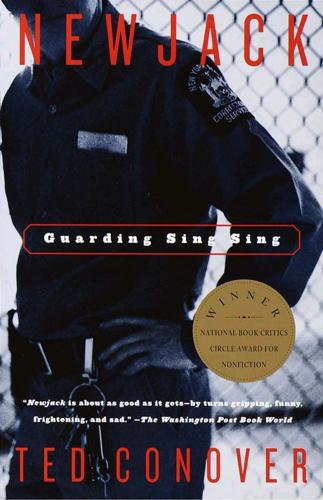
Newjack: Guarding Sing Sing
by
Ted Conover
Published 20 Jan 2010
—The San Diego Union-Tribune “Newjack is a valuable contribution to the urgent debate about crime and punishment in our time.” —The Boston Globe “A fascinating window into the complex machinations of America’s prison systems.” —The Austin Chronicle “A timely, troubling, important book.” —The Baltimore Sun “George Orwell, you have a godson. Upton Sinclair, you’ve been one-upped. In this mind-blowing example of journalism at its most authentic, Conover discovers that prison can bring out the animal in any man, and even the zookeeper has to protect his soul.” —Entertainment Weekly Ted Conover NEWJACK Ted Conover was raised in Colorado and lives in New York City.
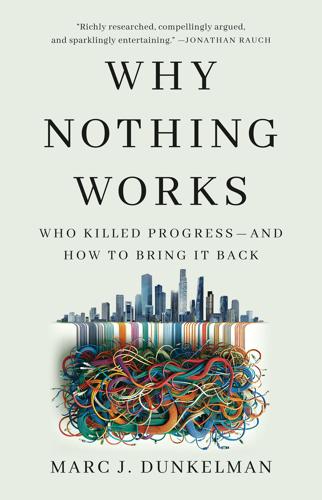
Why Nothing Works: Who Killed Progress--And How to Bring It Back
by
Marc J Dunkelman
Published 17 Feb 2025
With its passage, the federal government reclaimed across the whole of the country the leverage that Granger Laws had once given states.114 Roosevelt, in a phrase, braided progressivism’s two impulses together in his pursuit of the public interest. And that then set the pattern. Over the next several years, progressivism’s two impulses continued to notch parallel, if incremental, political victories. After Upton Sinclair’s The Jungle exposed the abuses running rampant in the largely unregulated meatpacking industry, Roosevelt signed into law both the Pure Food and Drug Act and the Meat Inspection Act. Senator Albert Beveridge, a prime sponsor, declared that the efforts marked “the most pronounced extension of federal power in every direction ever enacted.”115 Then, Roosevelt’s successor, William Howard Taft, steered back toward a Jeffersonian bent, successfully forcing the breakup of both John D.
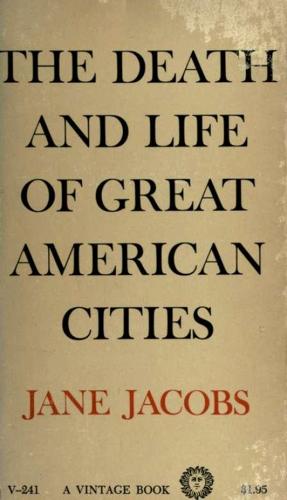
The death and life of great American cities
by
Jane Jacobs
Published 1 Nov 1961
So far as I know, the Back-of-the-Yards is the only city district which has met the common problem of credit blacklisting head on and overcome it by direct means. To understand how it was able to do so, it is necessary to understand a little of the history of this district. The Back-of-the-Yards used to be a notorious slum. When the great muckraker and crusader, Upton Sinclair, wanted to describe the dregs of city life and human exploitation in his book, The Jungle, it was the Back-of-the-Yards and its associated stockyards he chose to portray. People from there who sought jobs outside the district gave false addresses, as late as the 1930’s, to avoid the discrimination that then attached to residence there.
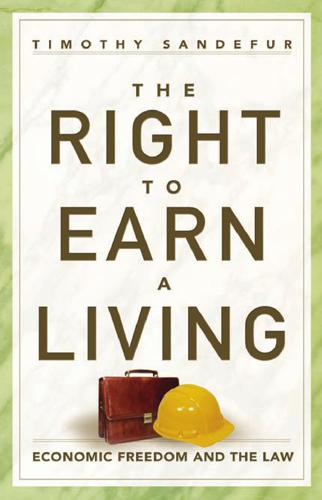
The Right to Earn a Living: Economic Freedom and the Law
by
Timothy Sandefur
Published 16 Aug 2010
Henry Demarest Lloyd, for example, whose attacks on Standard Oil and other companies received wide attention in the years leading up to the adoption of the Sherman Antitrust Act in 1890, complained that Standard ruthlessly “crush[ed] out the other refiners, who were its competitors”26 and that “hundreds and thousands of men have been ruined by . . . Standard and the railroads.”27 The Progressives accused big business of a wide variety of abusive and dangerous practices, including the allegedly unsanitary recklessness and corruption in the meat-packing industry, exposed in Upton Sinclair’s The Jungle. But to many Progressives, such abuses were only manifestations of a deeper problem: America’s obsolete infatuation with individualism. Attacks on the individualistic ethos and on economic self-interest were the major themes of Progressive writing.28 The “‘historical’ or ‘new’ school economists frequently proclaimed that modern conditions rendered competition wholly or partially obsolete as a governing principle,” writes one historian. 45 The Right to Earn a Living They “urged a new ethic of cooperation to replace older ideals of rivalry, at least in important sectors of the American economy.”29 Many Progressives were socialists; Edward Bellamy’s 1888 communist utopian novel Looking Backward, which originated the phrase “from cradle to grave,”30 was the most popular book of its day; it sold hundreds of thousands of copies and led to the formation of 150 socialistic “Bellamy Clubs” in communities across the country.31 Likewise, Henry Demarest Lloyd argued that “[a] society cannot be made of competitive units,”32 and that government should put an end to “the liberty of each to do as he will with his own.”33 “As [a] man is bent toward business or patriotism, he will negotiate combinations or agitate for laws to regulate them.
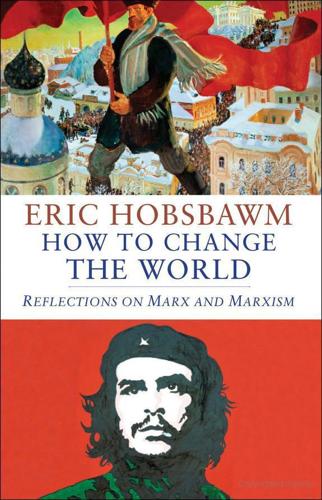
How to Change the World: Reflections on Marx and Marxism
by
Eric Hobsbawm
Published 5 Sep 2011
Leavis, found themselves not only surrounded by anti-fascist and even some Marxist disciples, but hesitated on the brink of expressing cautious and qualified sympathy with their cause, before with-drawing from the political arena.21 275 How to Change the World In Britain, France and the USA those mobilised in favour of the Spanish Republic and more generally for anti-fascism comprised a majority of talent and intellect. The American writers who declared their support for the Spanish Republicans included Sherwood Anderson, Stephen Vincent Benét, Dos Passos, Dreiser, Faulkner, Hemingway, Archibald MacLeish, Upton Sinclair, John Steinbeck and Thornton Wilder, to name but a few. In the Hispanic world the poets supported the Republic almost without exception. Since the publicity value of such well-known names was obvious, and was exploited by various forms of collective gatherings, public statements and other manifestations, this part of the intellectuals’ anti-fascism is particularly well recorded.
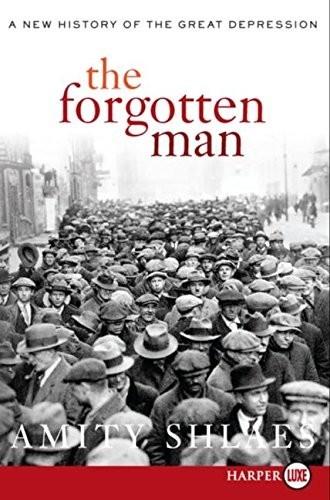
The Forgotten Man
by
Amity Shlaes
Published 25 Jun 2007
Even as he tangled with the law, he bought houses and storefronts by the dozen, many of them beyond Harlem, in the country up the Hudson River. By 1937, he had twenty-five properties operating in New York’s Ulster County, mostly as farms. One, at Elting’s Corners, had burned in April of that year, but that was a small setback. He was making his economic community, something like the agricultural communities that Upton Sinclair had led in California. “Father is going to make Ulster County into a model community that will be an example for the United States government,” his spokesman, John Lamb, told the papers. The New York Times reported that some in the area, nearly entirely white, were not happy. “News that the county was going to be used as a lab for a negro collectivization experiment in camp meeting tempo was received with wrath by the Ulster County farmers and businessmen yesterday,” the paper wrote.
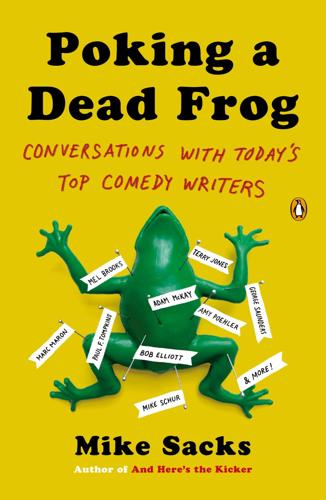
Poking a Dead Frog: Conversations With Today's Top Comedy Writers
by
Mike Sacks
Published 23 Jun 2014
My mother claims this is because my father confused Dr. Seuss with [pediatrician and child-care author] Dr. Spock, and considered Dr. Spock a communist. My father denies this. And honestly, it doesn’t sound like him—the guy who gave me Michael Harrington’s [1962 book on poverty] The Other America to read when I was in seventh grade, along with Upton Sinclair’s [1906 novel on Chicago working-class conditions] The Jungle. But who knows? Anyway, we didn’t have the Seuss books, but a neighbor did, and I remember whenever we would go over there I would sneak into the kid’s room and read all the contraband Seuss. I loved the simplicity. Very elemental and profound.
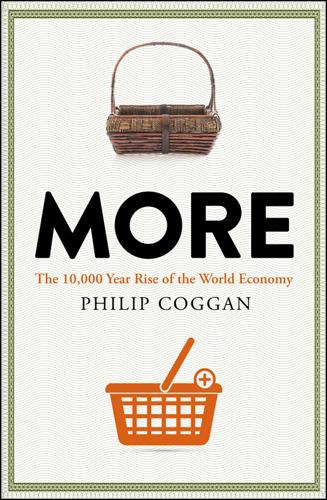
More: The 10,000-Year Rise of the World Economy
by
Philip Coggan
Published 6 Feb 2020
Roosevelt also acted to control corporate excesses elsewhere, pushing through the Meat Inspection Act and the Pure Food and Drug Act in 1906 to improve conditions in the food industry.84 The poor hygiene standards of the meatpacking industry, and the dangerous conditions faced by workers, had been exposed by Upton Sinclair in his novel The Jungle in 1904. Sinclair sent a copy of his book to the president, who had the abattoirs investigated and found that the conditions were as bad as the author described. By the time of the First World War, the corporate sector had emerged as a significant economic force. Businesses were becoming multinational, setting up factories and buying mines and plantations in other countries.
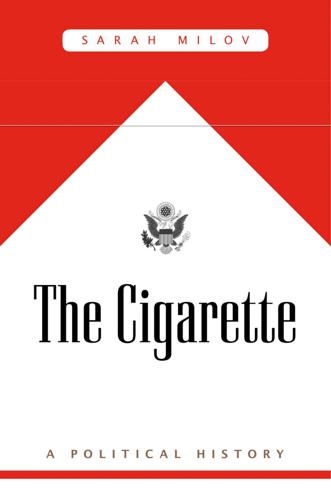
The Cigarette: A Political History
by
Sarah Milov
Published 1 Oct 2019
Duke” The most obvious source of farmers’ disempowerment, and most frequent target of their invective, was the Tobacco Trust—James B. Duke’s enormous and powerful tobacco monopoly that controlled the vast majority of the domestic and global tobacco trade.6 In popular memory, the Tobacco Trust has taken a backseat to John D. Rockefeller’s Standard Oil Trust, J. P. Morgan’s U.S. Steel, and even the Beef Trust made famous by Upton Sinclair’s The Jungle. But between its founding in 1890 and its dissolution in 1911, the Tobacco Trust controlled between 75 and 90 percent of all cigarette sales in the United States. One Kentucky congressman described the ATC as so intransigent in its operations that it could “make any convict feel like an honest man in comparison.”7 The Trust was dissolved by Supreme Court decree in 1911, but the successor companies continued to operate as an oligopoly.
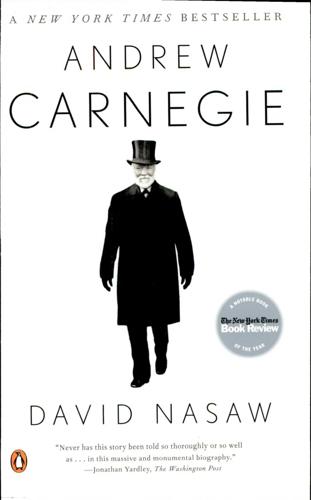
Andrew Carnegie
by
David Nasaw
Published 15 Nov 2007
The vessel was then tipped onto its side, pouring white-hot liquid steel into a casting ladle, which conveyed it to the molds. The explosion of flame and sparks from the top of the converter, followed almost immediately by the flow of molten steel, was both exhilarating and intimidating to those who witnessed it. In The Jungle, Upton Sinclair’s fictional character Jurgis Rudkus, after applying for a job at a Chicago steel mill, is taken on a tour of the “domelike building, the size of a big theater,” that housed the Bessemer converter. There before him were three giant caldrons, big enough for all the devils of hell to brew their broth in, full of something white and blinding, bubbling and splashing, roaring as if volcanoes were blowing through it—one had to shout to be heard in the place.
…
CHAPTER NINE: DRIVING THE BANDWAGON, 1875–1878 1. George Thurston, Pittsburgh and Allegheny in the Centennial Year (Pittsburgh: A. A. Anderson & Son, 1876), 197. 2. A. L. Holley and Lenox Smith, “American Iron and Steel Works. No. XXI. The Works of the Edgar Thomson Steel Company (Limited),” Engineering 25 (April 19, 1878): 295. 3. Upton Sinclair, The Jungle (1905; New York: Signet Classics, 1960), 204–05. 4. AC, Autobiography, 196–97. 5. Ibid, 197. 6. AC, EB, 190, 204. 7. Ibid., 208–09. 8. Thomas J. Misa, A Nation of Steel (Baltimore: The Johns Hopkins University Press, 1995), 21; Usselman, 82–83. 9. Robert Kennedy to AC, January 20, 1882, box 79, folder 3, CS. 10.
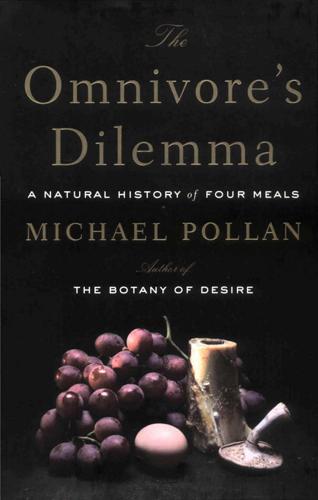
The omnivore's dilemma: a natural history of four meals
by
Michael Pollan
Published 15 Dec 2006
He had built an artisanal meat plant, designed to custom-process pastured livestock humanely and scrupulously, no more than a few dozen animals a day But his artisanal enterprise was being forced to conform to a USDA regulatory system that is based on an industrial model—indeed, that was created in response to the industrial abuses Upton Sinclair chronicled in The Jungle. The federal regulatory regime is expressly designed for a large slaughterhouse operated by unskilled and indifferent workers killing and cutting as many as four hundred feedlot animals an hour. The volume of such an operation can easily cover the costs of things like a dedicated restroom for the inspector, or elaborate machinery to steam clean (or irradiate) carcasses presumed to carry E. coli.
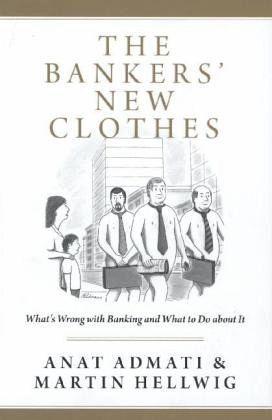
The Bankers' New Clothes: What's Wrong With Banking and What to Do About It
by
Anat Admati
and
Martin Hellwig
Published 15 Feb 2013
The shareholders truly lose if the banker’s fear of losing face by making that acknowledgement makes him forego some profitable opportunities.26 When bankers make investment and funding decisions and when they lobby against higher capital requirements, on whose behalf are they acting? Not surprisingly, as we discuss in the next chapter, first and foremost bankers act on their own behalf. EIGHT Paid to Gamble It is difficult to get a man to understand something, when his salary depends upon his not understanding it! Upton Sinclair, I, Candidate for Governor: And How I Got Licked (1935) WHEN ARGUING AGAINST higher capital requirements, bankers and others routinely claim that having more capital would “lower returns on equity” (ROE).1 These lower returns, they claim, would harm their shareholders and could “make investment into the banking sector unattractive relative to other business sectors.”2 Arguments against higher capital requirements that are based on such reasoning are fundamentally flawed.
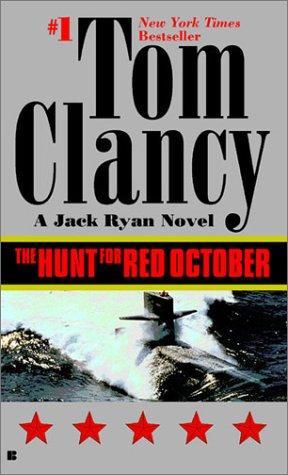
The Hunt for Red October
by
Tom Clancy
Published 2 Jan 1984
She was a pretty, delicate woman, sophisticated by Russian standards, who polished her husband's passable English with American and British books—politically approved ones to be sure, mainly the thoughts of Western leftists, but also a smattering of genuine literature, including Hemingway, Twain, and Upton Sinclair. Along with his naval career, Natalia had been the center of his life. Their marriage, punctuated by prolonged absences and joyous returns, made their love even more precious than it might have been. When construction began on the first class of Soviet nuclear-powered submarines, Marko found himself in the yards learning how the steel sharks were designed and built.
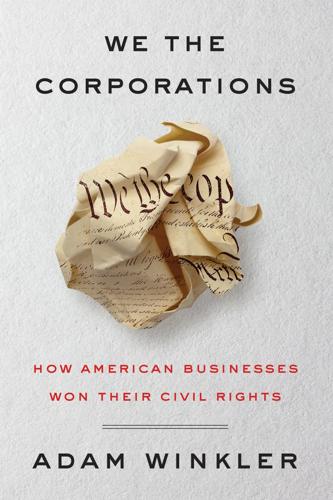
We the Corporations: How American Businesses Won Their Civil Rights
by
Adam Winkler
Published 27 Feb 2018
Time magazine called Nader the “nation’s No. 1 consumer guardian,” who had prompted “much U.S. industry to reappraise its responsibilities and, against considerable odds, created a new climate of concern for the consumer among politicians and businessmen.” Nader carried on the spirit of the Muckrakers and, like Upton Sinclair exposing the slaughterhouses or Henry Demarest Lloyd warning of Standard Oil’s monopoly, he unmasked how corporations harmed consumers in the unyielding pursuit of profit. Nader, Time wrote, was “almost solely responsible” for the wave of “major federal laws” regulating business.3 The year 1971, when Philip Morris had its luncheon send-off for Lewis Powell, was a critical one in the battle between populist reformers and big business.
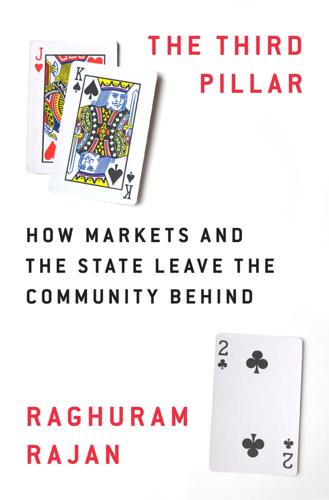
The Third Pillar: How Markets and the State Leave the Community Behind
by
Raghuram Rajan
Published 26 Feb 2019
An alternative to breaking up a monopoly, especially if it was in an industry that was more productively serviced by a single company (also termed a “natural monopoly”) was to regulate it. Regulation also made sense when the consumer could not discern product quality up front or had to rely on promises of responsible corporate behavior such as adequate after-sale service. Once again, the “muckraking” press played a role in energizing public opinion. Upton Sinclair’s The Jungle, published in serial form in 1905, was primarily about the exploitative conditions faced by immigrant factory workers in the United States, but public attention focused on the filthy, unhygienic practices the book detailed in the meatpacking industry. Perhaps most frightening and revolting was his account of workers accidentally falling into great lard vats and their bodies being ground up along with other animal parts into “Durham’s Pure Leaf Lard,” which was then sold for public consumption.
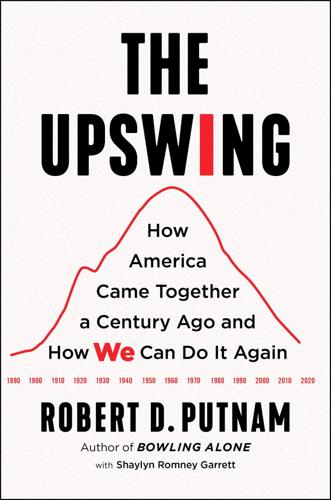
The Upswing: How America Came Together a Century Ago and How We Can Do It Again
by
Robert D. Putnam
Published 12 Oct 2020
Though her pieces were never published in white-run Progressive magazines of the day, Wells joined the ranks of many Progressive journalists who worked to expose the hypocrisy and brutality of the Gilded Age. Lincoln Steffens uncovered rampant corruption in city politics, Jacob Riis used photojournalism to lay bare the inhumane living conditions in urban tenements, Ida Tarbell exposed the excesses of John D. Rockefeller’s monopolistic Standard Oil company, Upton Sinclair took on the abuses of the meatpacking industry, and Ray Stannard Baker covered both brutal crackdowns on striking workers and racism in the South. Known as “muckrakers,” these writers produced vivid portraits of the human cost of exploitative and unjust systems, fueling a moral awakening that inspired countless activists and reformers, and stirred the public to take action on the most pressing issues of the day.
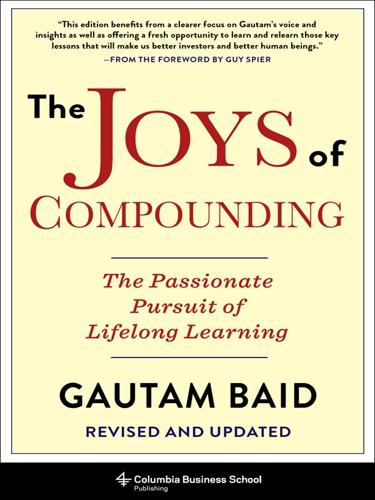
The Joys of Compounding: The Passionate Pursuit of Lifelong Learning, Revised and Updated
by
Gautam Baid
Published 1 Jun 2020
It doesn’t take a lot of money to have a truly wealthy life, but it does take financial independence, which gives us control over our time. This is the important topic that we will address in the next chapter. CHAPTER 9 ACHIEVING FINANCIAL INDEPENDENCE It is difficult to get a man to understand something, when his salary depends on his not understanding it. —Upton Sinclair Whose bread I eat, his song I sing. —Charlie Munger Truth is hard to assimilate when it is opposed by interest. You cannot really understand how the world truly works unless you have financial independence. Once you achieve this state, it changes everything. It enables you to look at reality in a truly unbiased manner.
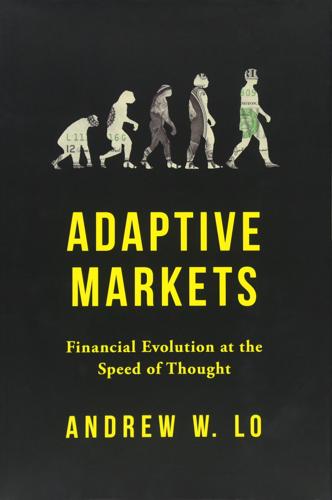
Adaptive Markets: Financial Evolution at the Speed of Thought
by
Andrew W. Lo
Published 3 Apr 2017
The Adaptive Markets Hypothesis tells us that, at the most basic level of the financial crisis, greed overwhelmed fear. Ignoring the changing environment, people at all levels of the system created narratives to convince themselves that greed was good. The pushback against the warnings about the oncoming crisis was stronger than the warnings themselves—until it was too late. The author and political activist Upton Sinclair once remarked, “It is difficult to get a man to understand something, when his salary depends upon his not understanding it!” But how much more difficult it is to convince skeptics when they make their money directly from the market. The collective rush to the market’s nucleus accumbens overwhelmed the fear response generated by its amygdala, and induced its left hemispheres to come up with a justification.
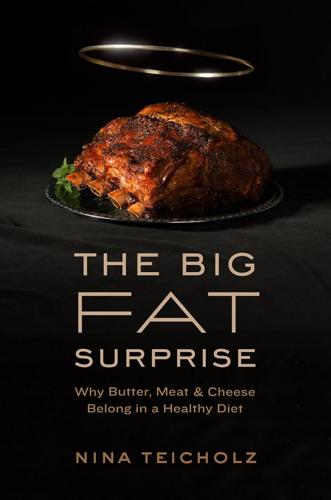
The Big Fat Surprise: Why Butter, Meat and Cheese Belong in a Healthy Diet
by
Nina Teicholz
Published 12 May 2014
Michaels therefore finds it “particularly unlikely” that angina pectoris, with its severe, terrifying pain continuing episodically for many years, could have gone unnoticed by the medical community, “if indeed it had been anything but exceedingly rare before the mid-eighteenth century.”XII So it seems fair to say that at the height of the meat-and-butter-gorging eighteenth and nineteenth centuries, heart disease did not rage as it did by the 1930s.XIII Ironically—or perhaps tellingly—the heart disease “epidemic” began after a period of exceptionally reduced meat eating. The publication of The Jungle, Upton Sinclair’s fictionalized exposé of the meatpacking industry, caused meat sales in the United States to fall by half in 1906, and they did not revive for another twenty years. In other words, meat eating went down just before coronary disease took off. Fat intake did rise during those years, from 1909 to 1961, when heart attacks surged, but this 12 percent increase in fat consumption was not due to a rise in animal fat.
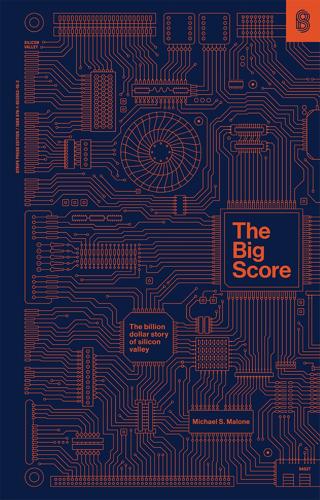
The Big Score
by
Michael S. Malone
Published 20 Jul 2021
It was only when 11 British engineers sued the company for $15 million for breach of contract that it became apparent to everyone that Emert had meant every word he’d said. He had elevated the Silicon Valley Syndrome to a management style. The suit by the 11 engineers, combined with more than 20 other suits filed in the previous three years by suppliers and employees, painted a picture of Solfan as Upton Sinclair’s Packingtown updated for the semiconductor age. Solfan, according to depositions, was a place where 80- to 100-hour workweeks were standard, where workers were continuously and cruelly verbally abused by top management. Female employees were sexually insulted; one even claimed to have been told by an executive to have sex with an angry vendor to shut him up.
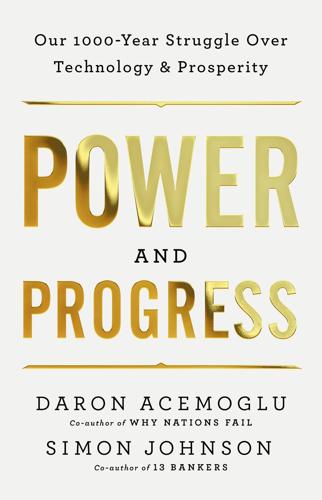
Power and Progress: Our Thousand-Year Struggle Over Technology and Prosperity
by
Daron Acemoglu
and
Simon Johnson
Published 15 May 2023
Central to their success was a change in the views and norms of the American public, especially the middle classes. The transformation was in large part the result of the work of a group of journalists who came to be known as the muckrakers, as well as the writings of other reformers, such as the lawyer and later Supreme Court justice Louis Brandeis. Upton Sinclair’s The Jungle revealed horrible working conditions in the meatpacking industry, and Lincoln Steffens reported on political corruption in many major cities. Perhaps most influential was the work of another muckraker, Ida Tarbell, on Standard Oil. In a series of articles in McClure’s Magazine starting in 1902, she exposed the company’s and Rockefeller’s alleged intimidation, price-fixing, illegal practices, and political shenanigans.
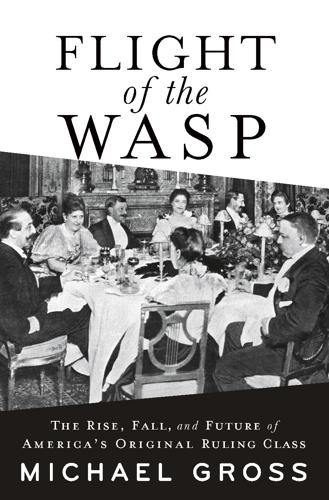
Flight of the WASP
by
Michael Gross
“In short, it would appear, Pillsbury is out to overthrow himself,” said the Boston Globe.84 His trust fund was quickly drained. By the mid-seventies, others had followed Pillsbury’s lead, including his younger sister Sarah, who created the Liberty Hill Foundation in Los Angeles, named for the site of an Upton Sinclair speech during a longshoremen’s strike in 1923.g By 1975, George was thinking bigger, and he left Haymarket to help similarly minded scions develop the Funding Exchange, a national group offering technical assistance to alternative foundations, and the Film Fund, with documentarian Barbara Kopple, to support films with social justice themes.

USA Travel Guide
by
Lonely, Planet
Also on this block is the former site of the Folklore Center , where Izzy Young established a hangout for folk artists including Dylan, who found his first audience at the music venue Cafe Wha? . Double back along MacDougal to the current Research Fellows & Scholars Office of the NYU School of Law, the former site of the Liberal Club , a meeting place for free thinkers, including Jack London and Upton Sinclair, founded in 1913. Beyond here is the southwest entrance to Washington Square Park , which has a long history as a magnet for radicals. Wrap up the tour by leaving the park at the iconic arch and head up Fifth Ave. MEATPACKING DISTRICT Nestled between the far West Village and the southern border of Chelsea is the gentrified and now inappropriately named Meatpacking District.
…
Ferguson, the US Supreme Court rules that ‘separate but equal’ public facilities for blacks and whites are legal, arguing that the Constitution addresses only political, not social, equality. 1898 Victory in the Spanish-American War gives US control of the Philippines, Puerto Rico and Guam, and indirect control of Cuba. But Philippine’s bloody war for independence deters future US colonialism. 1906 Upton Sinclair publishes The Jungle, an exposé of Chicago’s unsavory meatpacking industry. Many workers suffer through poverty and dangerous, even deadly, conditions in choking factories and sweatshops. 1908 The first Model T (aka ‘Tin Lizzie’) car is built in Detroit, MI; assembly-line innovator Henry Ford is soon selling one million automobiles annually. 1914 Panama Canal opens, linking Atlantic and Pacific Oceans.
…
But well-written, thought-provoking shows have existed almost since the beginning. In the 1950s, the original I Love Lucy show was groundbreaking: shot on film before a live audience and edited before airing, it pioneered syndication. It established the sitcom (‘situation comedy’) formula, and showcased a dynamic female comedian, Lucille Ball, in an interethnic marriage. Upton Sinclair’s The Jungle (1906) shocked the public with its harrowing exposé of Chicago’s meatpacking industry, and instantly became a modern classic. Nearly a century later, Eric Schlosser’s Fast Food Nation (2001) similarly alerted America to the dark underside of the fast food industry. In its brief history, TV has proved to be one of the most passionately contested cultural battlegrounds in American society, blamed for a whole host of societal ills, from skyrocketing obesity to plummeting attention spans and school test scores.
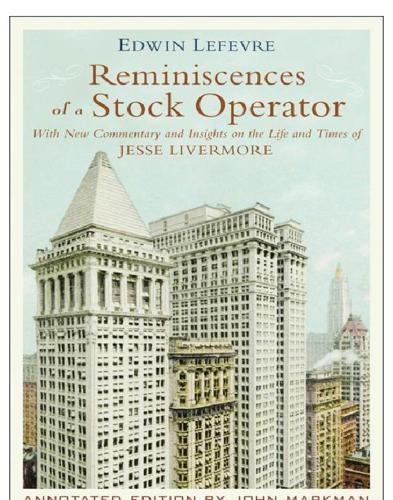
Reminiscences of a Stock Operator
by
Edwin Lefèvre
and
William J. O'Neil
Published 14 May 1923
The only way in which they could possibly help me was for them to sell me the corn that Stratton wouldn’t. The rest was easy. 11.4While Patten was running a corner in corn, Jonathan Ogden Armour—better known as J. Ogden—was running a parallel corner in wheat.9 The Armour family operated the large Armour & Co. meatpacking business that was the inspiration for Upton Sinclair’s exposé of the industry, The Jungle. The company was criticized for furnishing rotten meat to soldiers during the Spanish-American War. J. Ogden’s father, Philip D. Armour, started the company in the mid-1800s after driving cattle, mining gold, and shorting pork just as the Civil War was coming to an end—netting $2 million from all his endeavors with which to expand his meatpacking empire.10 From this early adventure in speculation, the Armours developed something of a family tradition.
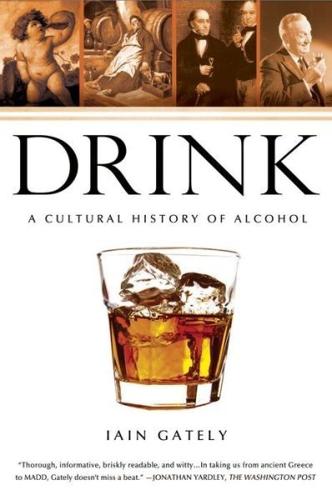
Drink: A Cultural History of Alcohol
by
Iain Gately
Published 30 Jun 2008
Speakeasies were staple fodder for the New York press, which reported who had been spotted where in its gossip columns, and noted the police raids on various joints in its crime pages. Collectively, they formed a never-ending carnival, which people might either join in or look on as observers through the eyes of their favorite columnists. Upton Sinclair, novelist, dry, and activist, suggested that they had dragged Bacchanalia into the twentieth century and that “Wine, Women, and Song” had been “modernized” into “gin, janes, and jazz.” Unlike the saloons they replaced, speakeasies were patronized by both sexes. American women had expanded their domain beyond the home during the war.
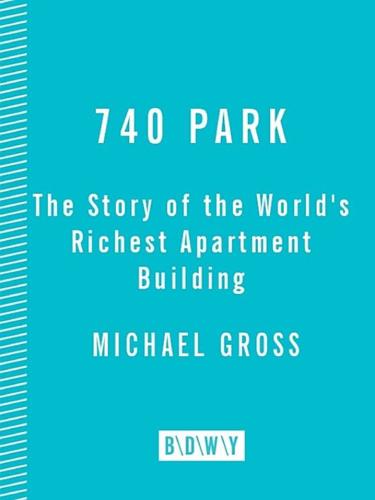
740 Park: The Story of the World's Richest Apartment Building
by
Michael Gross
Published 18 Dec 2007
The following April, striking workers at the company’s mine at Ludlow were evicted from their company-owned homes and attacked in their tent colony by an overwhelming force of state militiamen, company guards, private detectives, and strikebreaking goons who shot and burned to death twenty people, thirteen of them women and children. It became known as the Ludlow Massacre. Junior at first dismissed the debacle as an “outbreak of lawlessness,” but after the socialist writer Upton Sinclair penned an open letter calling him a murderer, picket lines formed outside his office and the thirty-three-hundred-acre family compound at Pocantico, and a bomb meant for 10 West Fifty-fourth Street exploded before it got there, killing several people. Junior was blamed personally and underwent a profound conversion.
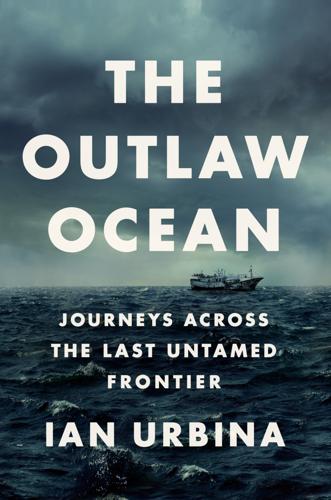
The Outlaw Ocean: Journeys Across the Last Untamed Frontier
by
Ian Urbina
Published 19 Aug 2019
Sealand slowly receded in the distance as father and son retreated to dry land and their warm homes in Essex, where they proudly reigned over their principality from afar. 4 THE SCOFFLAW FLEET This was in truth not living; it was scarcely even existing, and they felt that it was too little for the price they paid. They were willing to work all the time; and when people did their best, ought they not to be able to keep alive? —Upton Sinclair, The Jungle On the night of August 14, 2010, the captain of a South Korean trawler, the Oyang 70, left Port Chalmers, New Zealand, for what would be his final journey. The ship was bound for fishing grounds about four hundred miles east in the South Pacific Ocean. When the ship arrived three days later, the captain, a forty-two-year-old man named Hyonki Shin, ordered his crew to cast the net over the vessel’s rusty stern.
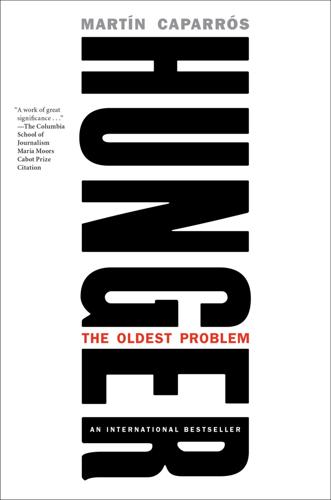
Hunger: The Oldest Problem
by
Martin Caparros
Published 14 Jan 2020
With two million dead, this country’s hungry inhabitants were collateral damage. Nothing more. ON HUNGER: METAPHORS 1 Thirty years ago, the Oxford University Press published a book by the economist and philosopher Amartya Sen that would have an impact on the issue of hunger as strongly as Upton Sinclair’s The Jungle had on the issue of labor. Poverty and Famines: An Essay on Entitlement and Deprivation, brought world hunger to the forefront of world crisis, and took much from Sen’s own upbringing. While Sen was a product of Empire, an Indian who had spent most of his life at the best English universities. as a youth he had lived in Dhaka in the forties, a period that saw the worst famine of the century, one that killed three million people.
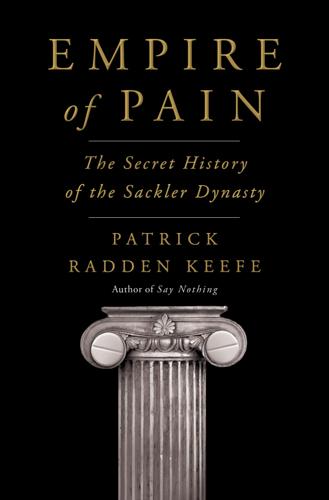
Empire of Pain: The Secret History of the Sackler Dynasty
by
Patrick Radden Keefe
Published 12 Apr 2021
One member of the panel was Jim Cooper, a veteran congressman from Tennessee, a state that had been ravaged by the drug. He had a courtly demeanor and spoke slowly, selecting his words with a careful, professorial cadence. On the subject of the family’s implacable refusal to recognize what they had done, Cooper said, “I think Upton Sinclair once wrote that a man has difficulty understanding something if his salary depends on his not understanding.” He continued, his voice soft and deliberate, “Watching you testify makes my blood boil. I’m not sure that I’m aware of any family in America that’s more evil than yours.” * * * The 2020 pandemic and the attendant economic collapse only intensified the opioid crisis as social isolation and economic stress caused people to relapse, and overdose fatality rates spiked in many parts of the country.
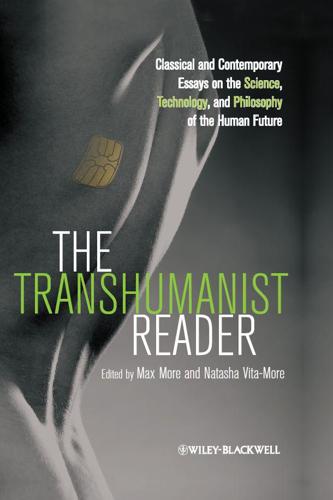
The Transhumanist Reader
by
Max More
and
Natasha Vita-More
Published 4 Mar 2013
Exactly the view which The Postmortal contradicts turns out to be correct. Yet belief in magic bullets for aging persists, even among otherwise respectable biologists and technologists. Leaving aside historical precedent, I think that there is a simple law of human nature which explains their difficulty with the evolutionary genetic view, which is best credited as Upton Sinclair’s saying: “It is difficult to get a man to understand something, when his salary depends upon his not understanding it!” As the cell and molecular biologists who work on aging are not good at doing evolutionary biology, it is not likely that they are going to accept that evolutionary biologists (1) have solved the scientific problem of aging, (2) can easily manipulate aging using experimental evolution, and (3) have far greater understanding of the technological constraints on transforming aging than any cell biologist.
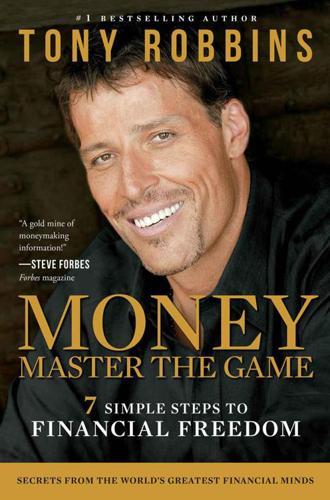
MONEY Master the Game: 7 Simple Steps to Financial Freedom
by
Tony Robbins
Published 18 Nov 2014
Myth 4 will help us quickly determine if the person on the other side of the desk is working for you or the name on their company’s letterhead. As “Deep Throat” from the Watergate scandal said: “Follow the money. Always follow the money.” CHAPTER 2.4 MYTH 4: “I’M YOUR BROKER, AND I’M HERE TO HELP” * * * “It is difficult to get a man to understand something, when his salary depends on his not understanding it.” —UPTON SINCLAIR LET ME GET THIS STRAIGHT So let us recap: The mutual funds sold to me are charging me astronomical fees that could strip me of up to 70% of my future nest egg. Over any sustained period of time, 96% of actively managed mutual funds are underperforming the market (or their benchmarks).
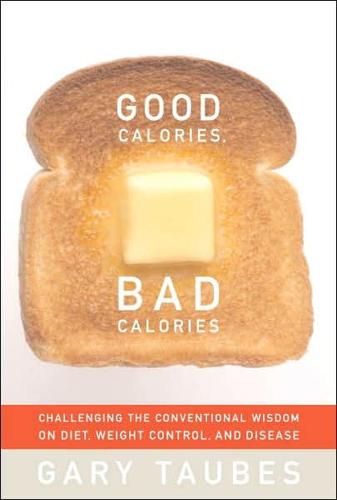
Good Calories, Bad Calories: Challenging the Conventional Wisdom on Diet, Weight Control, and Disease
by
Gary Taubes
Published 25 Sep 2007
The USDA noted further decreases in meat consumption between 1915 and 1924—the years immediately preceding the agency’s first attempts to record food disappearance data—because of food rationing and the “nationwide propaganda” during World War I to conserve meat for “military purposes.” Another possible explanation for the appearance of a low-meat diet early in the twentieth century was the publication in 1906 of Upton Sinclair’s book The Jungle, his fictional exposé on the meatpacking industry. Sinclair graphically portrayed the Chicago abattoirs as places where rotted meat was chemically treated and repackaged as sausage, where tubercular employees occasionally slipped on the bloody floors, fell into the vats, and were “overlooked for days, till all but the bones of them had gone out to the world as Anderson’s Pure Leaf Lard!”
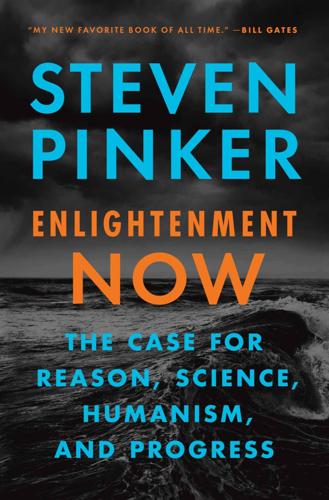
Enlightenment Now: The Case for Reason, Science, Humanism, and Progress
by
Steven Pinker
Published 13 Feb 2018
The carnage was reduced when an 1893 law mandated the use of air brakes and automatic couplers in all freight trains, the first federal law intended to improve workplace safety. The safeguards spread to other occupations in the early decades of the 20th century, the Progressive Era. They were the result of agitation by reformers, labor unions, and muckraking journalists and novelists like Upton Sinclair.62 The most effective reform was a simple change in the law brought over from Europe: employers’ liability and workmen’s compensation. Previously, injured workers or their survivors had to sue for compensation, usually unsuccessfully. Now, employers were required to compensate them at a fixed rate.

Coastal California
by
Lonely Planet
A major share of California’s agricultural land was consolidated in the hands of a few city-based landlords, establishing the still-existing pattern of industrial ‘agribusiness’ rather than small family farms, and solidifying an ongoing need for large-scale irrigation projects and cheap migrant farm labor. LABOR & MILITARY MIGHT The Academy Award-winning 2007 film There Will Be Blood is adapted from Upton Sinclair’s book Oil!, about fictional California oil magnate Daniel Plainview, whose story is based on real-life SoCal tycoon Edward Doheny. The Great Depression saw another wave of immigrants, this time of American farm families from drought-struck Great Plains states who were fleeing the Dust Bowl.
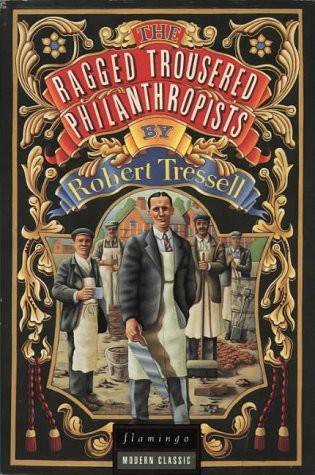
The Ragged Trousered Philanthropists
by
Robert Tressell
Published 31 Dec 1913
Noonan becomes a founder member of the Hastings branch of the Social Democratic Federation and begins work on The Ragged Trousered Philanthropists. Marches of the unemployed in Hastings. Twenty-nine Labour MPs elected at general elec- tion won by the Liberals. Royal Commission on Vivisection meets. Provision of School Meals Act. Dreadnought launched. Upton Sinclair, The Jungle. Noonan leaves Burton & Co. after an argument with his employer; works for Adams and Jarrett. Shooting of protesters during industrial action in Belfast. Economic depression in Britain severe. Royal Commission on Coast Erosion and Afforestation meets. London, The Iron Heel. Tory MP again elected in Hastings by-election.
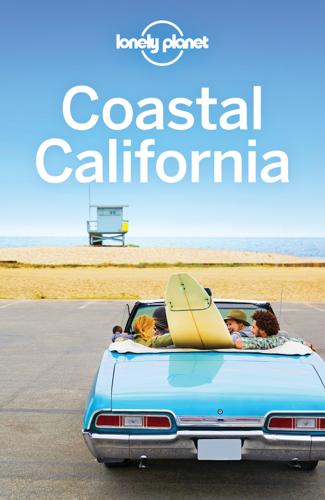
Coastal California Travel Guide
by
Lonely Planet
Acclaimed social realist Eugene O’Neill took his 1936 Nobel Prize money and transplanted himself near San Francisco, where he wrote the autobiographical play Long Day’s Journey into Night. Novelists took on the myth of California's self-made millionaires, exposing the tarnish on the Gold State. Classics in this vein include Upton Sinclair’s Oil!, exposing the schemes of real-life LA oil-tycoon Edward Mahoney that resulted in the Teapot Dome bribery scandal. Aldous Huxley’s After Many a Summer is based on the life of publisher William Randolph Hearst, the reclusive and vengeful media mogul who also inspired the Orson Welles’ film Citizen Kane.
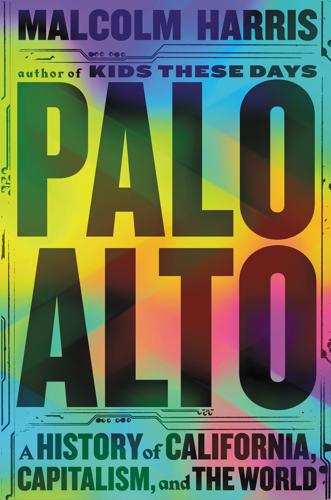
Palo Alto: A History of California, Capitalism, and the World
by
Malcolm Harris
Published 14 Feb 2023
The rule interpretation Camp objected to bound planters to their existing tenants, which was an untenable attack on their profitability, even though at the time they weren’t profitable at all without the government’s help. The conflict was inherent, and it didn’t take until the end of World War II for the Cold War to start or for liberals to reveal which side they planned to take. After George Creel lost the California gubernatorial nomination to the wacky socialist writer Upton Sinclair, he and FDR knifed the populist author. First they rewrote Sinclair’s platform to moderate it, then they cut a deal with the Republican incumbent, Frank Merriam, anyway—the same Merriam who called the machine guns to the San Francisco waterfront. Merriam trounced Sinclair, who waited patiently for the Roosevelt endorsement that never came.

Northern California Travel Guide
by
Lonely Planet
Bakersfield Nearing Bakersfield, the landscape has evidence of California’s other gold rush: rusting rigs alongside the route burrow into Southern California’s vast oil fields. Black gold was discovered here in the late 1800s, and Kern County, the southernmost along Hwy 99, still pumps more than some OPEC countries. This is the setting of Upton Sinclair’s Oil!, which was adapted into the 2007 Academy Award–winning film, There Will Be Blood. In the 1930s the oil attracted a stream of ‘Okies’ – farmers who migrated out of the Great Plains – to work the derricks. The children of these tough-as-nails roughnecks put the 'western' in country and western by creating the ‘Bakersfield Sound’ in the mid-1950s, with heroes Buck Owens and Merle Haggard waving a defiant middle finger at the silky Nashville establishment.
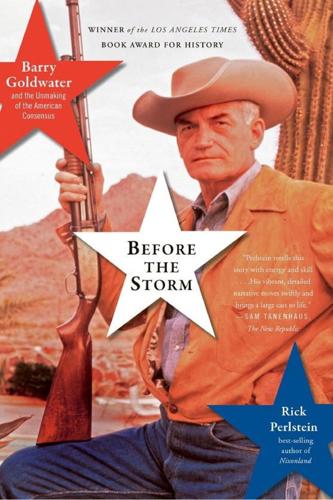
Before the Storm: Barry Goldwater and the Unmaking of the American Consensus
by
Rick Perlstein
Published 17 Mar 2009
This party governing body’s membership was appointed, per state law, by a caucus of all Republican candidates running for state office. Veterans of Shell’s campaign revived a dormant fund, United for California, first established in 1938 to combat the far-left Democratic gubernatorial candidate Upton Sinclair, and used it to quietly file Republican candidates for every office in the state. Since most of the incumbents were entrenched Democrats, many far-right Republicans ran in primaries unopposed. The far right would have taken over the party—if Republican and Democratic state legislators hadn’t conspired in mid-June to amend the election code after the fact.
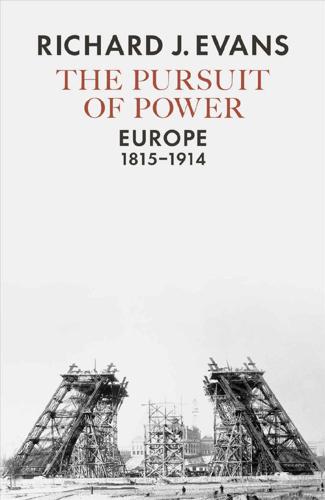
The Pursuit of Power: Europe, 1815-1914
by
Richard J. Evans
Published 31 Aug 2016
“If you were my husband,” she replied, “I should either have murdered you a long time ago, or else you would have learned how to behave like a gentleman.” ’ Hermynia fell ill with tuberculosis and had to spend many months recuperating at a sanatorium in Davos in Switzerland, where she was still staying in 1914 when the war broke out. She did not return. The Russian Revolution allowed her to obtain a divorce. By 1919 she was in Germany, where she joined the Communist Party and earned her living by translating more than 150 novels from French and English into German, including the entire output of the American writer Upton Sinclair. She lived with the Jewish writer Stefan Isidor Klein (1889–1960) in Frankfurt and wrote many novels and short stories of her own, several of which became best-sellers. In 1933, when the Nazis took over, she left, after publishing a letter condemning the new regime, and eventually made her way to England, where in 1951 she died in poverty and obscurity in Radlett, Hertfordshire, her works entirely forgotten.
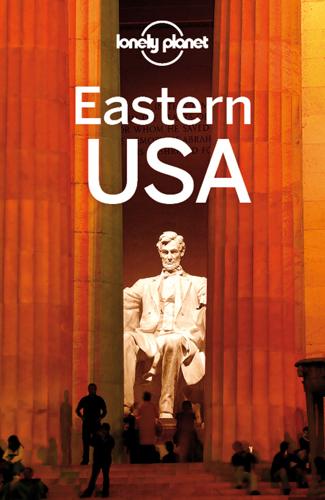
Eastern USA
by
Lonely Planet
Also on this block is the former site of the Folklore Center, where Izzy Young established a hangout for folk artists including Dylan, who found his first audience at the music venue Cafe Wha?. Double back along MacDougal to the current Research Fellows & Scholars Office of the NYU School of Law, the former site of the Liberal Club, a meeting place for free thinkers, including Jack London and Upton Sinclair, founded in 1913. Beyond here is the southwest entrance to Washington Square Park, which has a long history as a magnet for radicals. Wrap up the tour by leaving the park at the iconic arch and head up Fifth Ave. MEATPACKING DISTRICT Nestled between the far West Village and the southern border of Chelsea is the gentrified and now inappropriately named Meatpacking District.
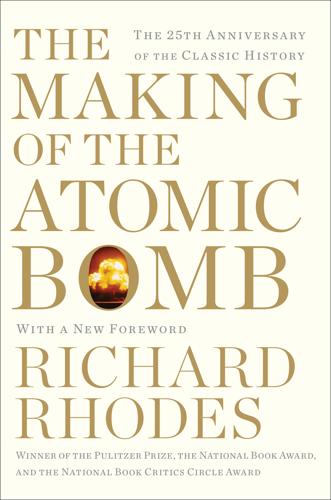
The Making of the Atomic Bomb
by
Richard Rhodes
Published 17 Sep 2012
Tolman sent a delegation to Berlin; Einstein agreed to visit Pasadena in 1931 as a research associate. He did, twice, returning to Berlin between, dining in Southern California with Charlie Chaplin, viewing a rough cut of Sergei Eisenstein’s death-obsessed film Que Viva Mexico! with its sponsor Upton Sinclair. As his second visit approached, in December, Einstein was ready to reassess his future: “I decided today,” he wrote in his diary, “that I shall essentially give up my Berlin position and shall be a bird of passage for the rest of my life.”678 The bird of passage was not to nest in Pasadena.

California
by
Sara Benson
Published 15 Oct 2010
By law, half the lands were supposed to go to Native Americans who worked at the missions, but few Native mission workers actually received their entitlements. The average rancho soon expanded to 16,000 acres in size, and was staffed by 20 to 200 of the same Native laborers who had worked at the missions. * * * The Oscar-winning There Will Be Blood (2007), adapted from Upton Sinclair’s book Oil!, depicts a Californian oil magnate and was based on real-life SoCal tycoon Edward Doheny. * * * Ranchero life was transformed from hardscrabble living on leather cots in cramped two-room shanties to grand fiestas in haciendas where women were confined to quarters at night. But ranchera women were no hothouse flowers: women owned 13% of Californian ranches, rode horses as deftly as men, and despite elaborate precautions, caused romantic scandals worthy of telenovelas (soap operas).
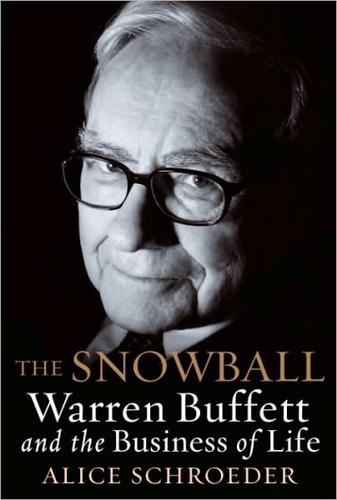
The Snowball: Warren Buffett and the Business of Life
by
Alice Schroeder
Published 1 Sep 2008
Lincoln: The University of Nebraska Press, 1997; Harry B. Otis, with Donald H. Erickson, E. Pluribus Omaha: Immigrants All. Omaha: Lamplighter Press (Douglas County Historical Society), 2000. Horowitz, commenting specifically on Omaha, points out that slaughterhouses in 1930 were still organized much the same way as portrayed in Upton Sinclair’s 1906 novel The Jungle. 7. In 2005, the GAO cited “respiratory irritation or even asphyxiation from exposure to chemicals, pathogens, and gases” as a current occupational risk for industry workers in GAO 05-95 Health and Safety of Meat and Poultry Workers. See also Nebraska Meatpacking Industry Workers Bill of Rights (2000), a “voluntary instrument” whose “reach has been modest,” according to Joe Santos of the state labor department, as cited by Human Rights Watch in its report Blood, Sweat and Fear: Workers’ Rights in the U.S.

Reaganland: America's Right Turn 1976-1980
by
Rick Perlstein
Published 17 Aug 2020
“Ten years,” the lobbyist admitted. The amendments passed the committee unanimously, then both houses, virtually unchanged. President Johnson signed the bill with Magnuson by his side. The following day he signed the first update to meat inspection law since the 1906 Pure Food and Drug Act, with Upton Sinclair, the novelist whose 1905 exposé The Jungle had inspired it, standing next to him. A landmark “truth in lending” bill went to conference six weeks later. The former senator Paul Douglas, a New Deal economist who had lost his seat in 1966 largely because white Chicago factory workers turned their back on him because of his advocacy for a failed bill outlawing housing discrimination, had been pressing for it since the 1950s, but was defeated in the Finance Committee session after session.